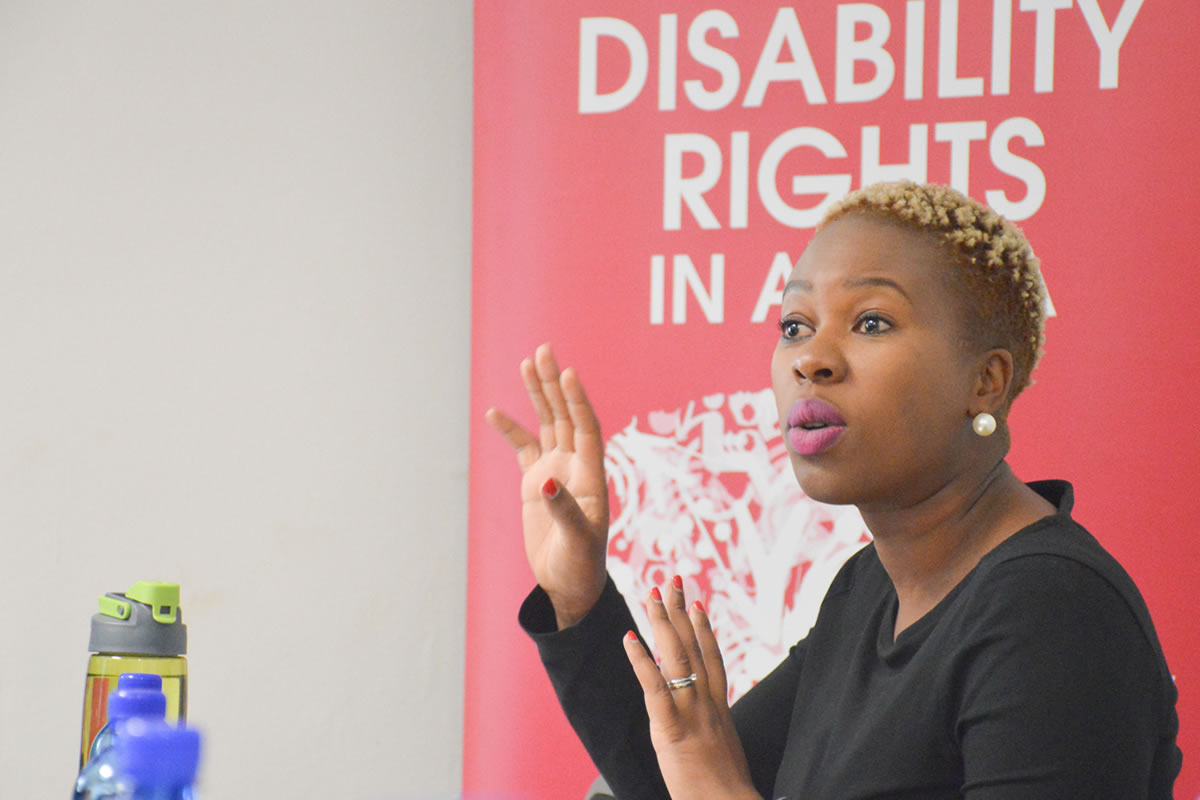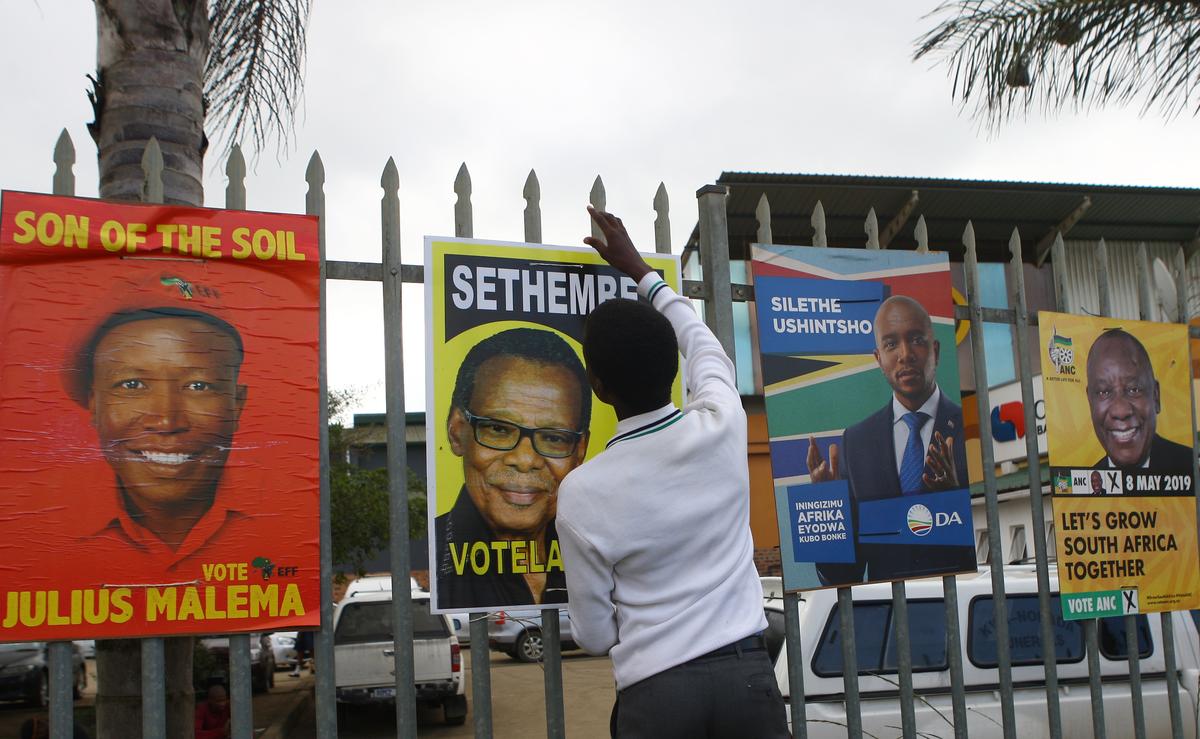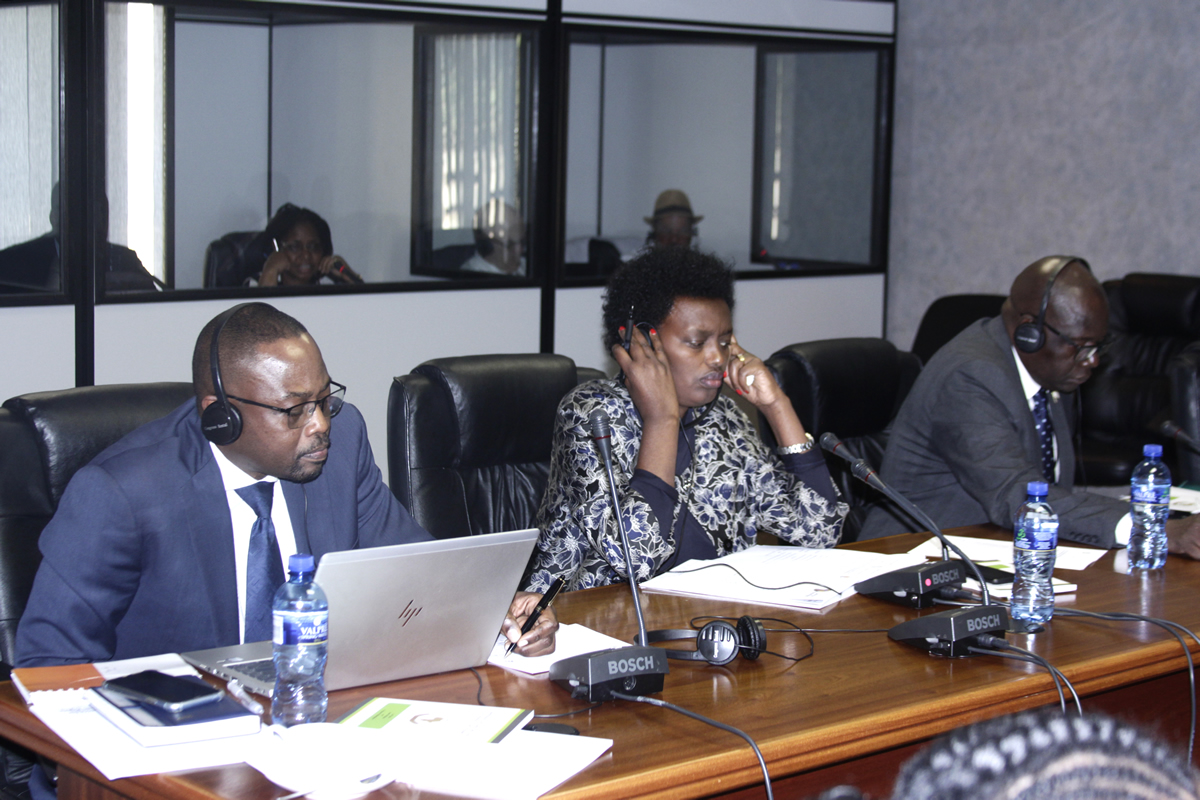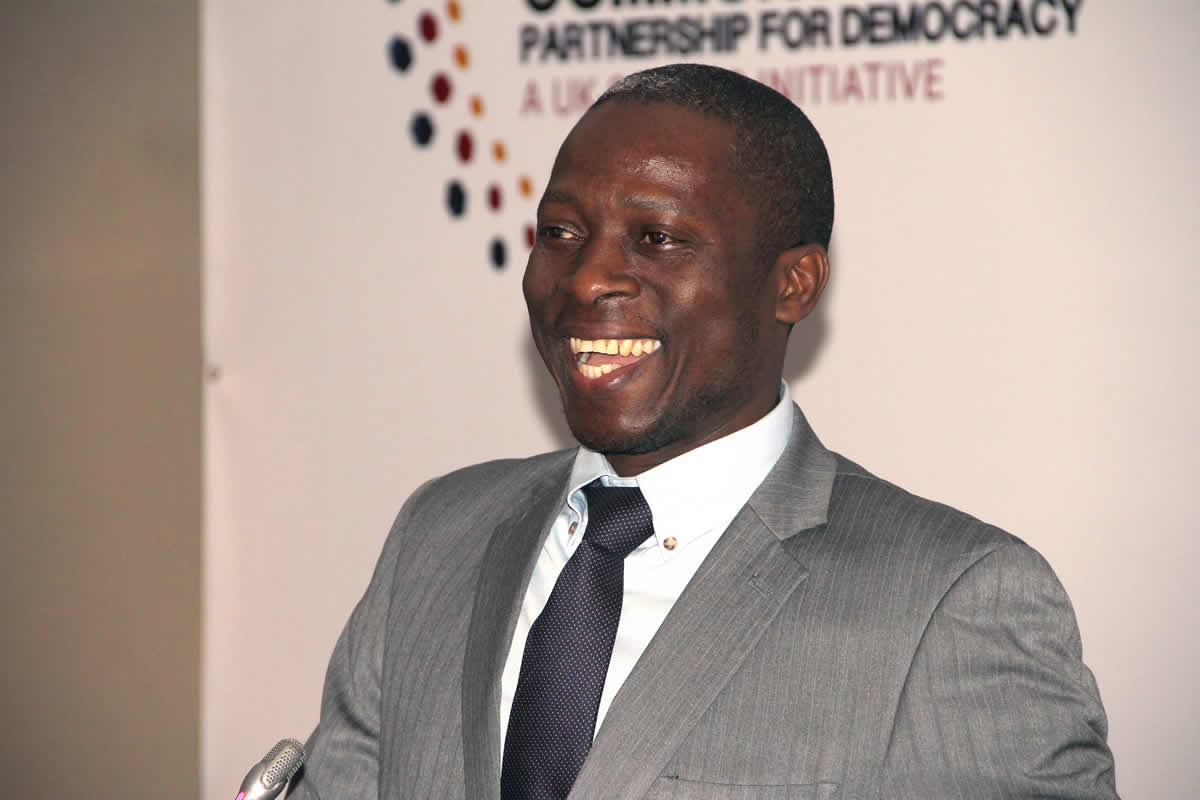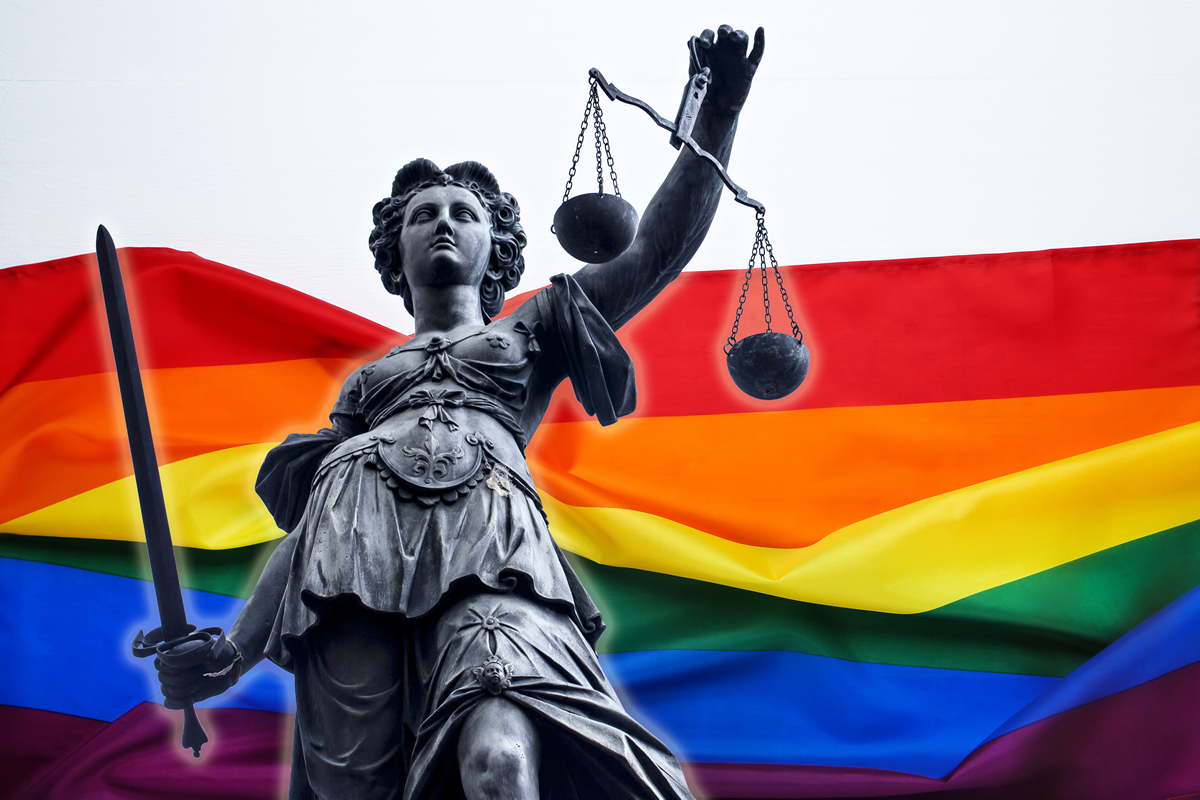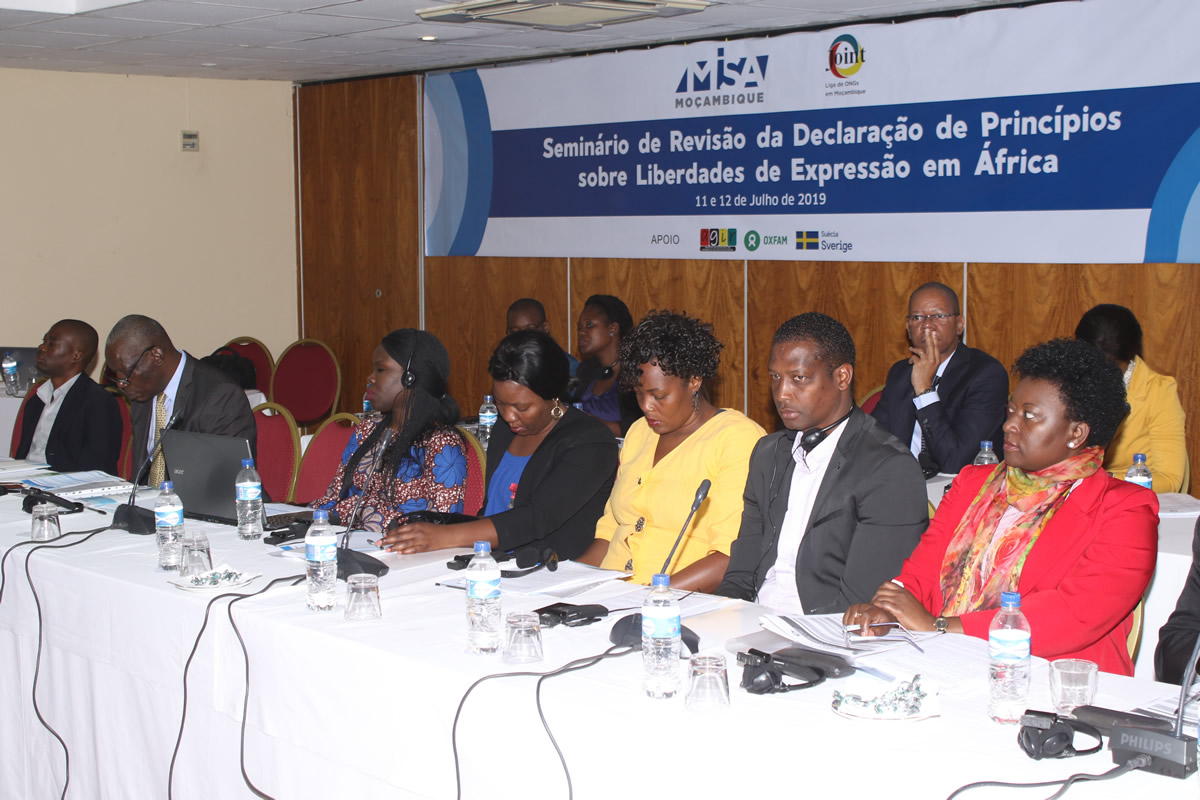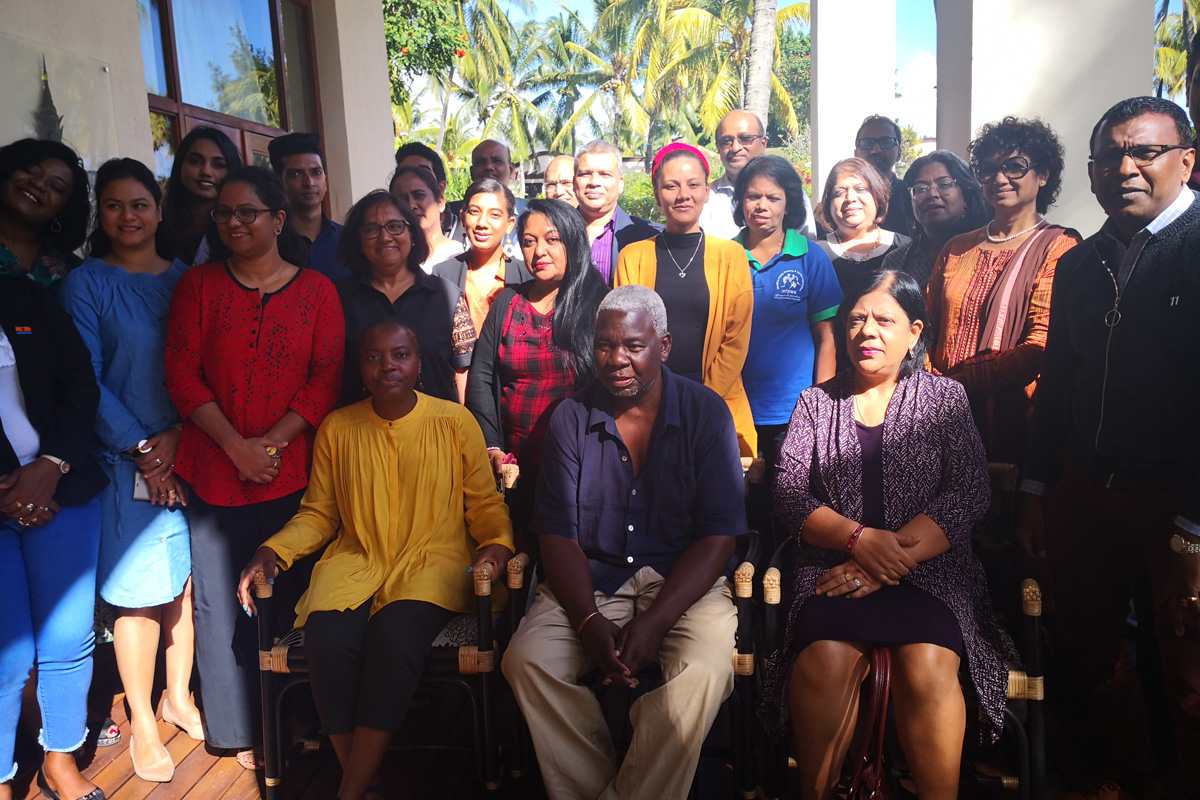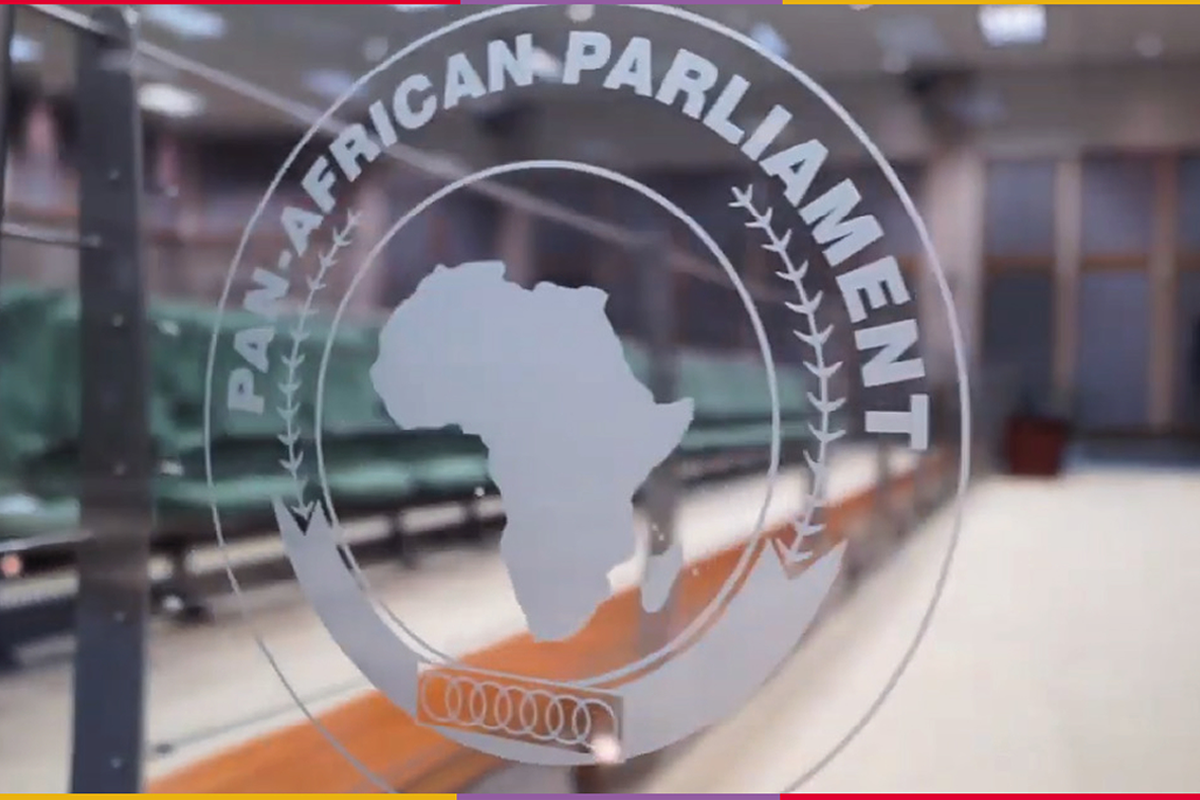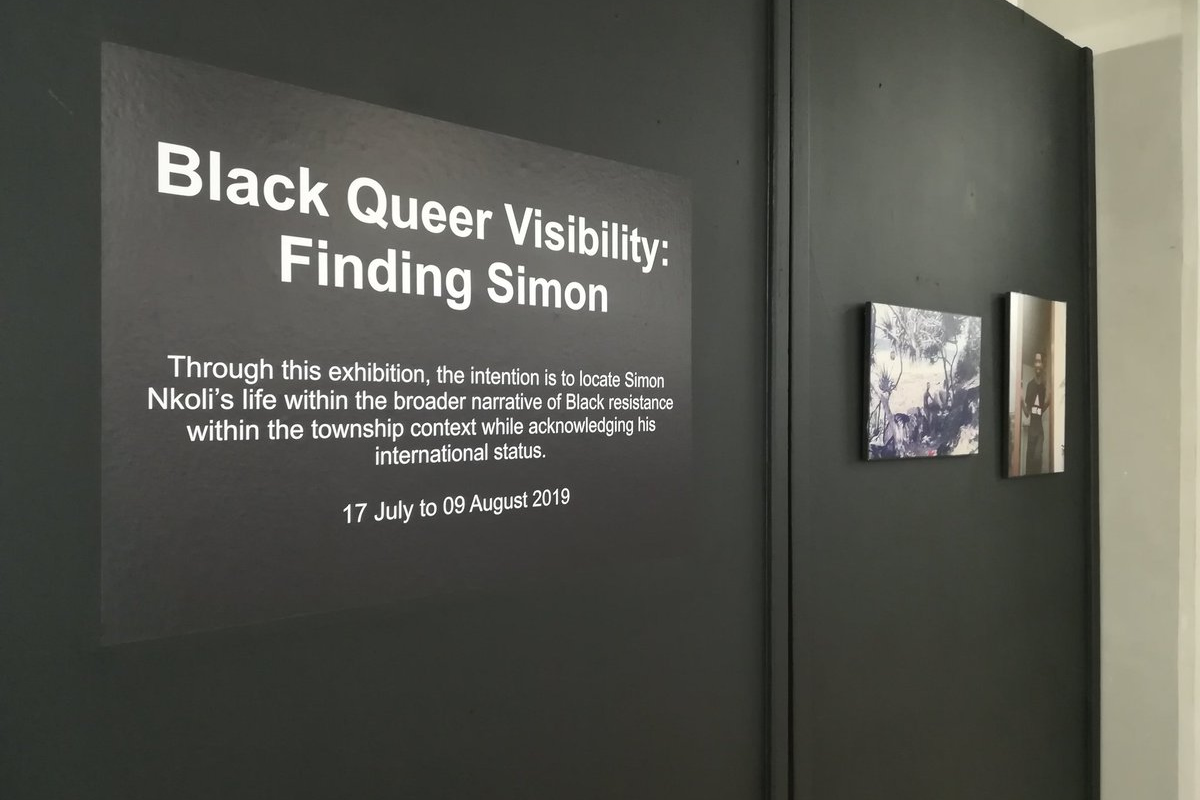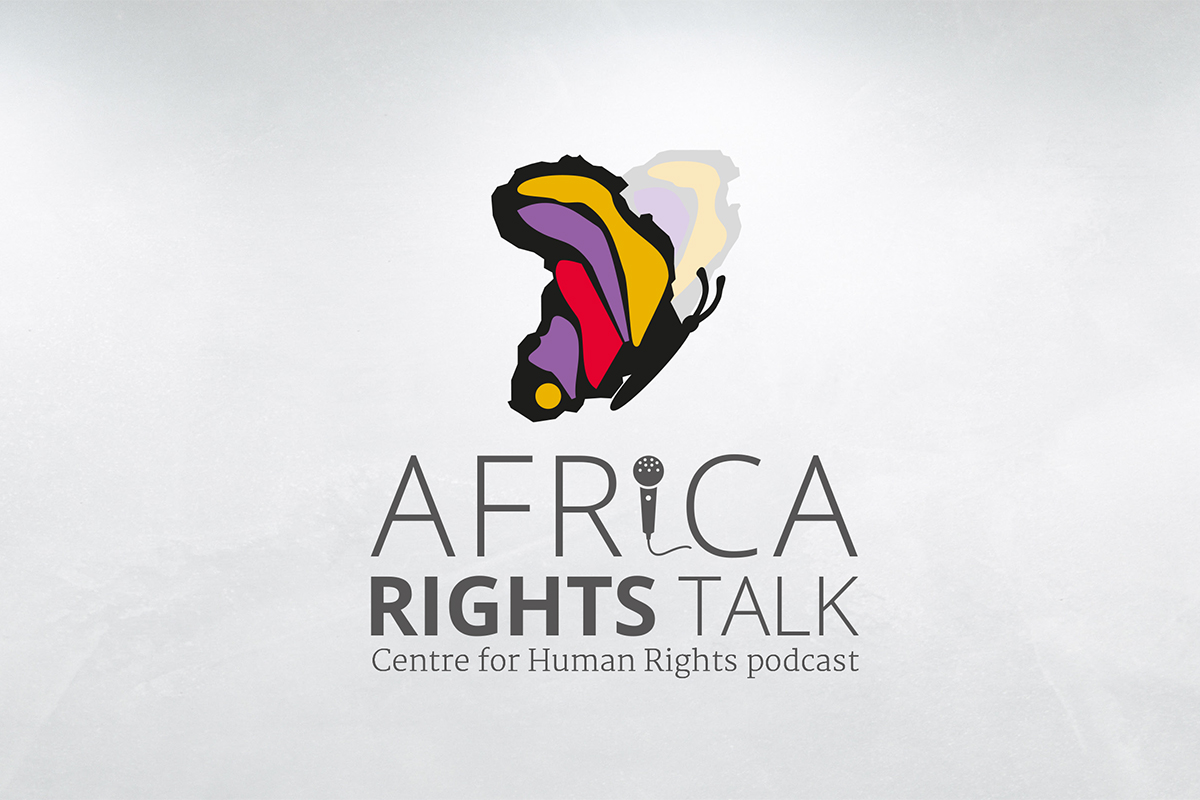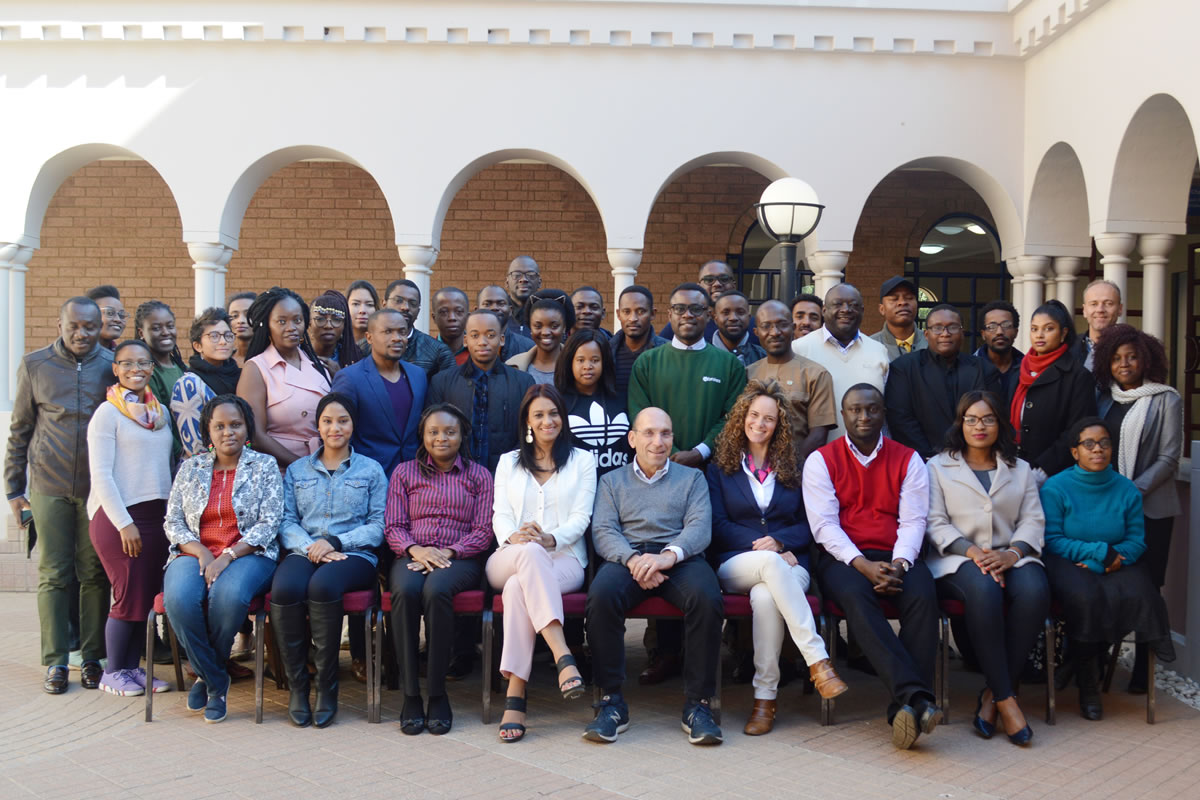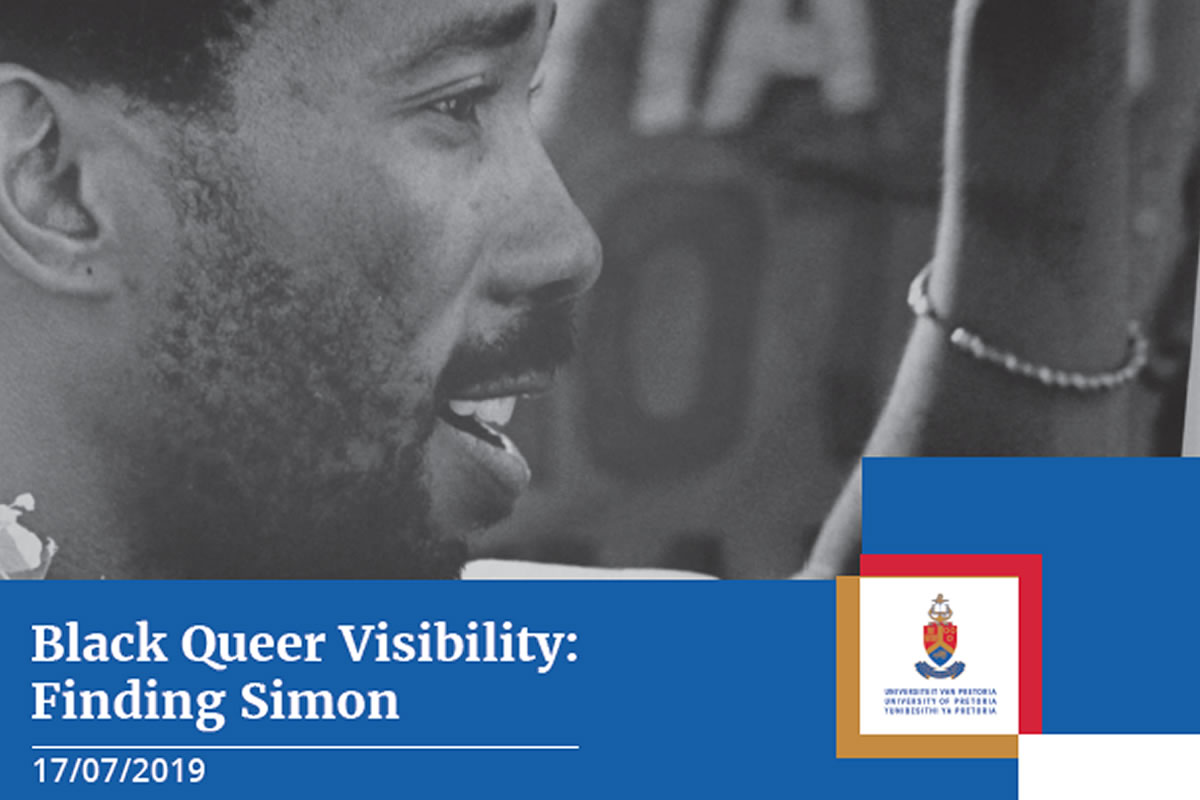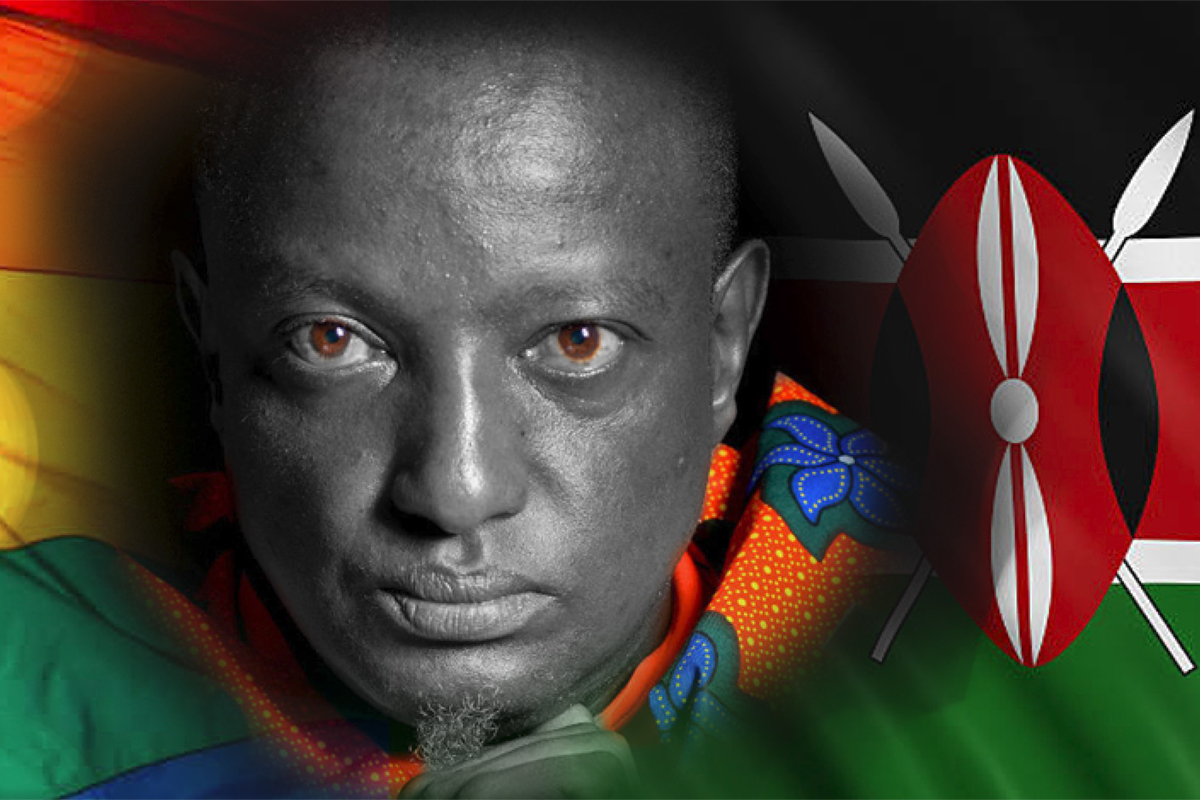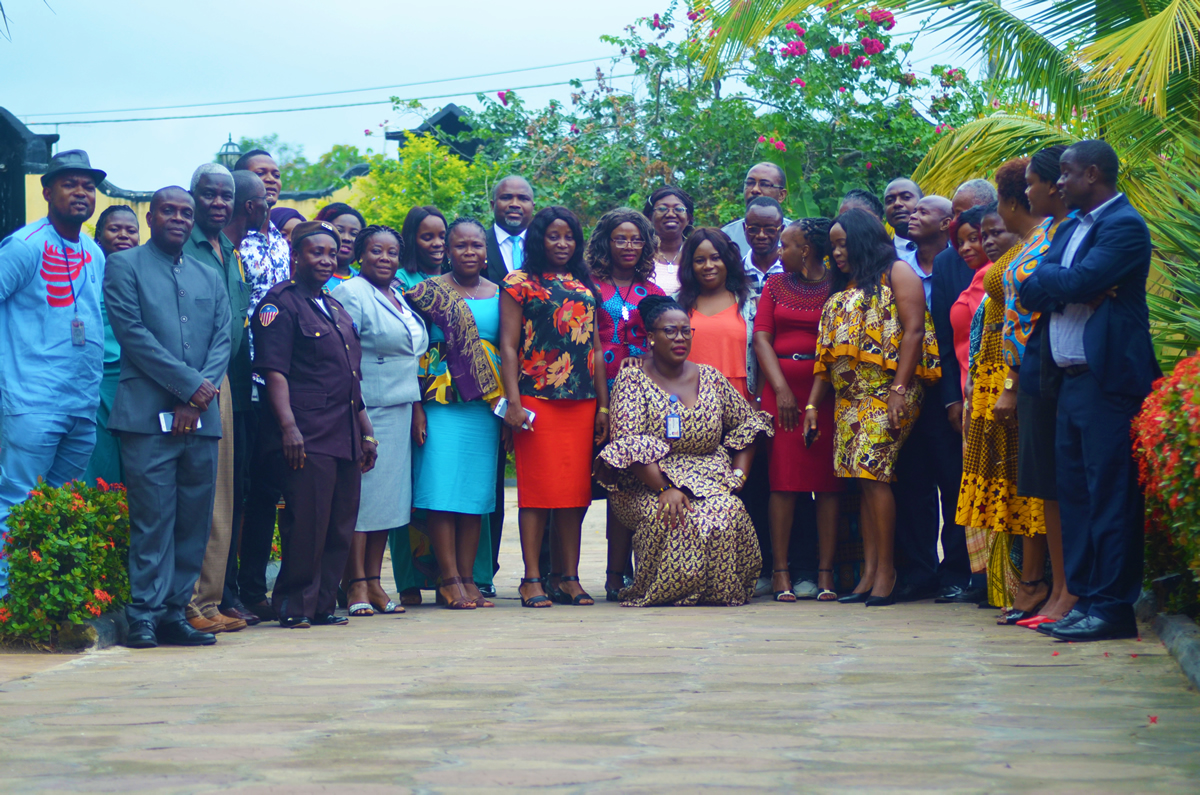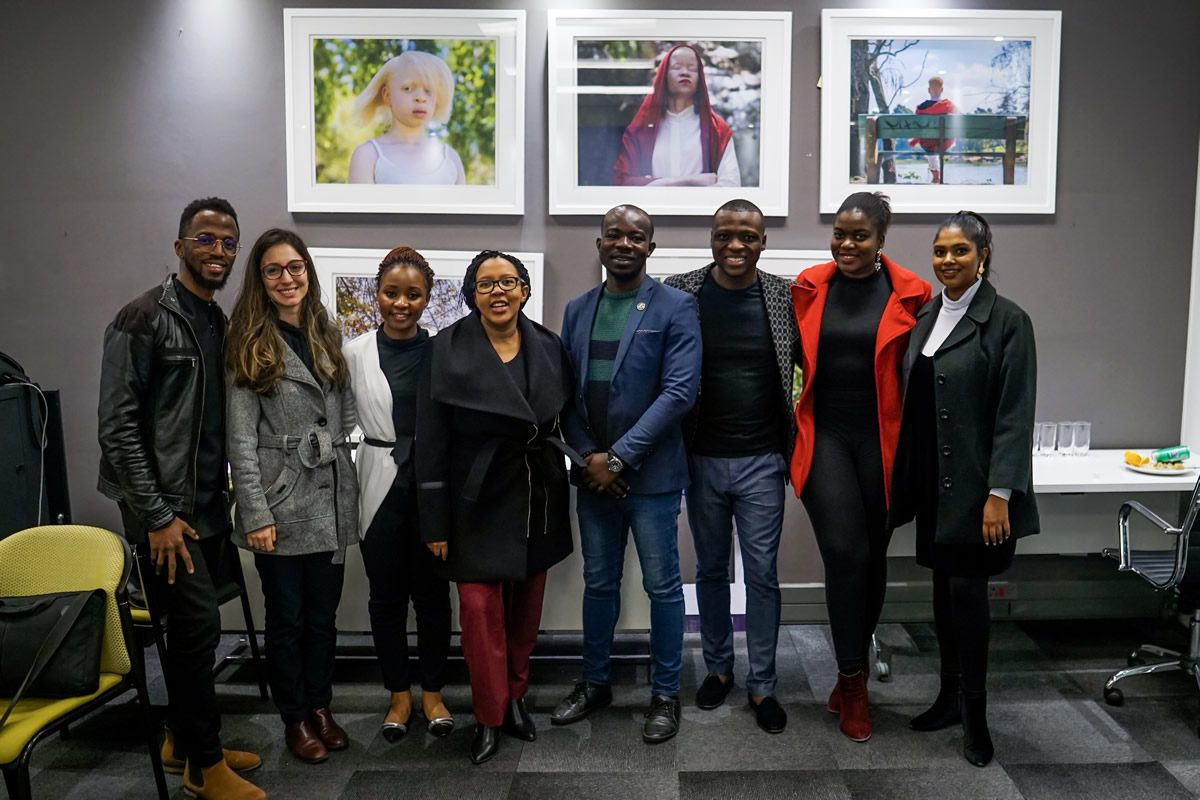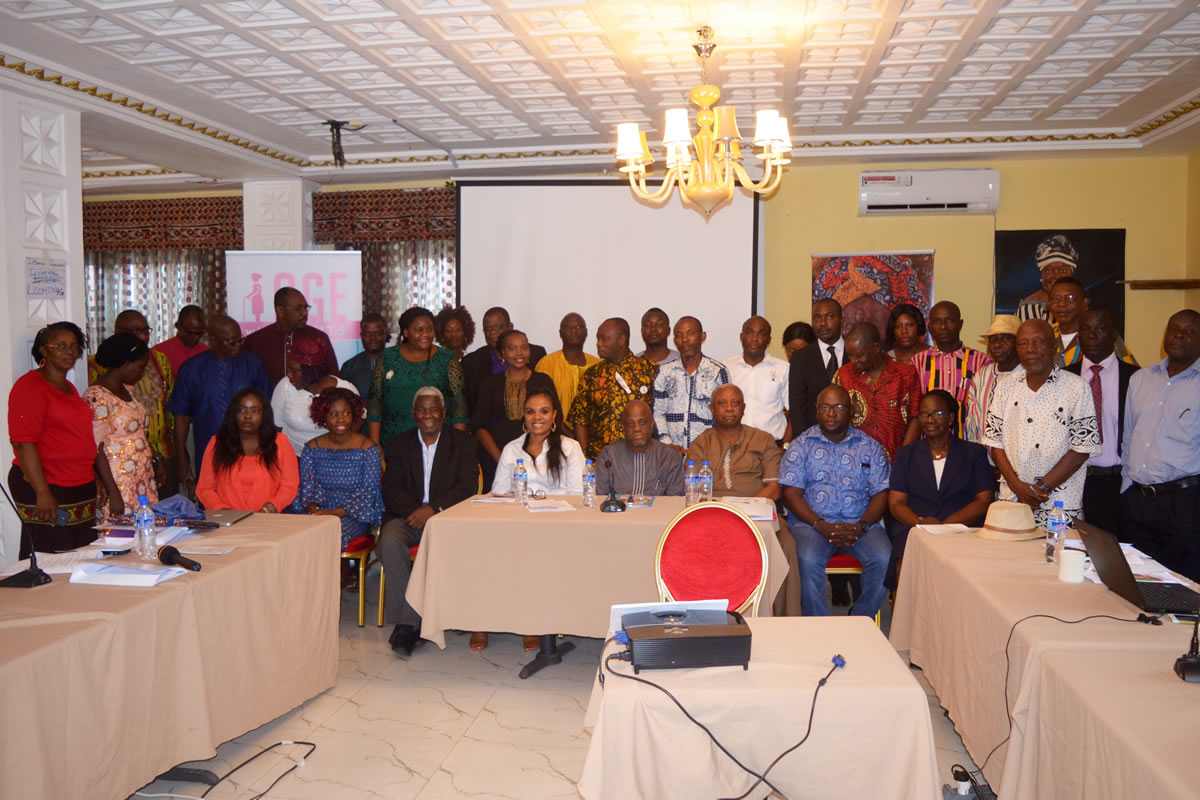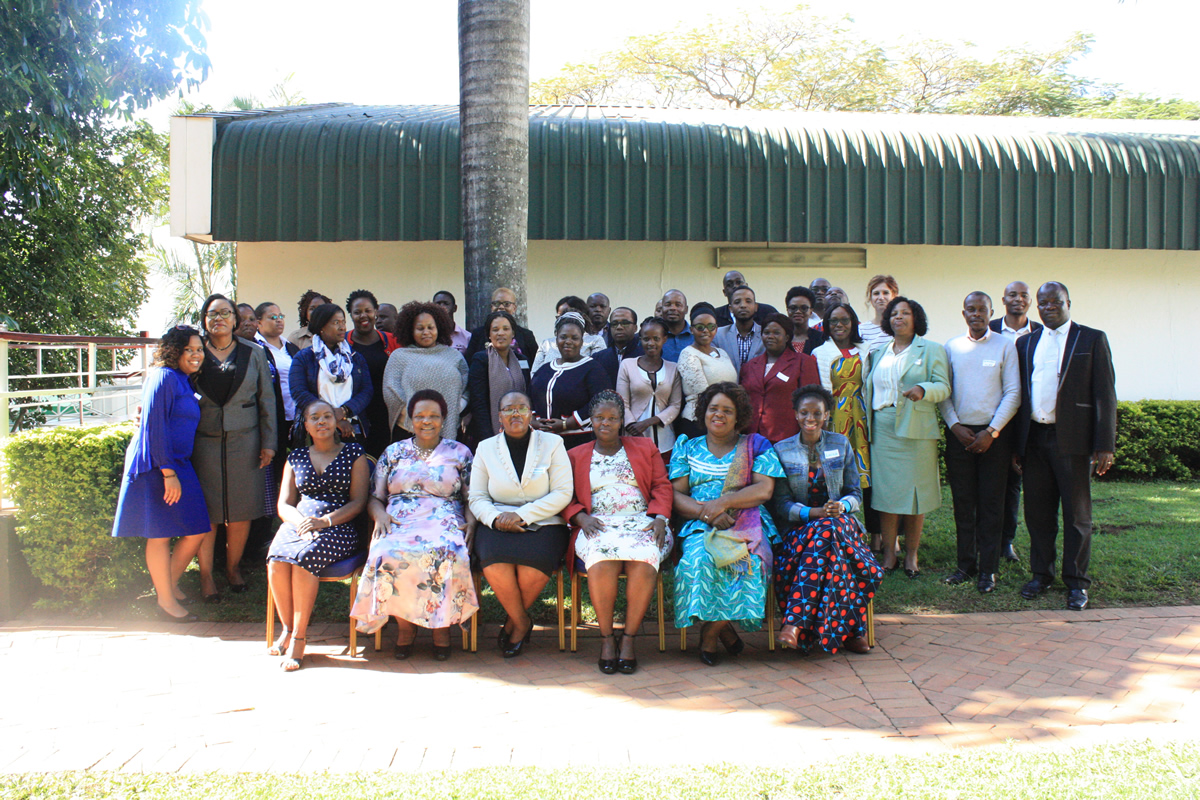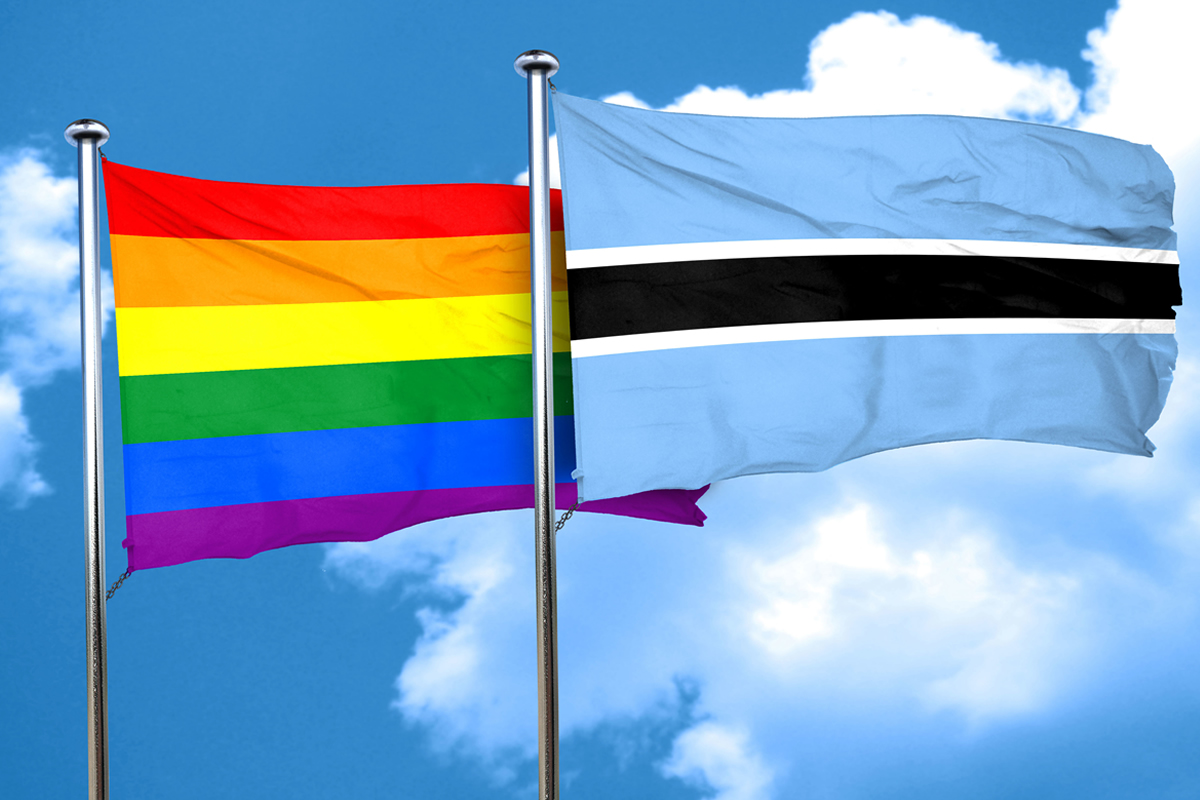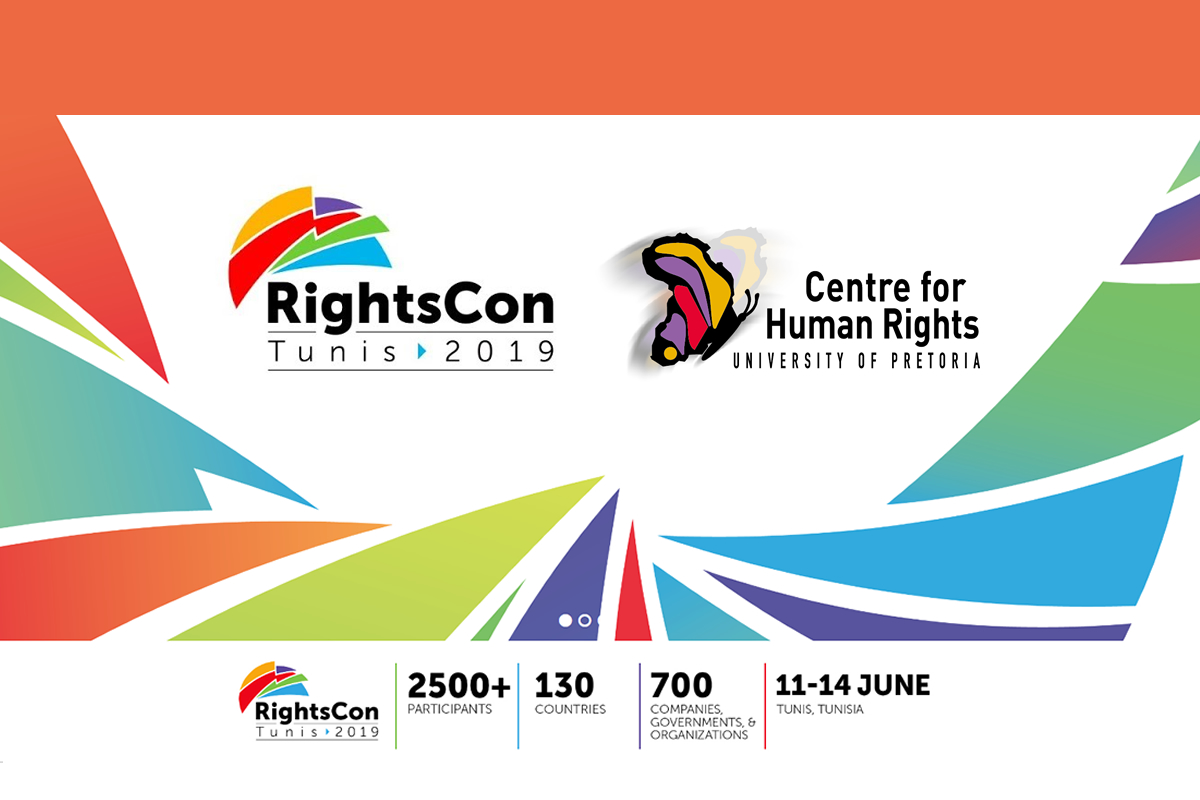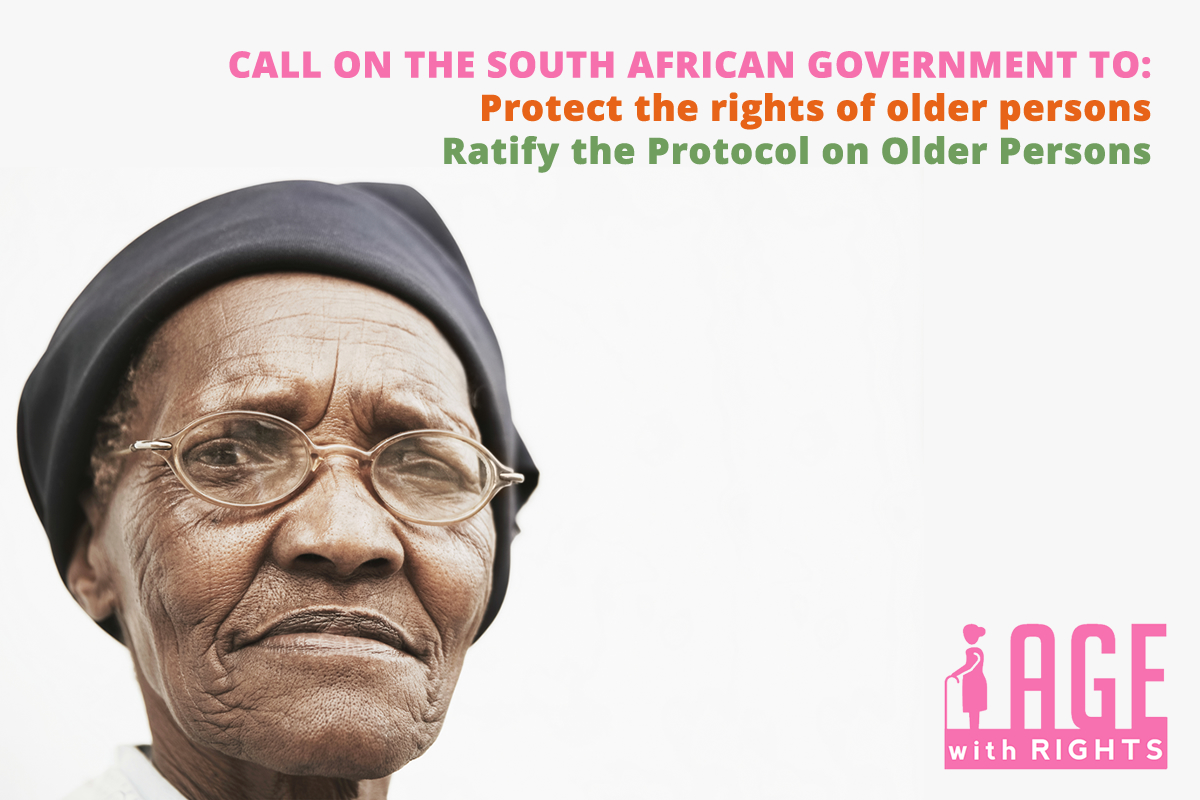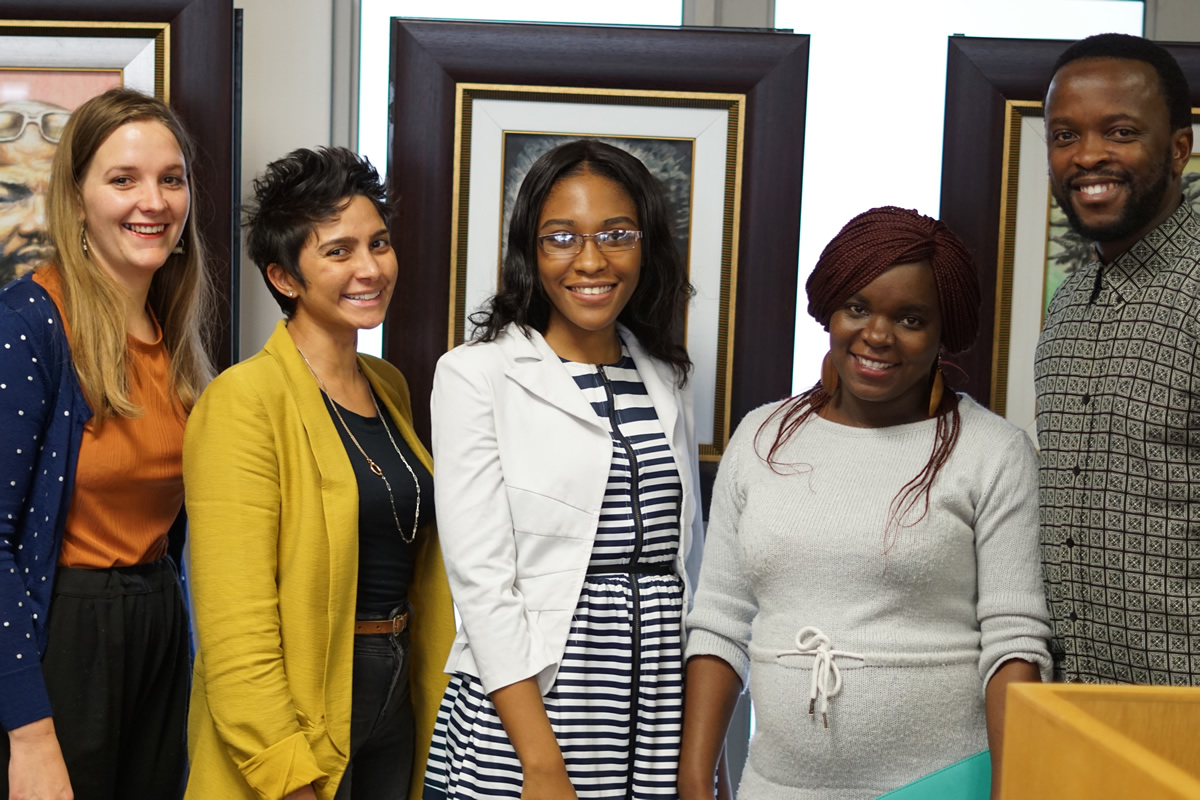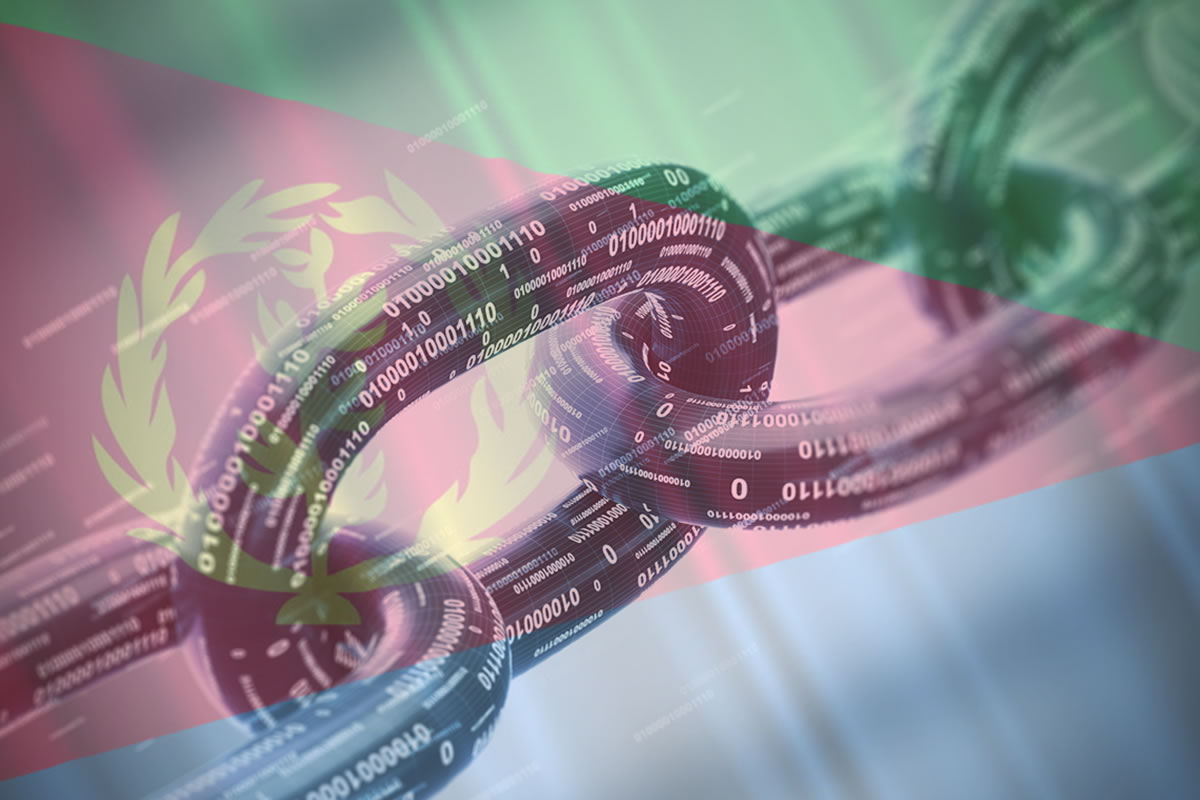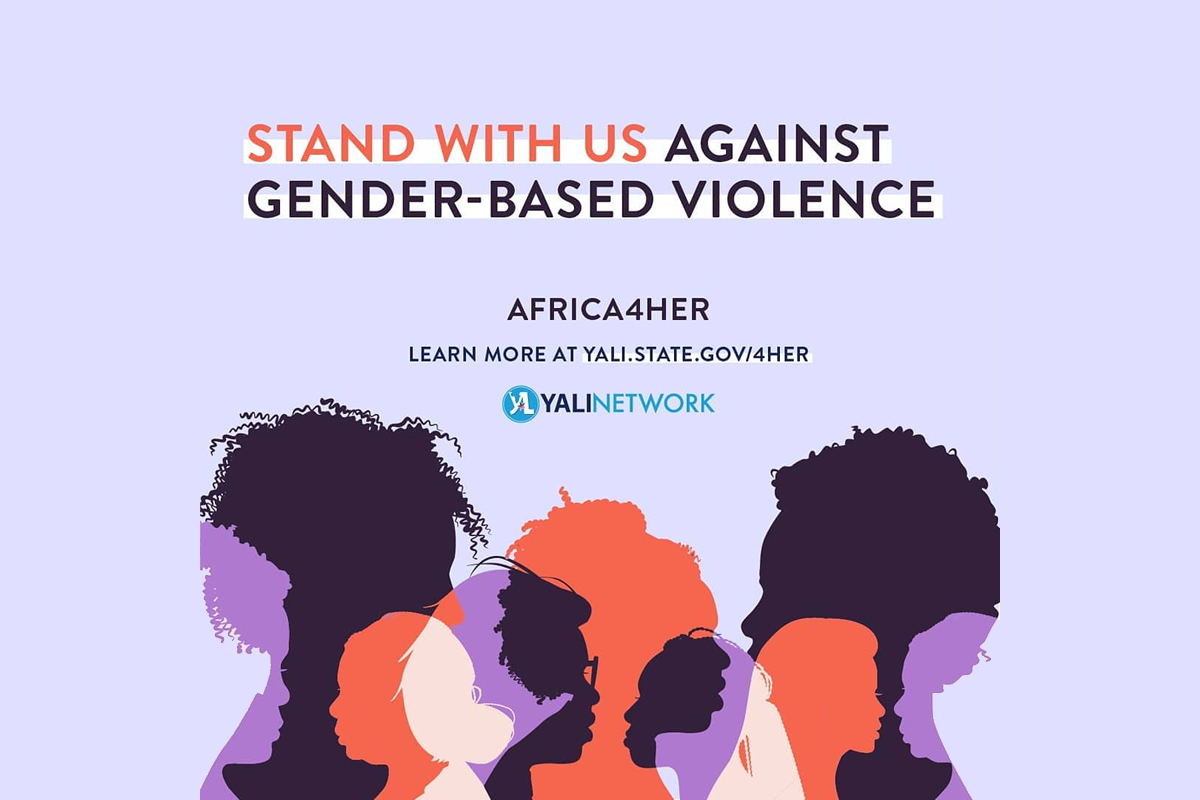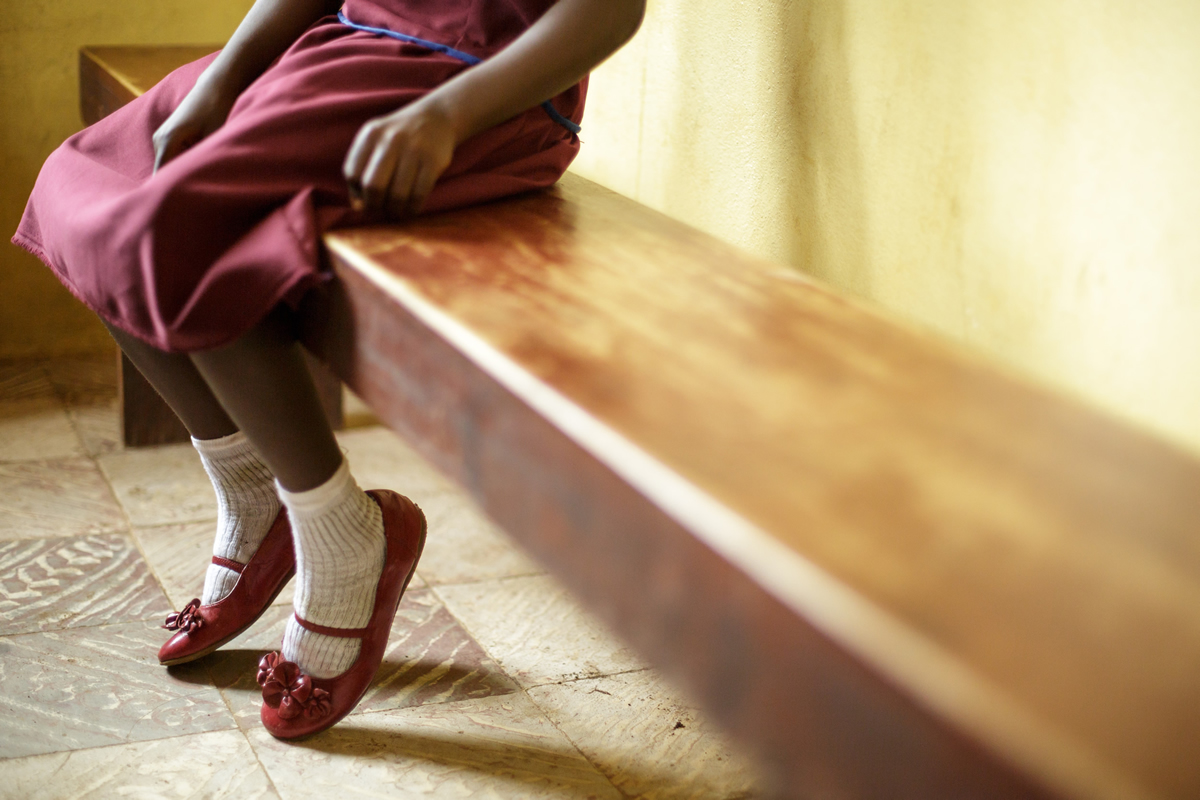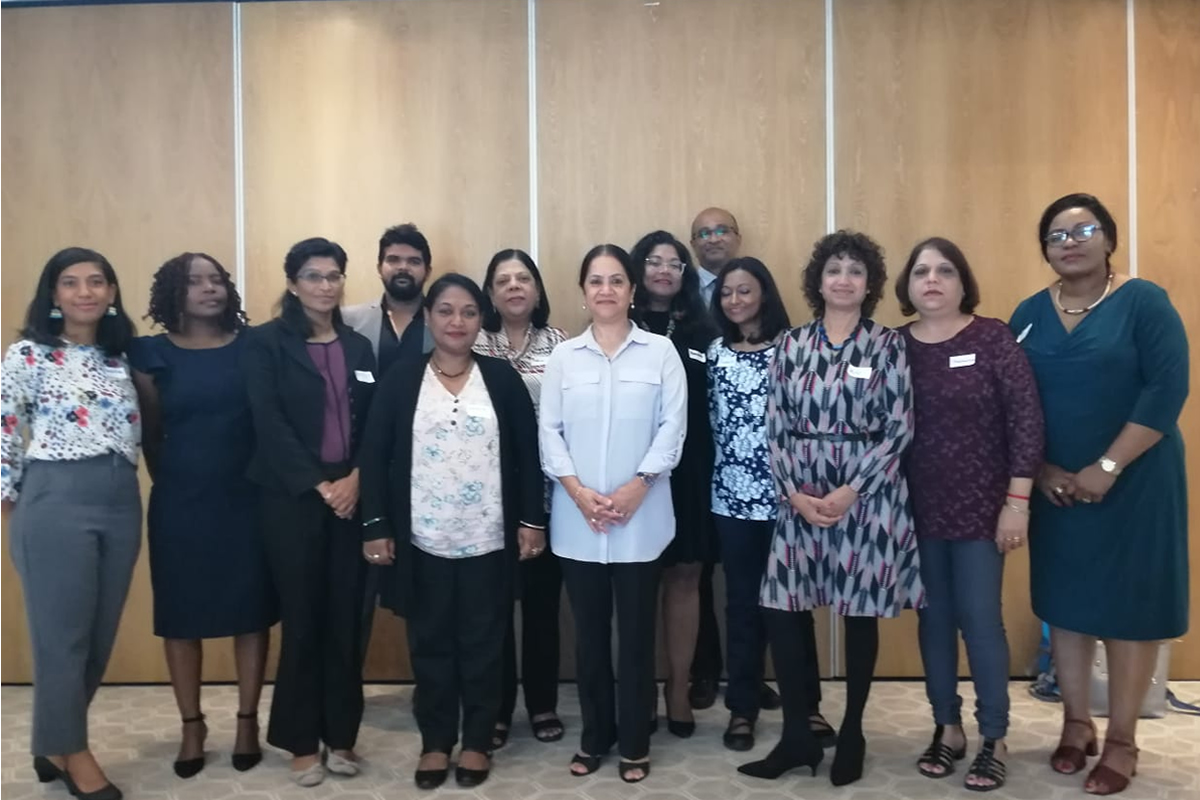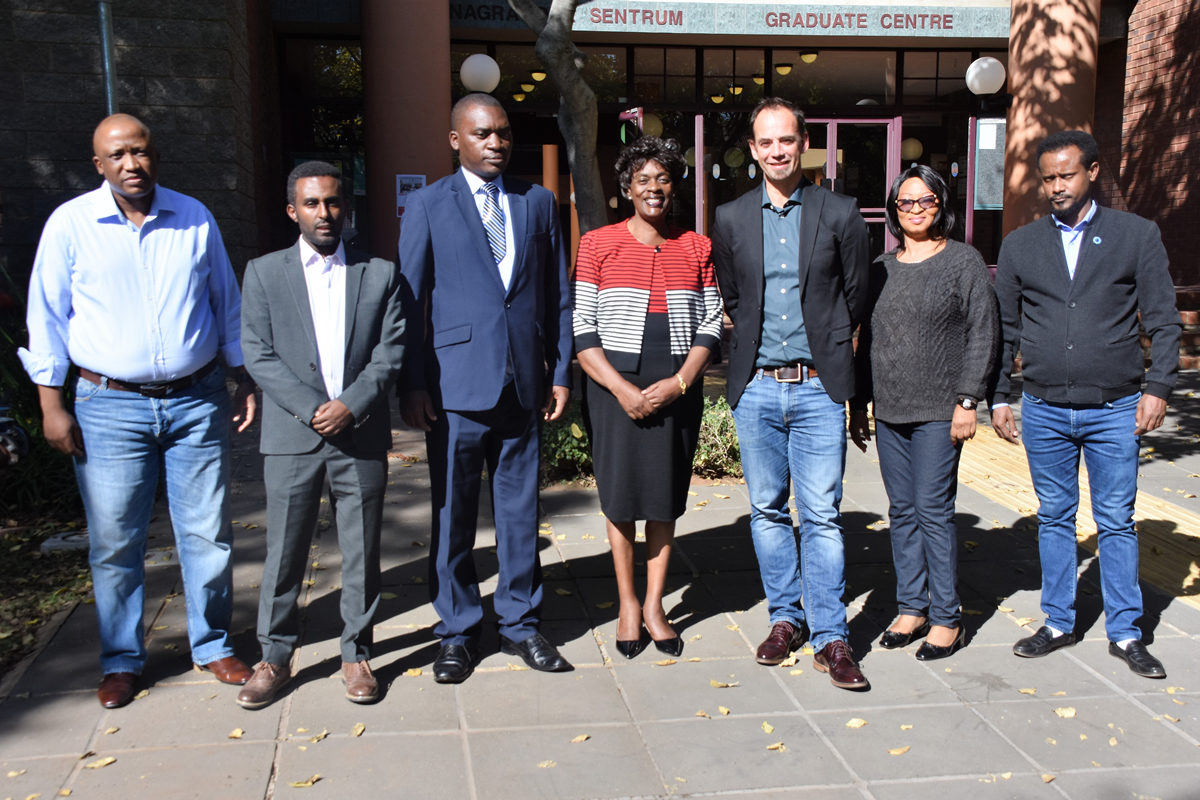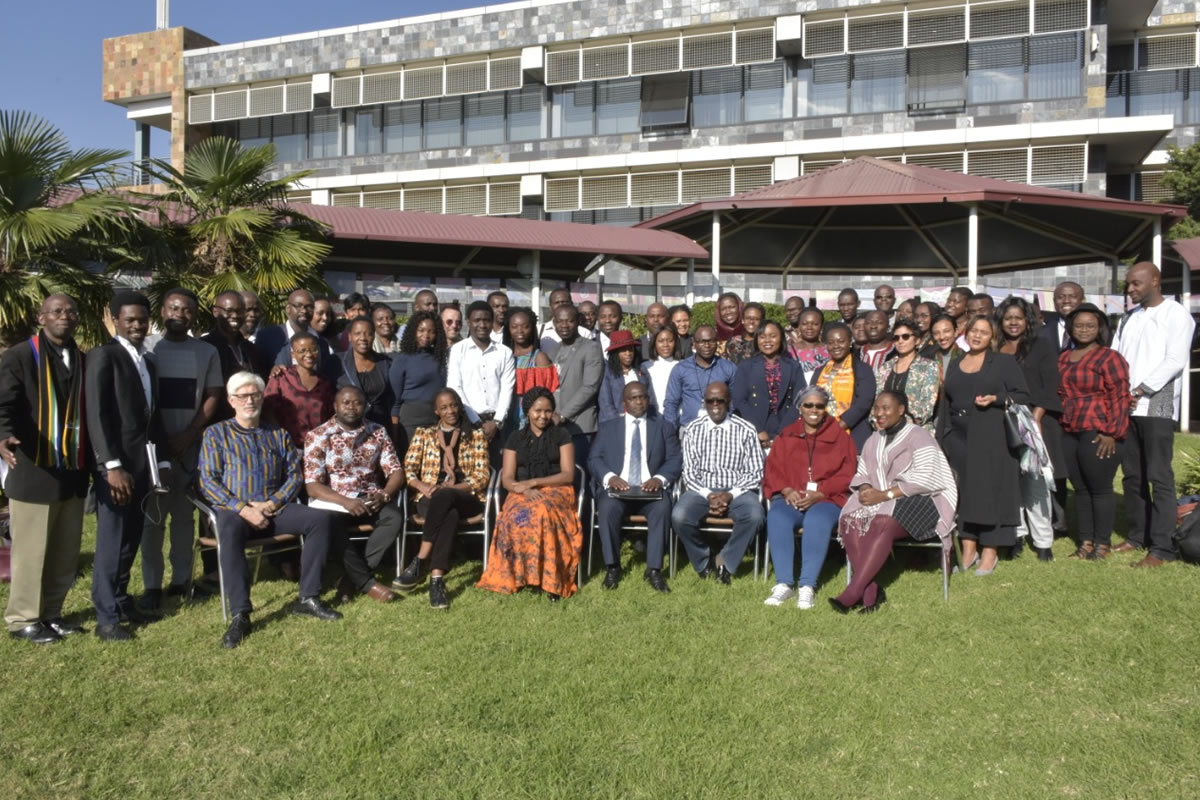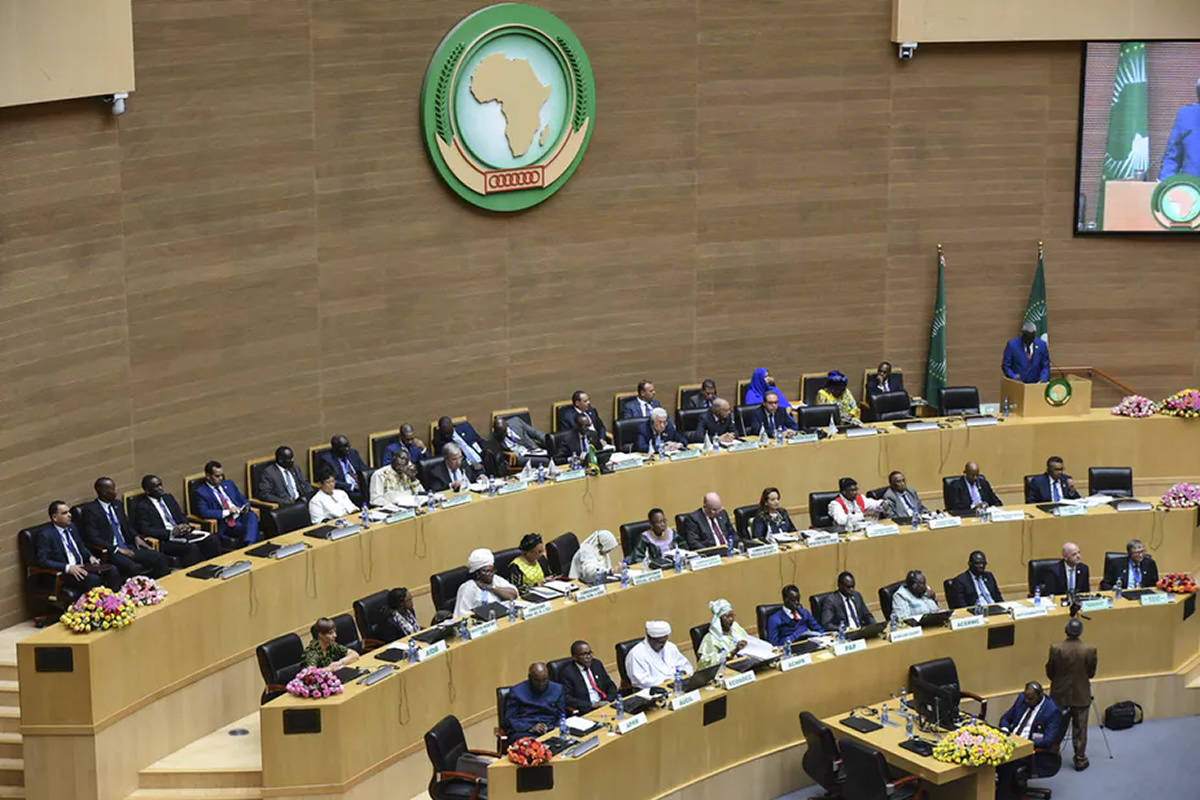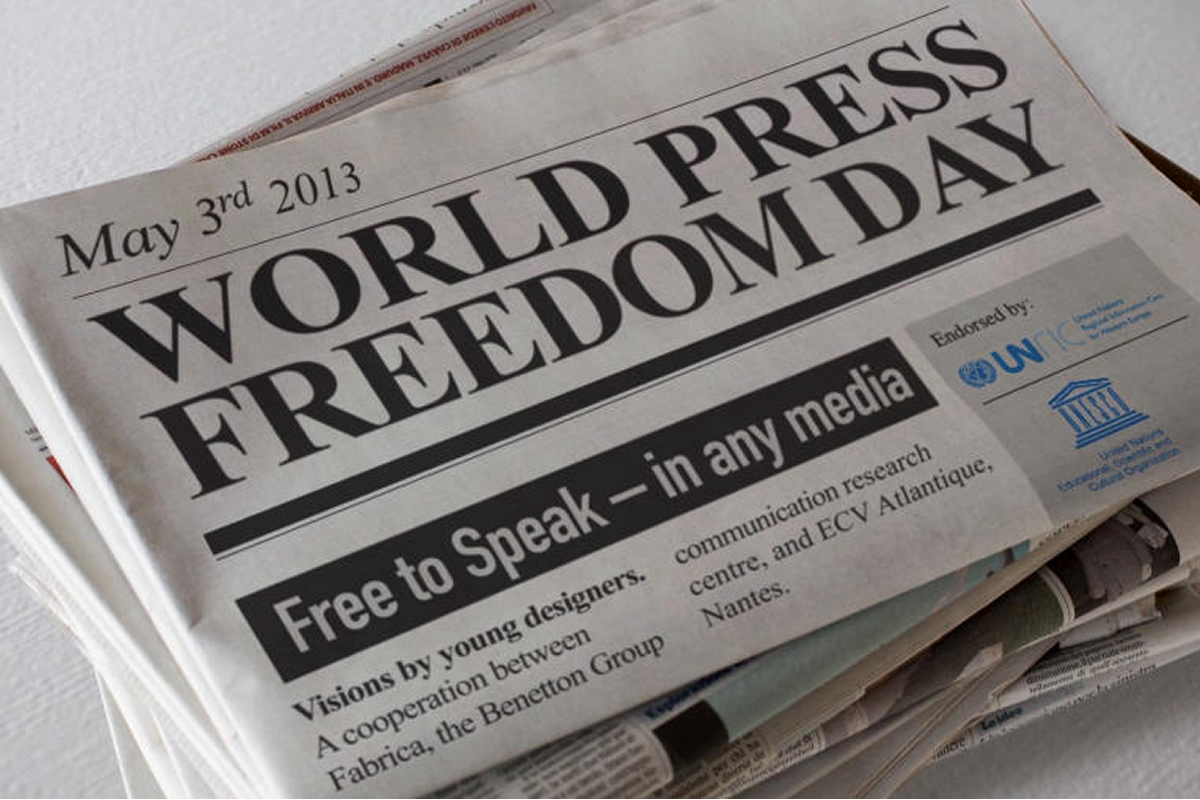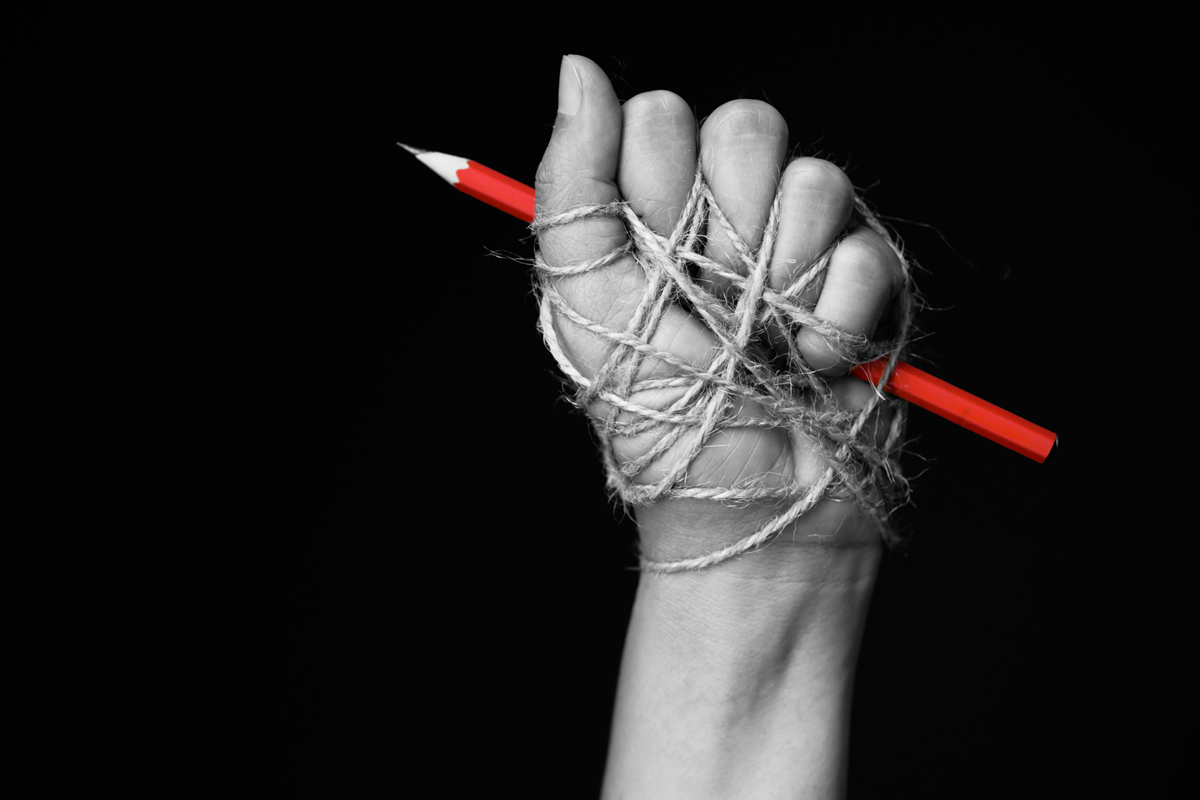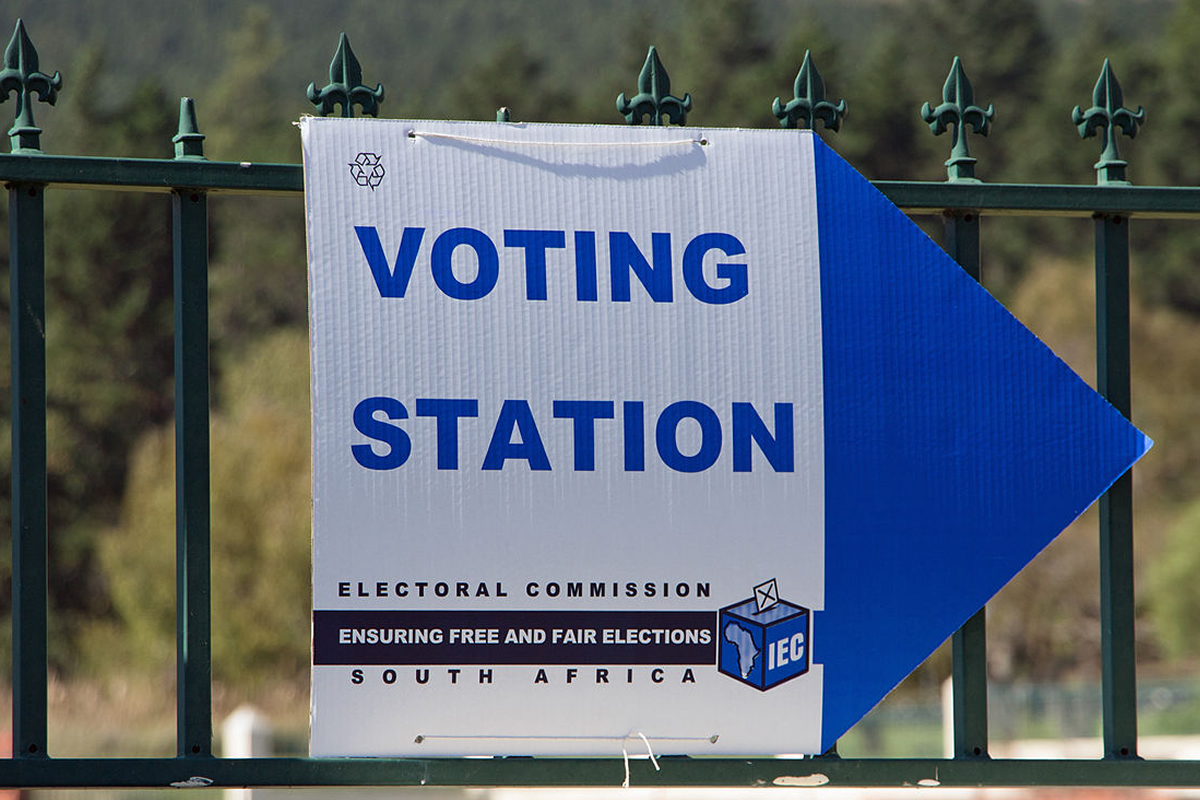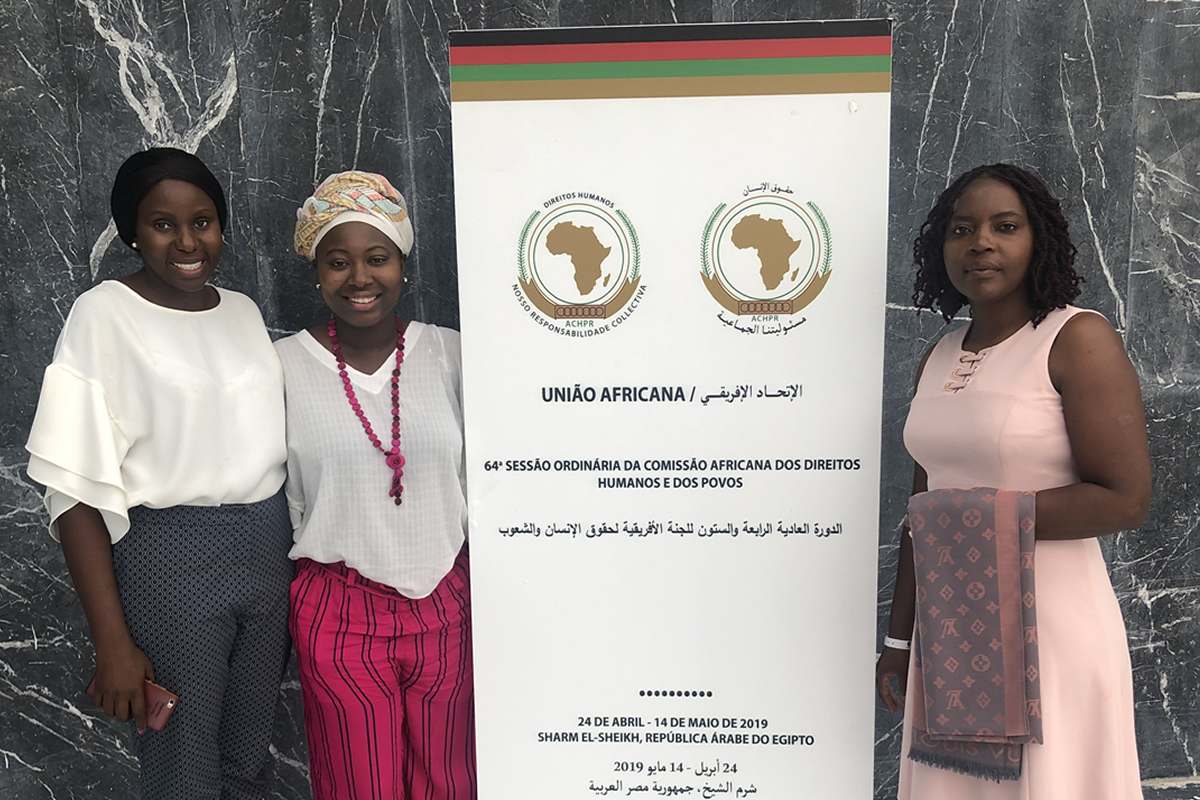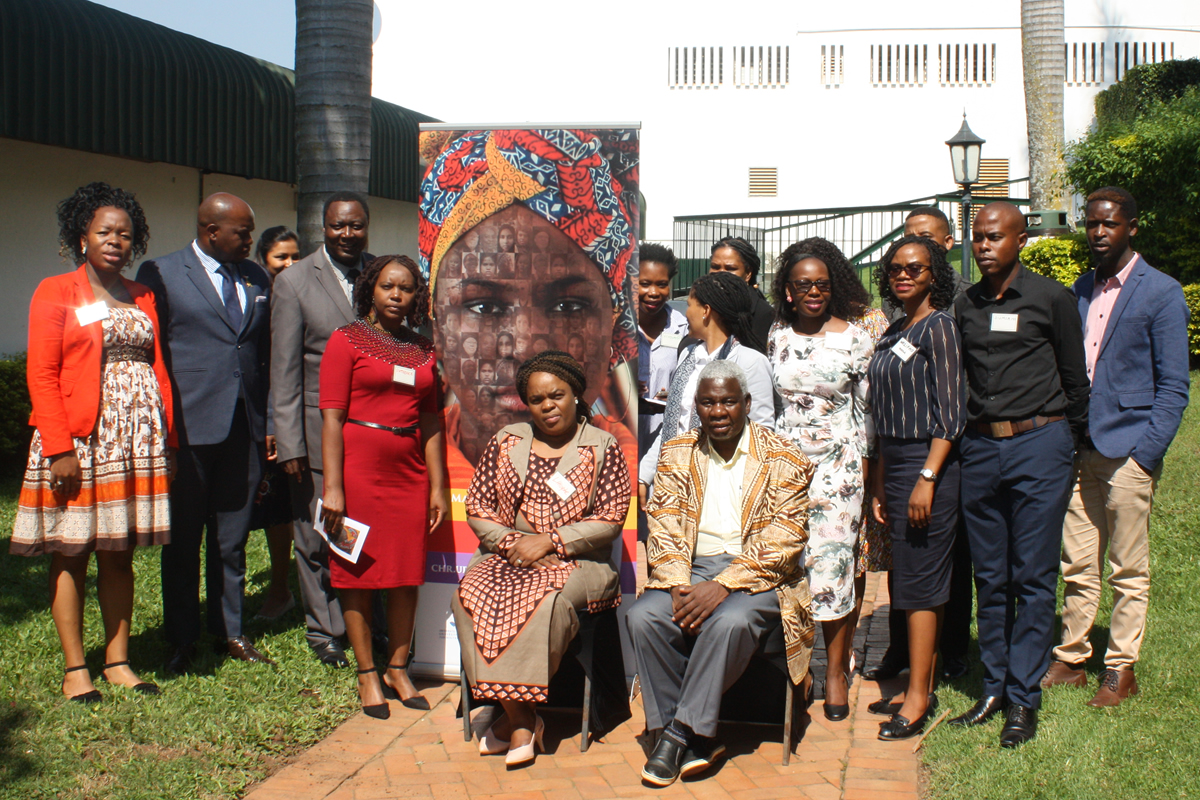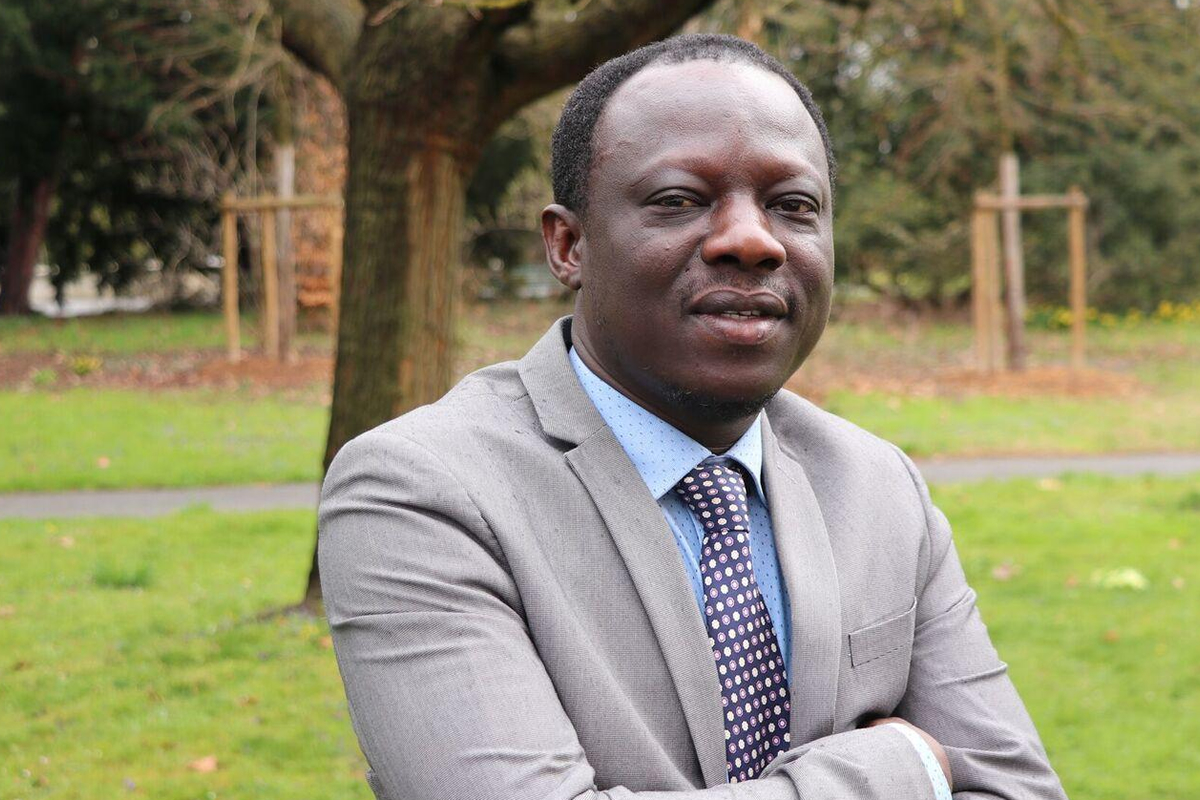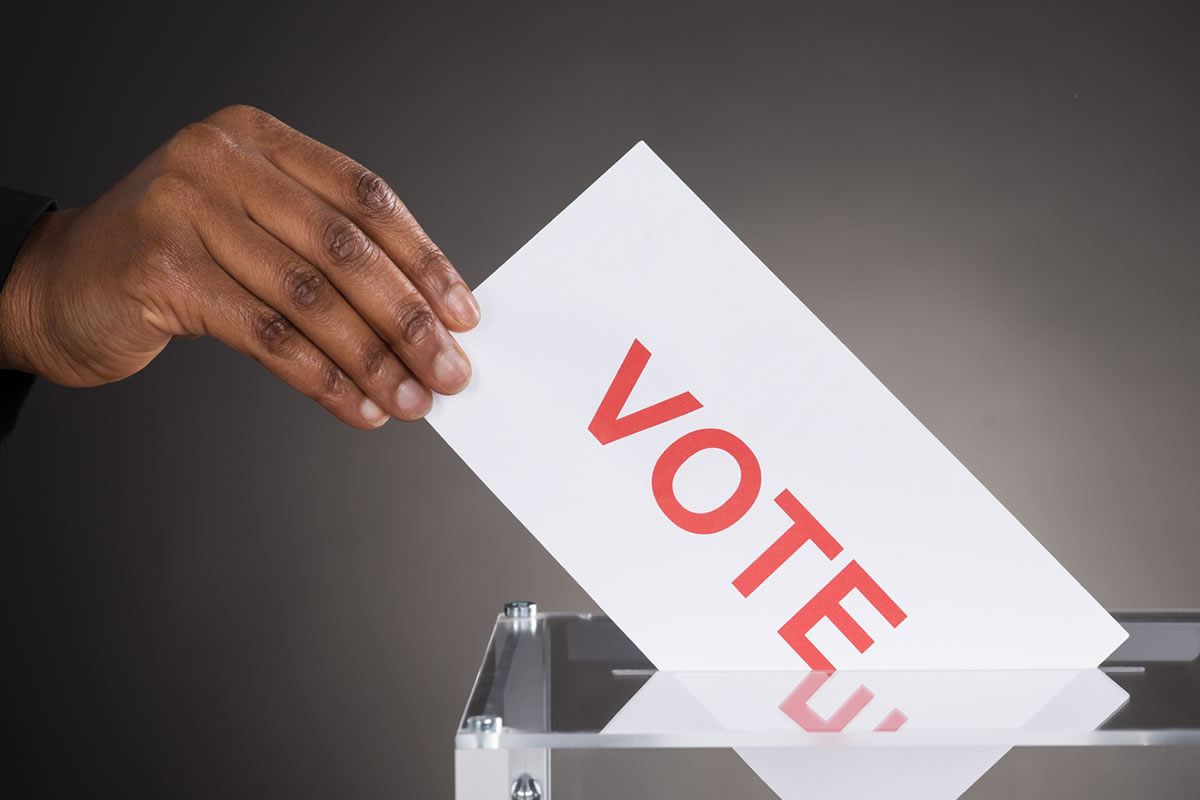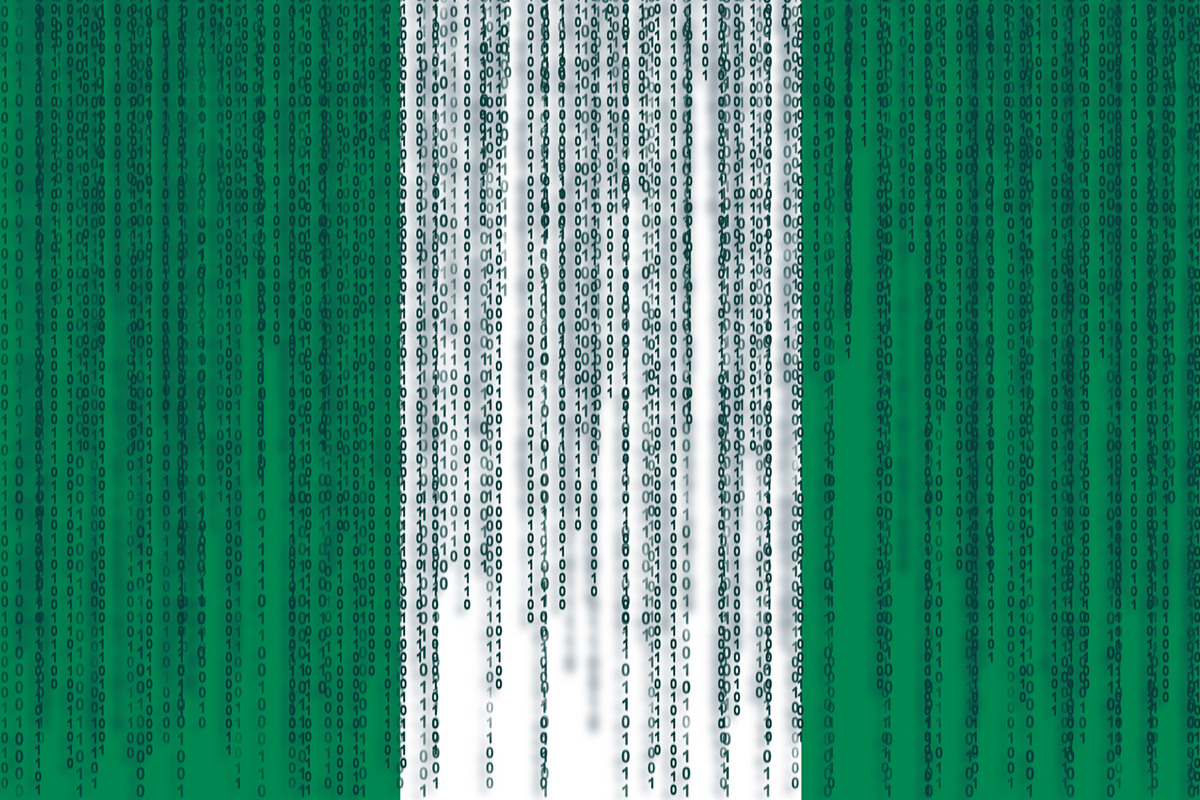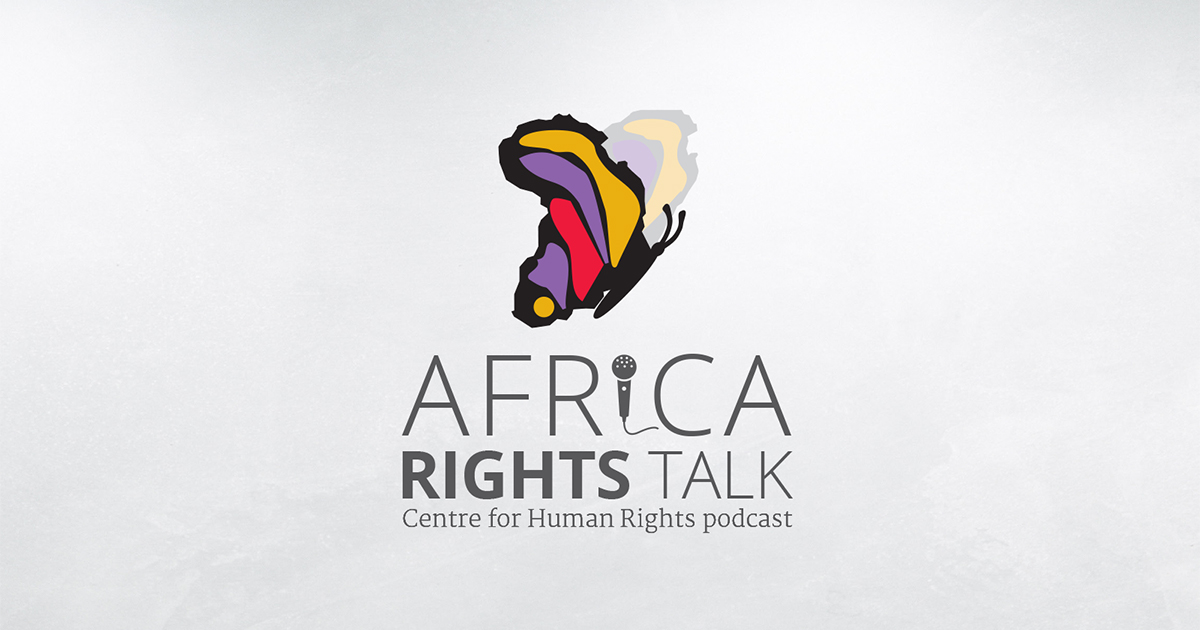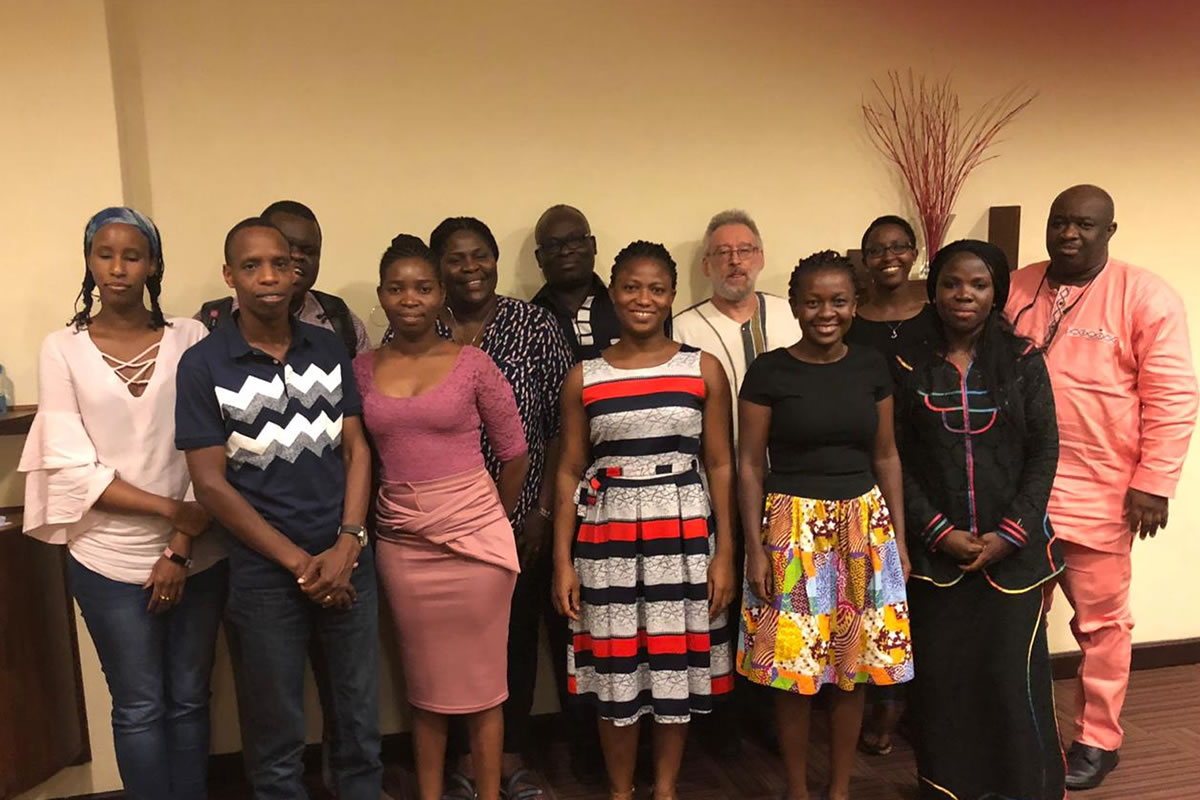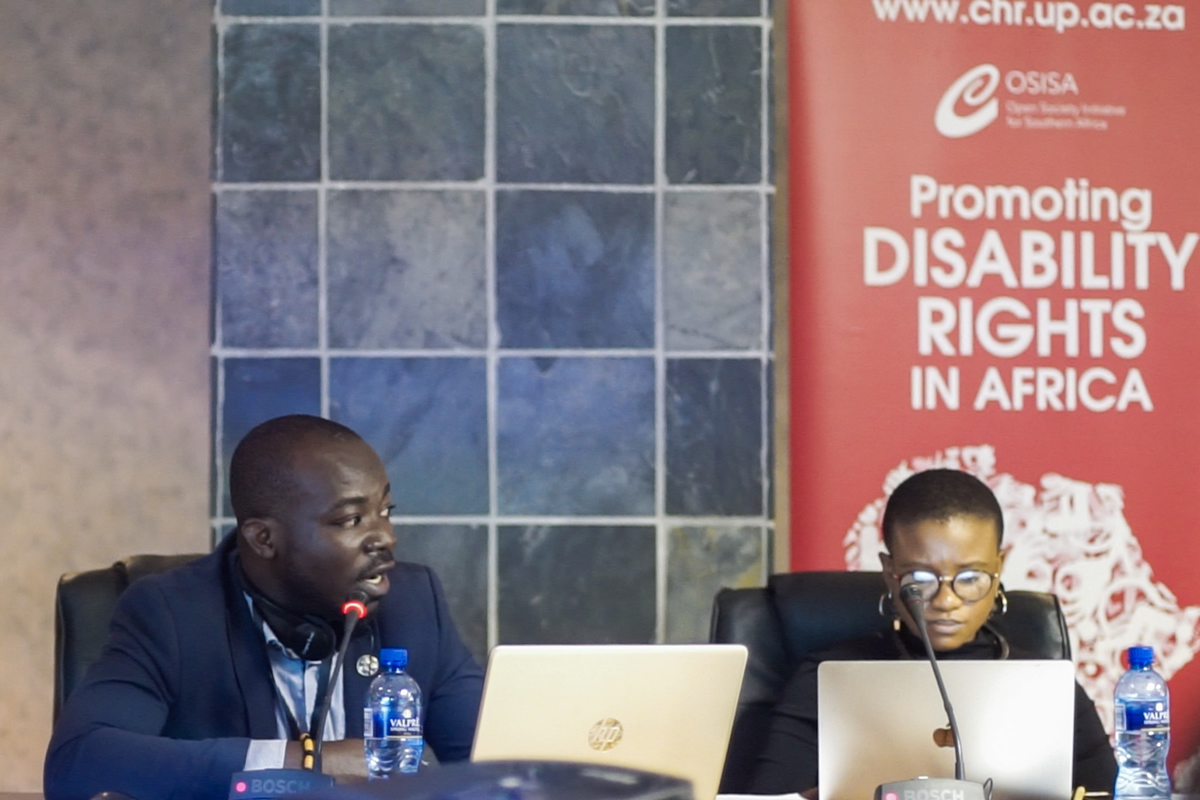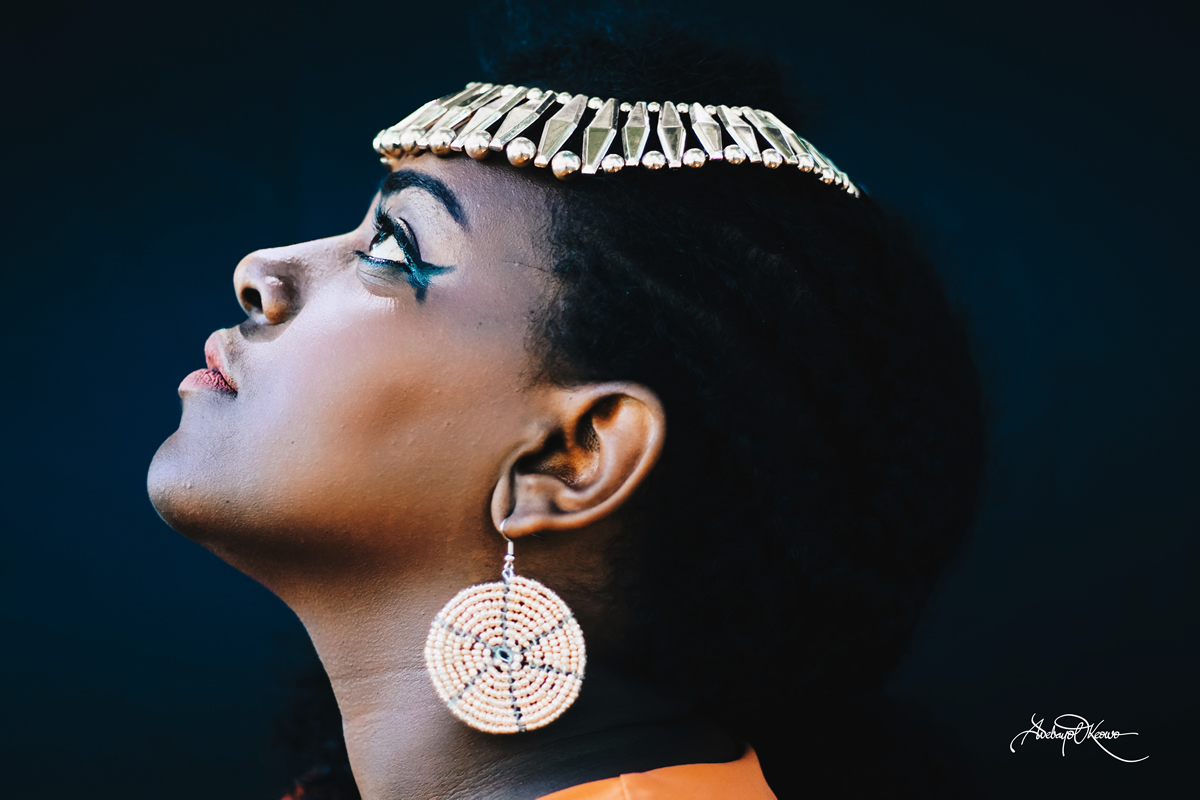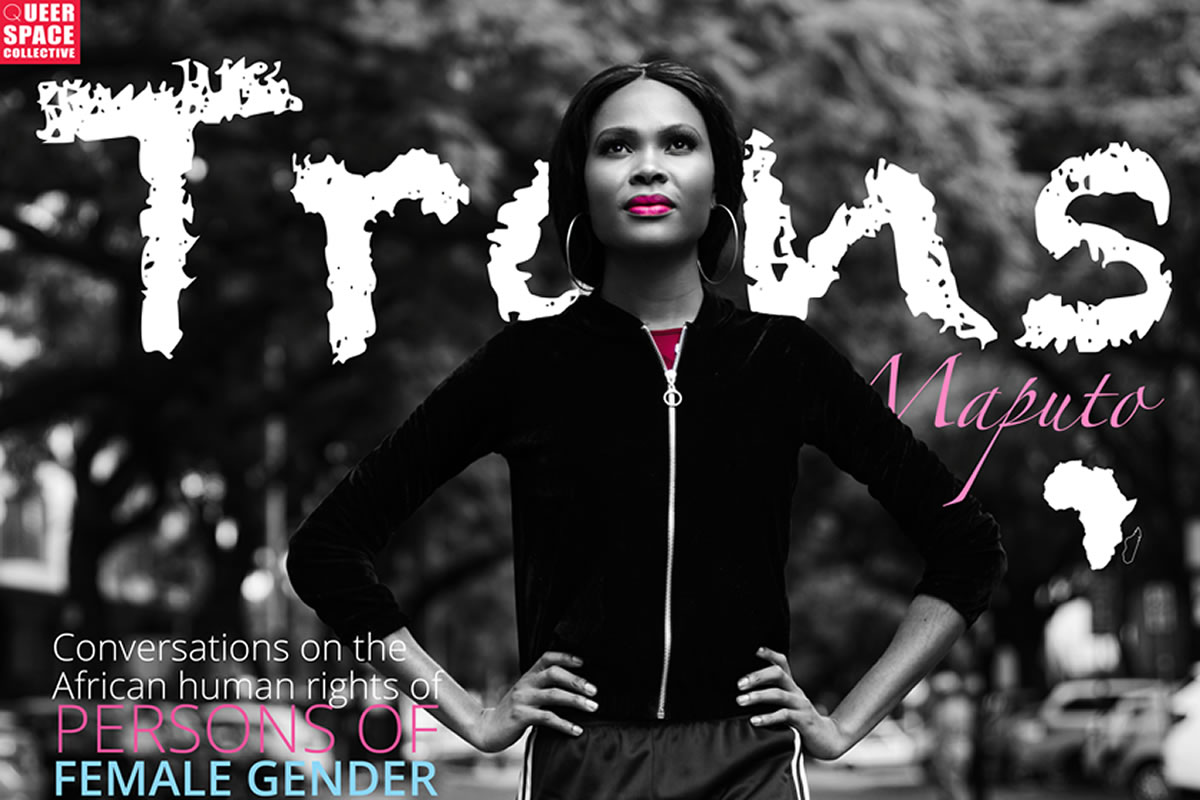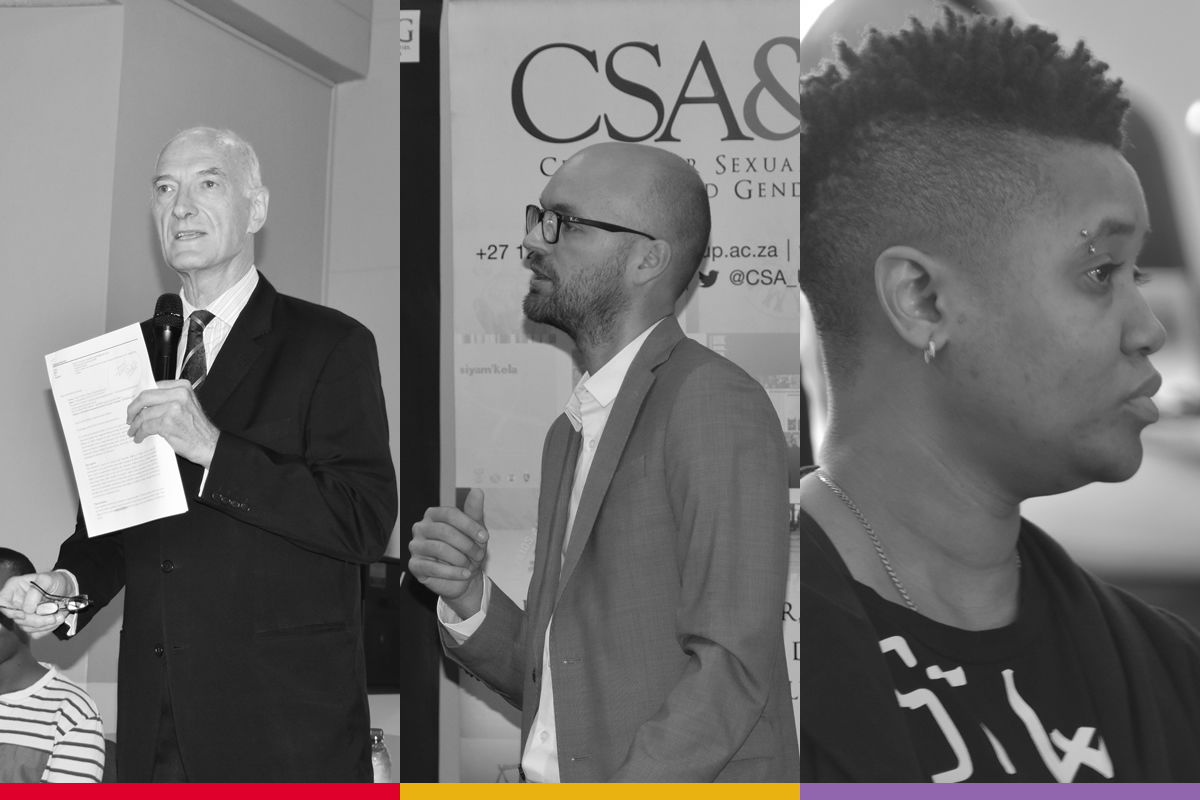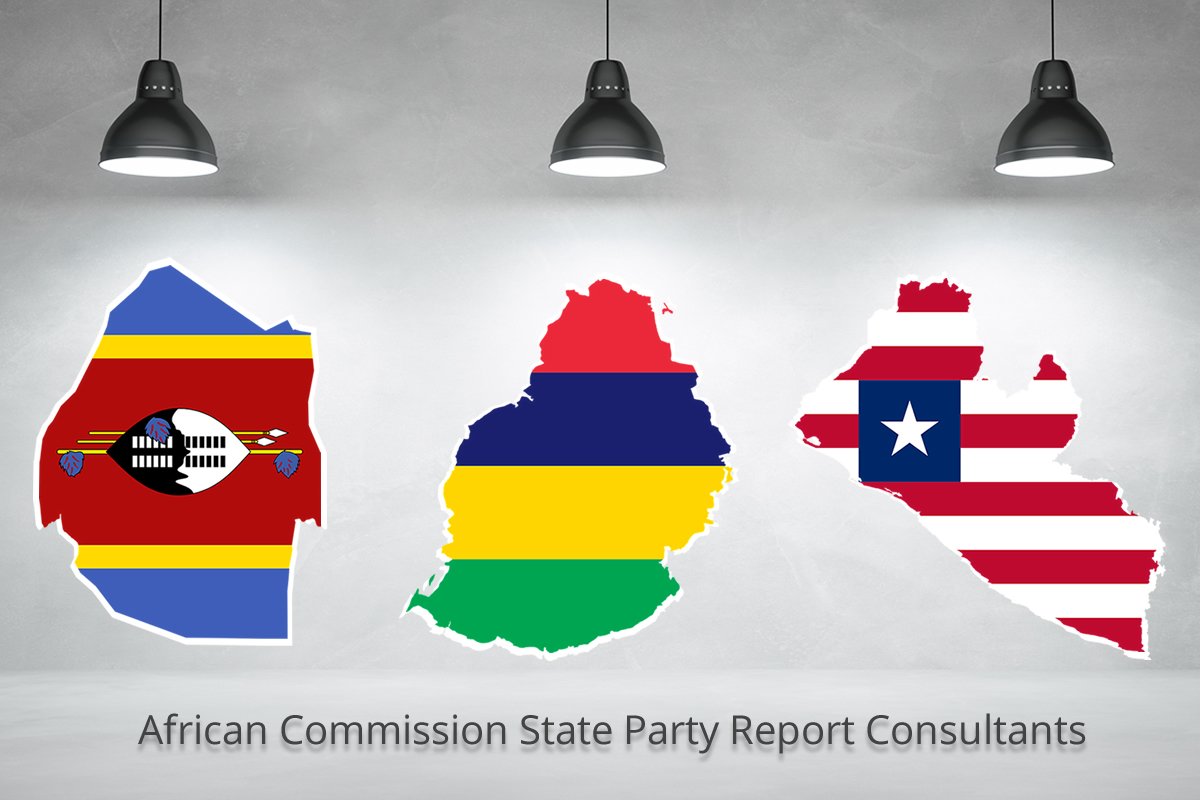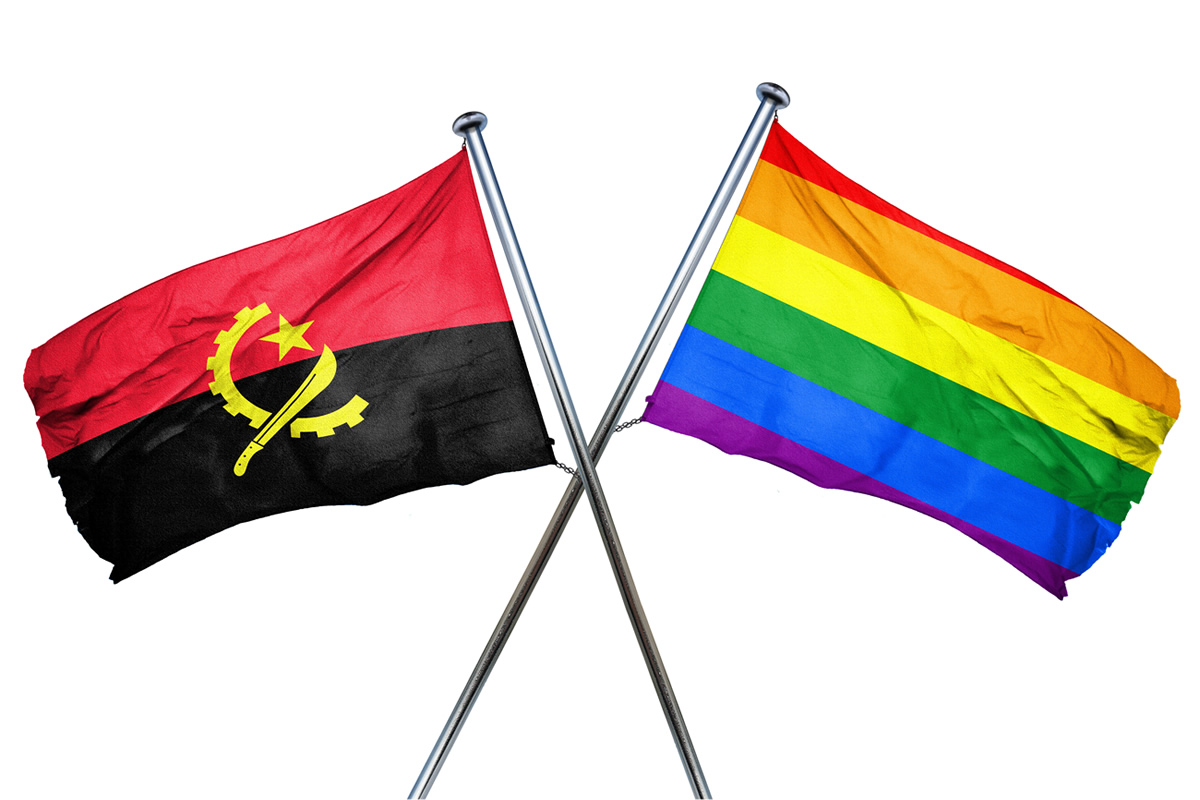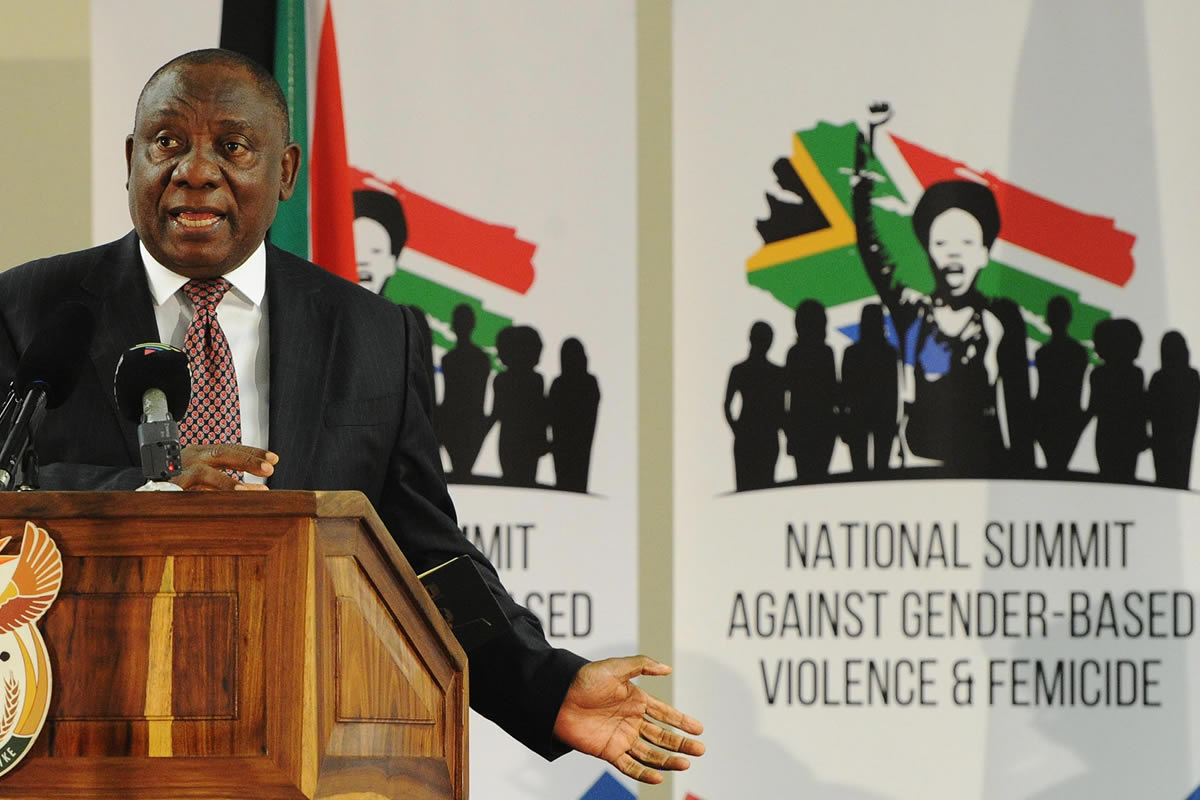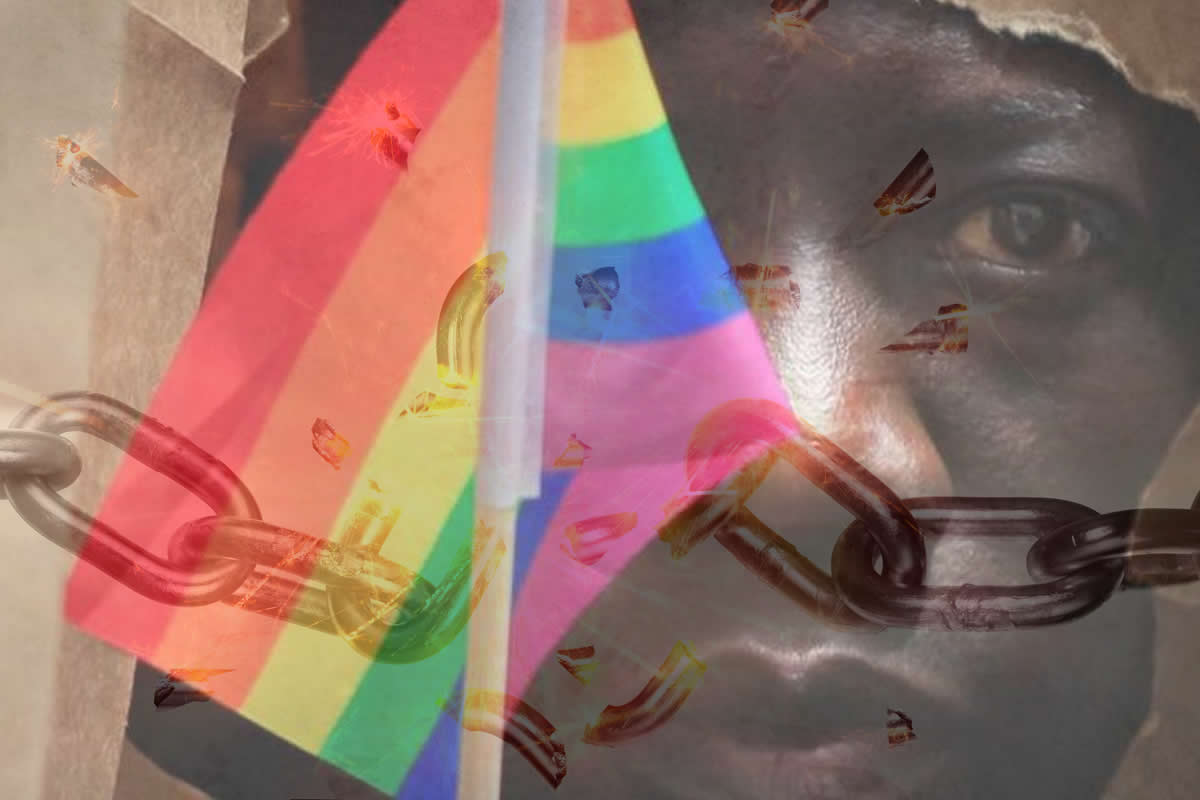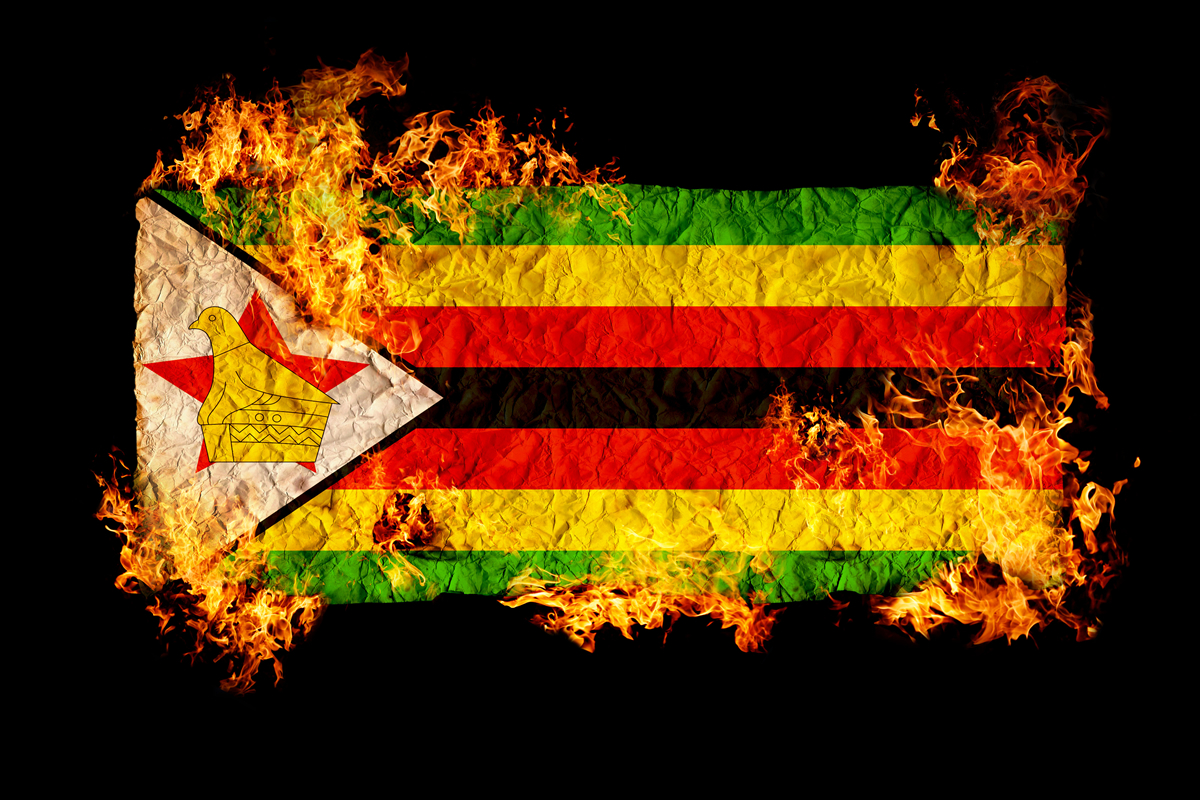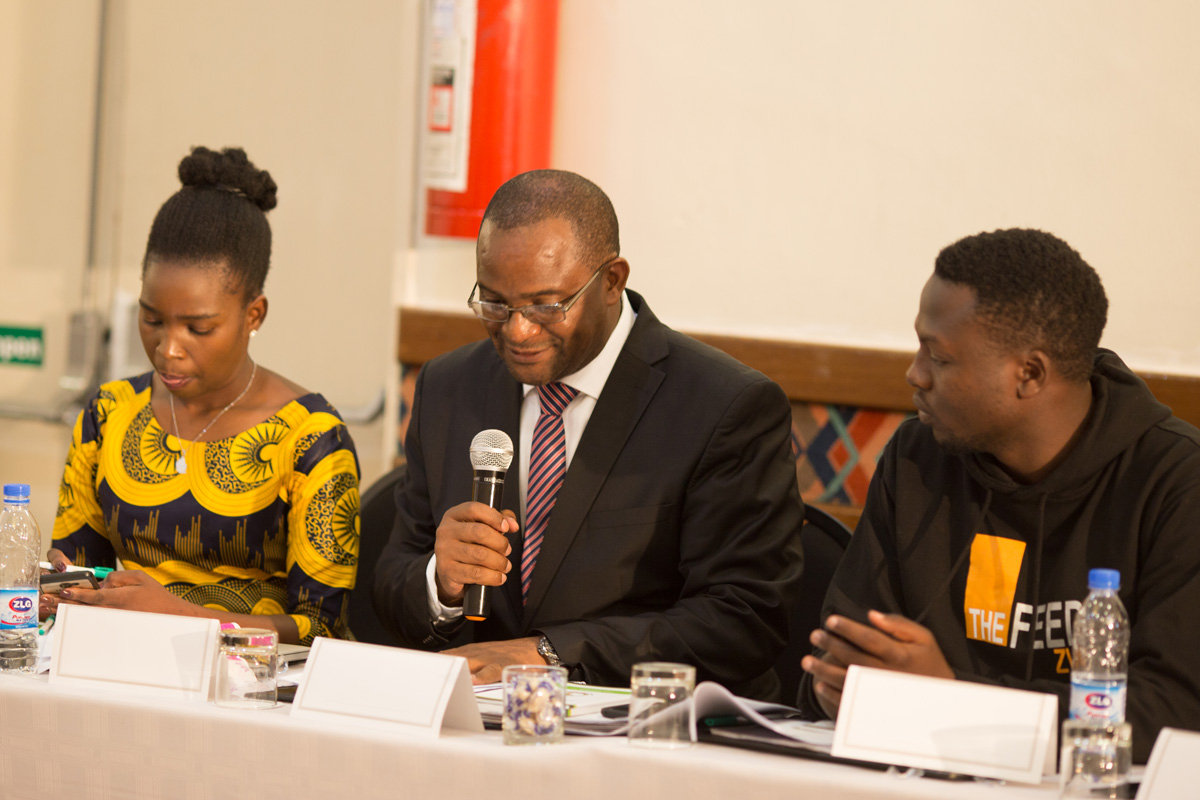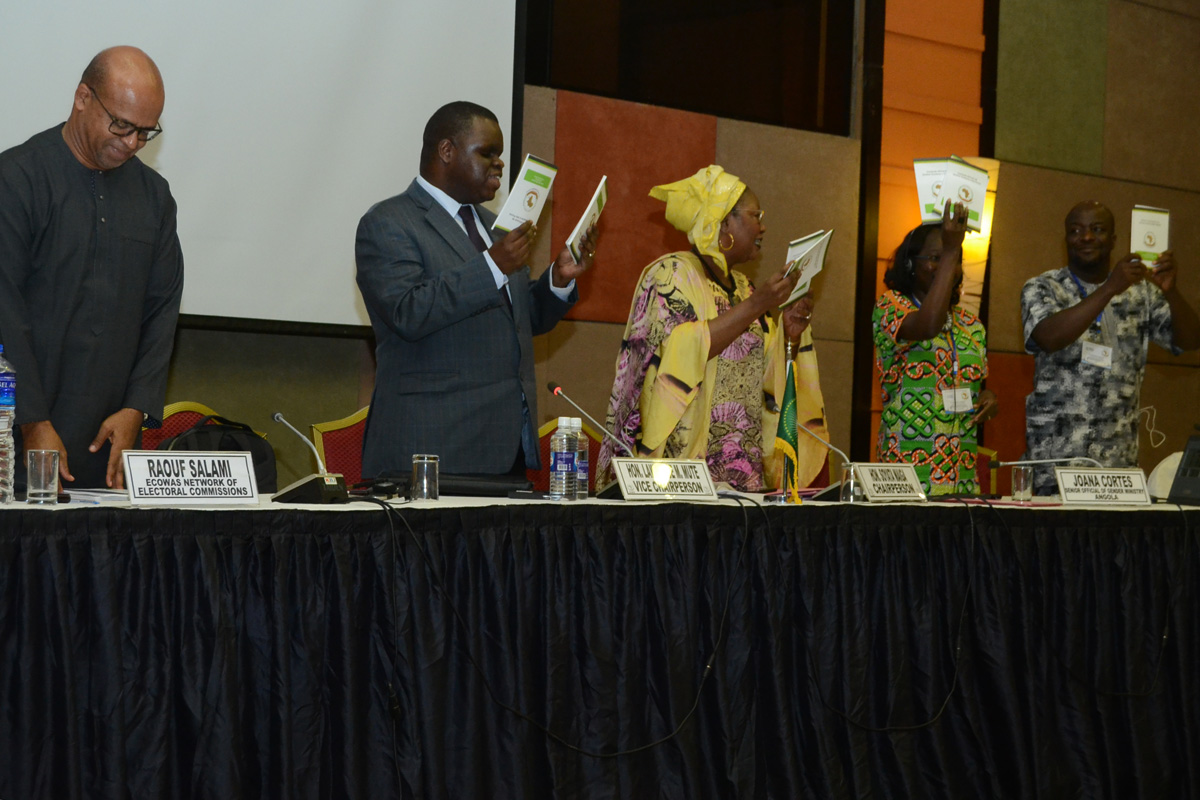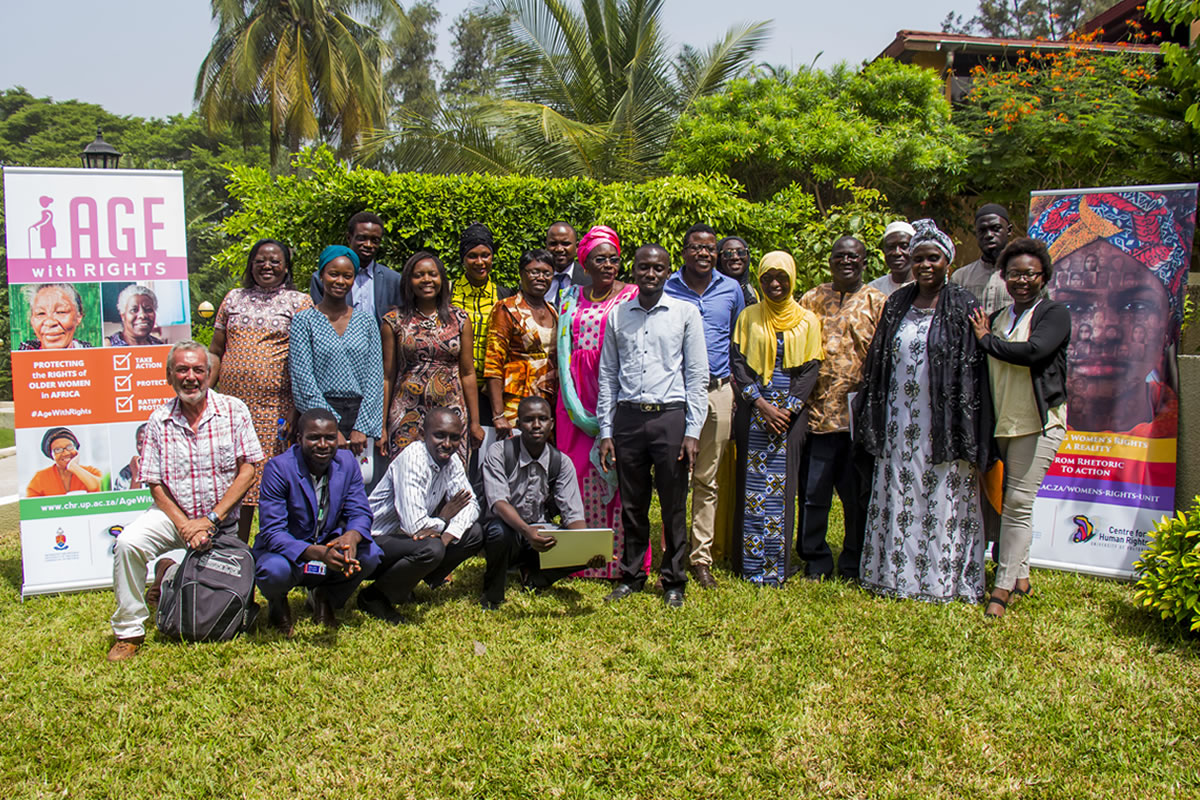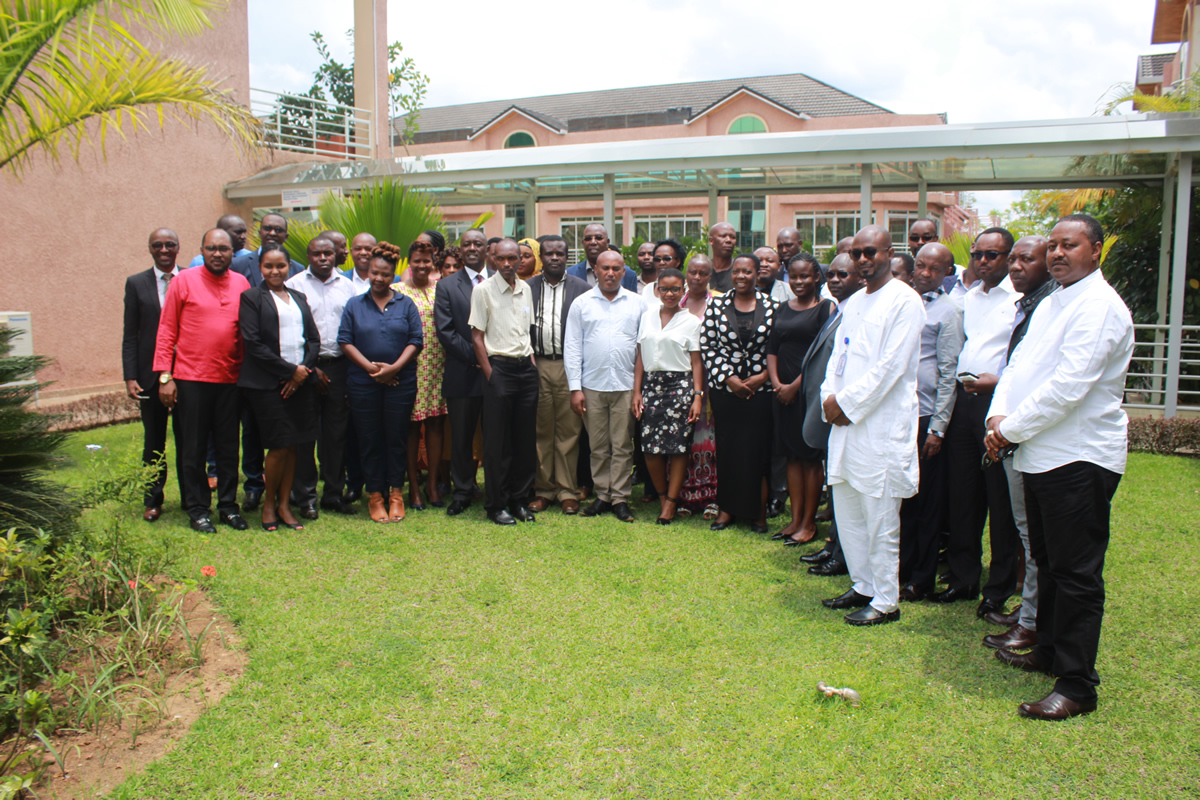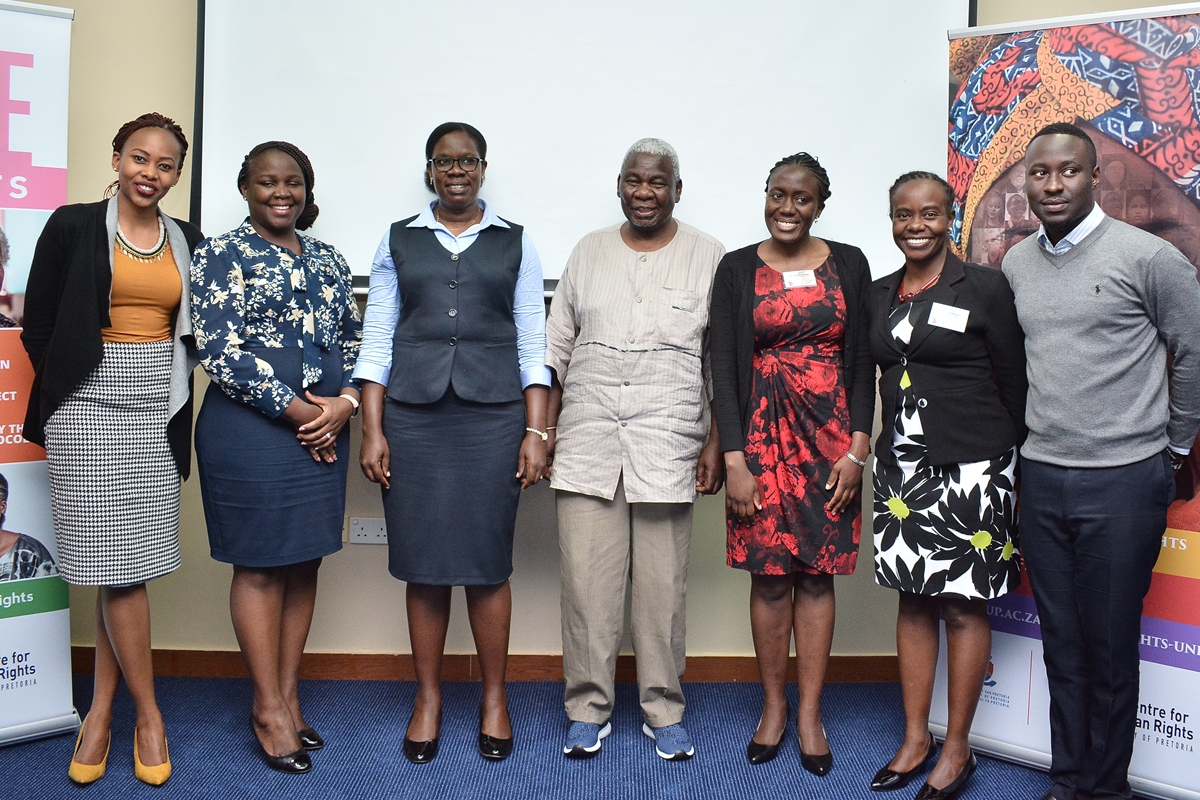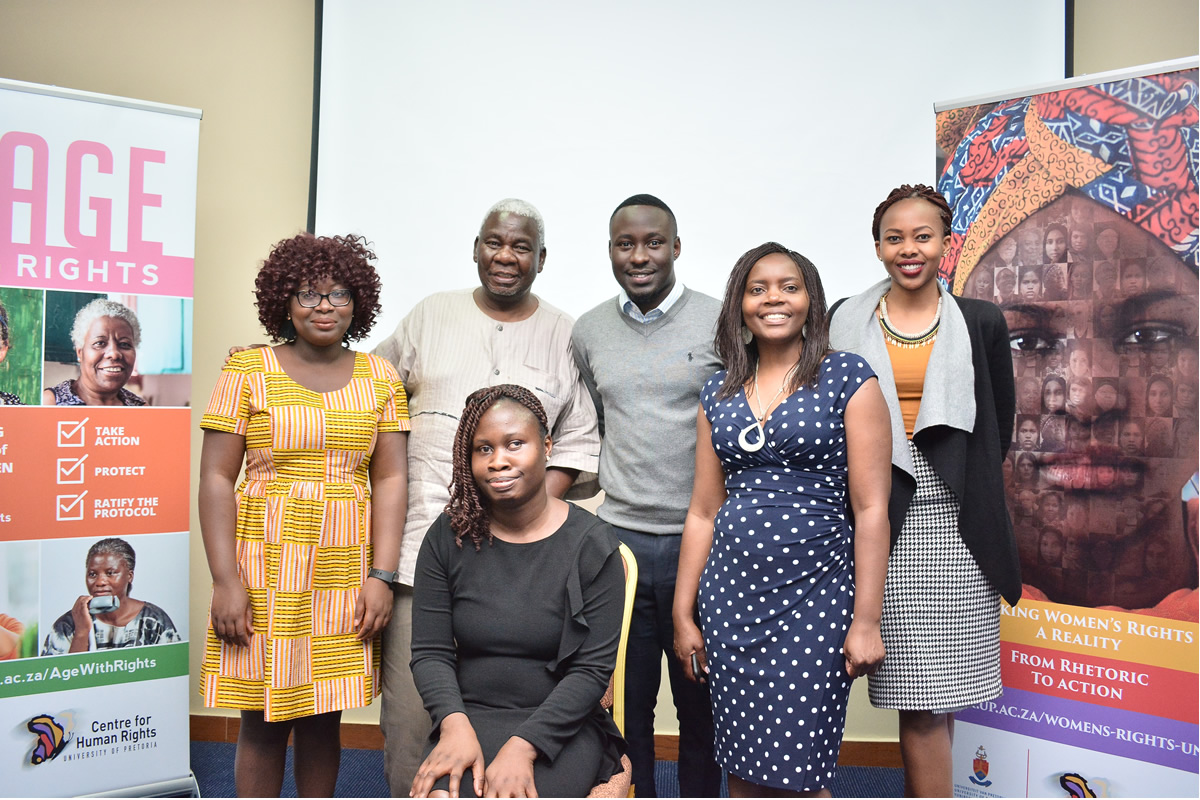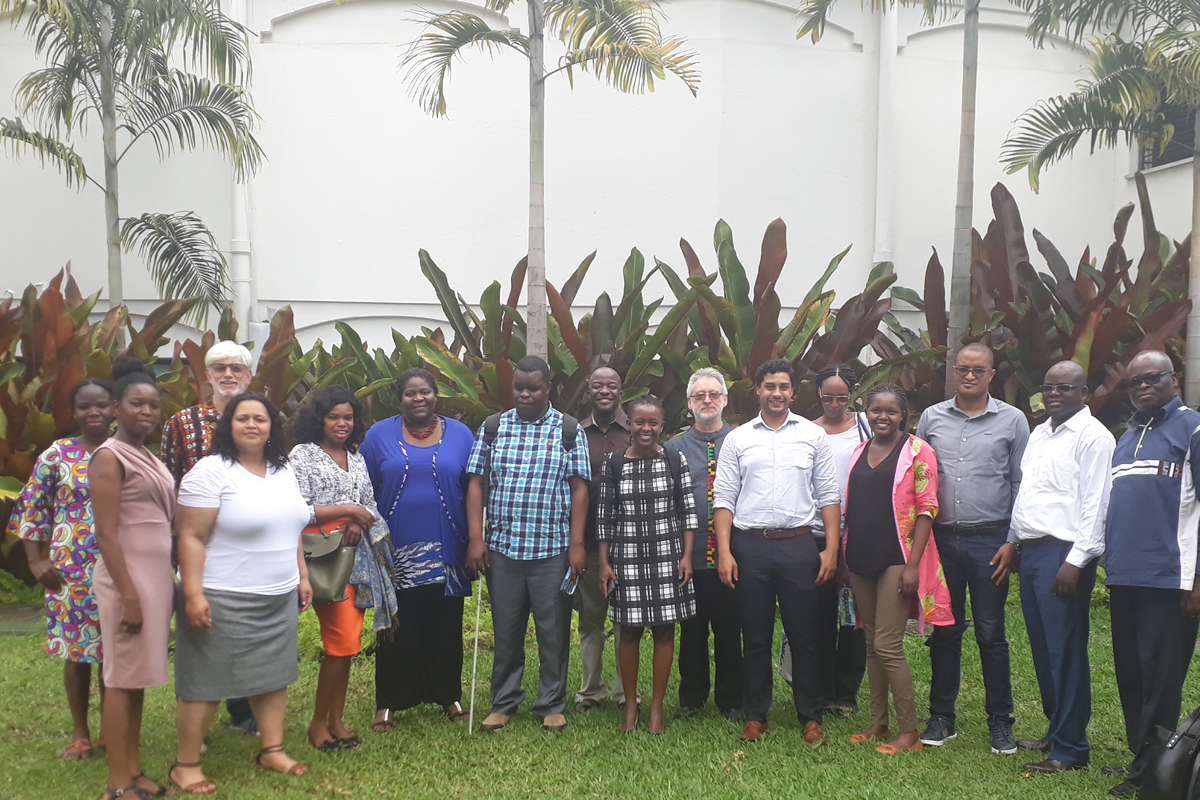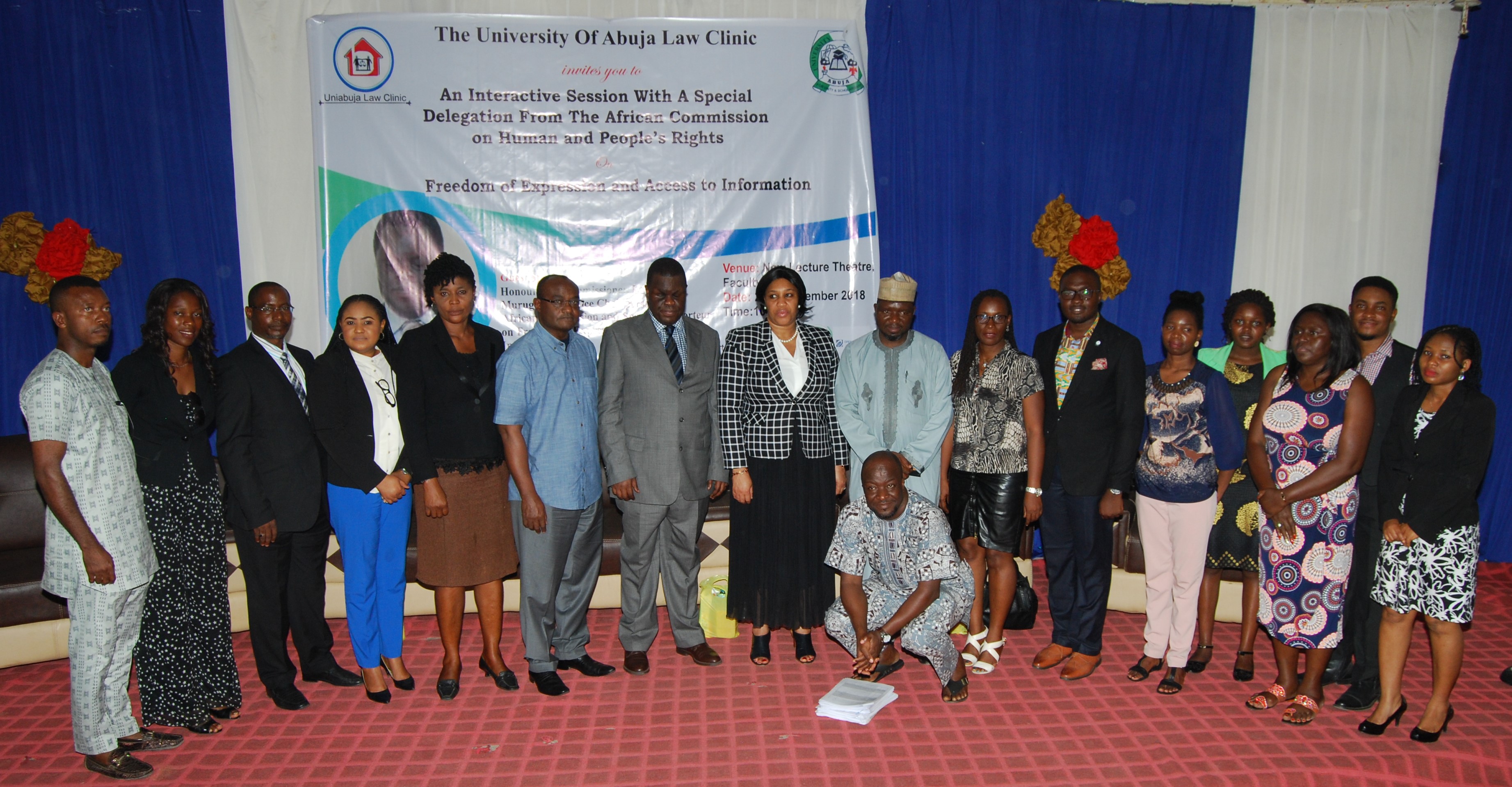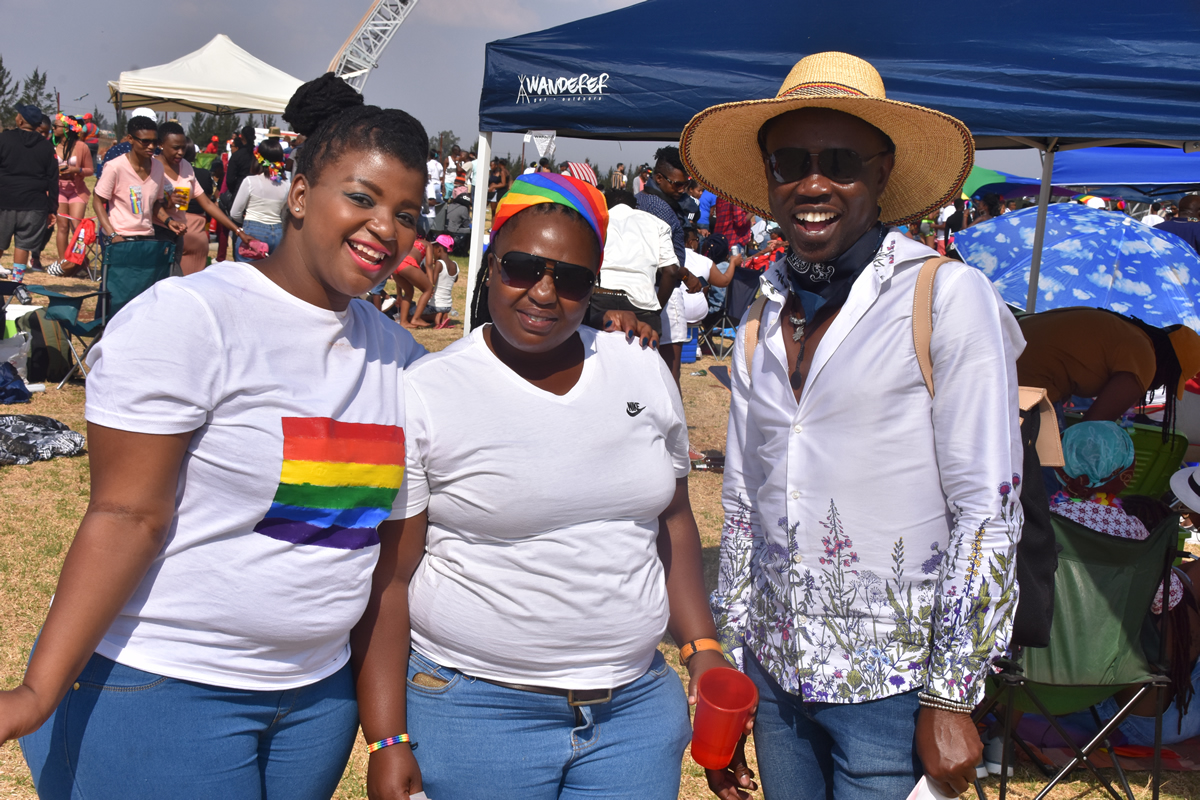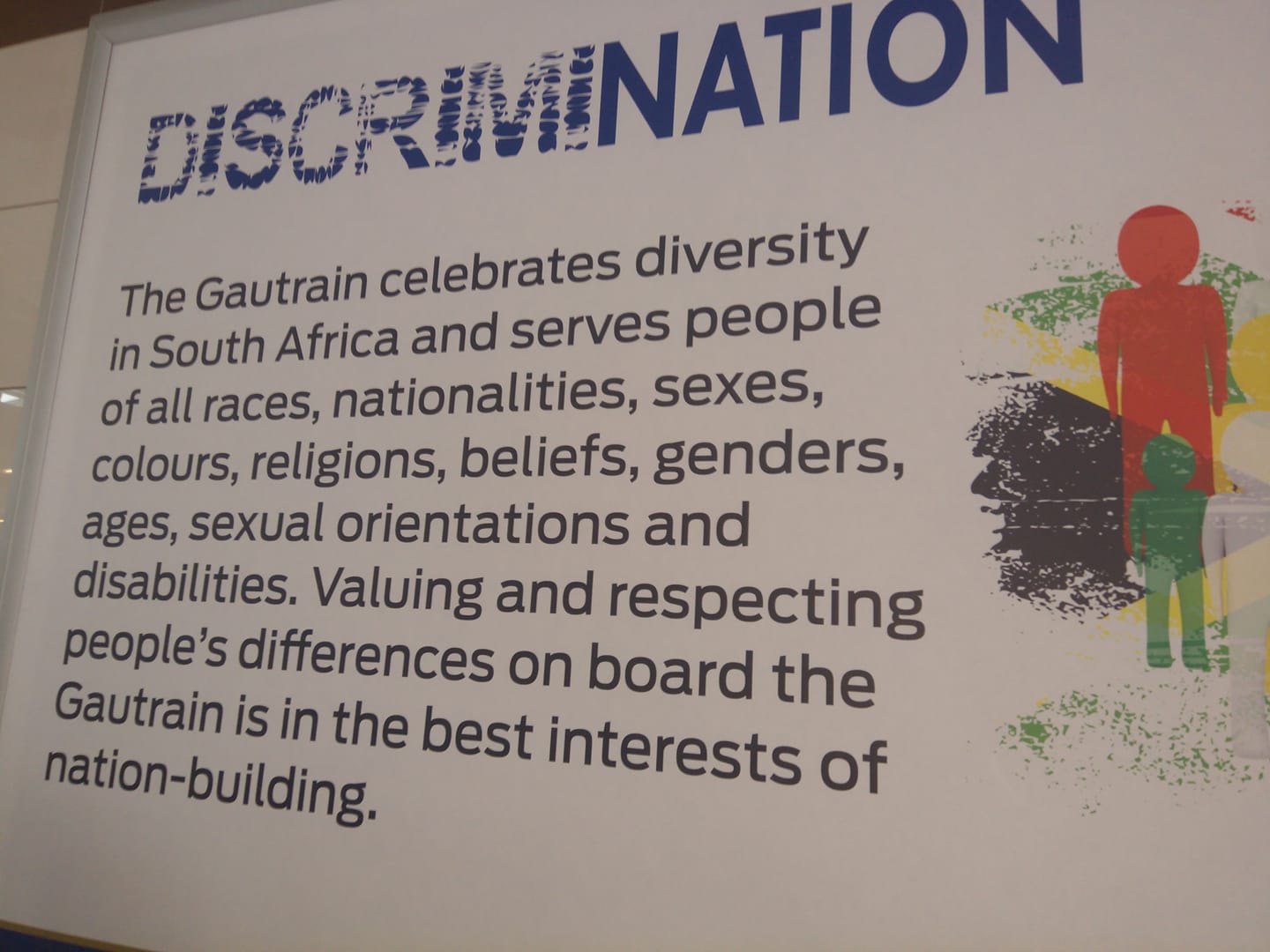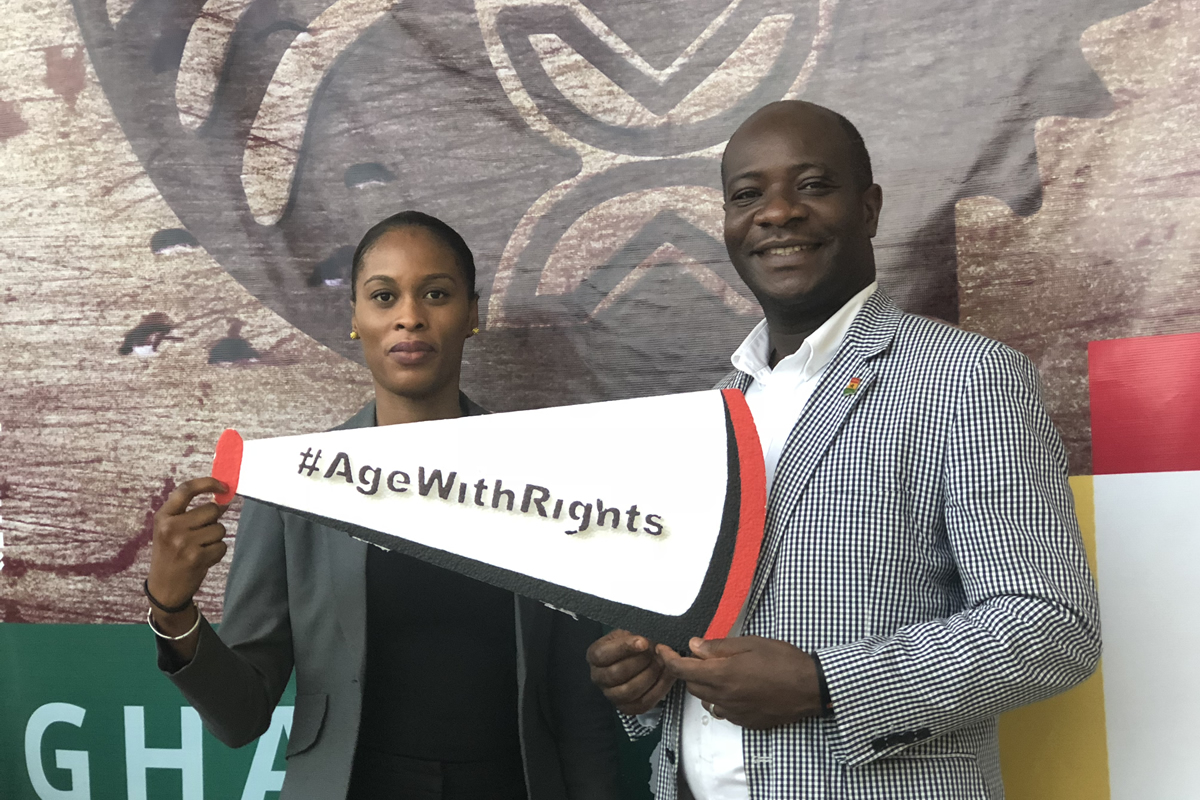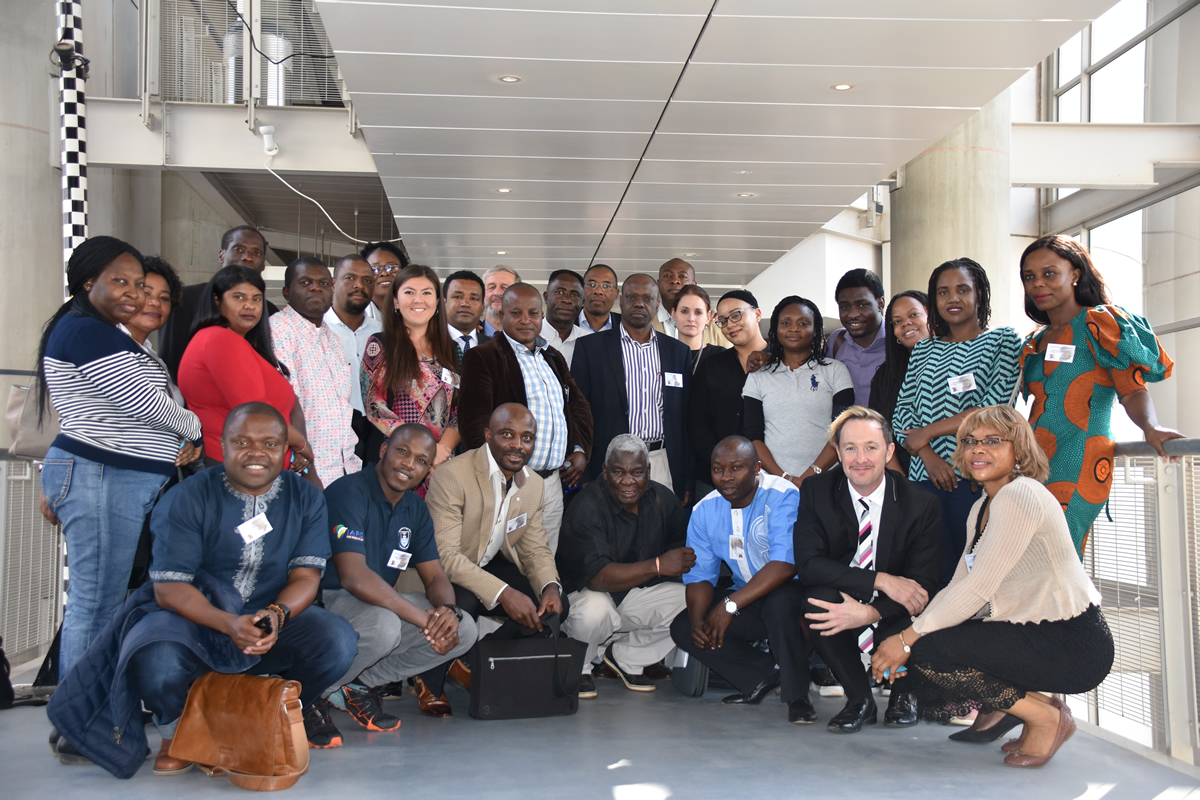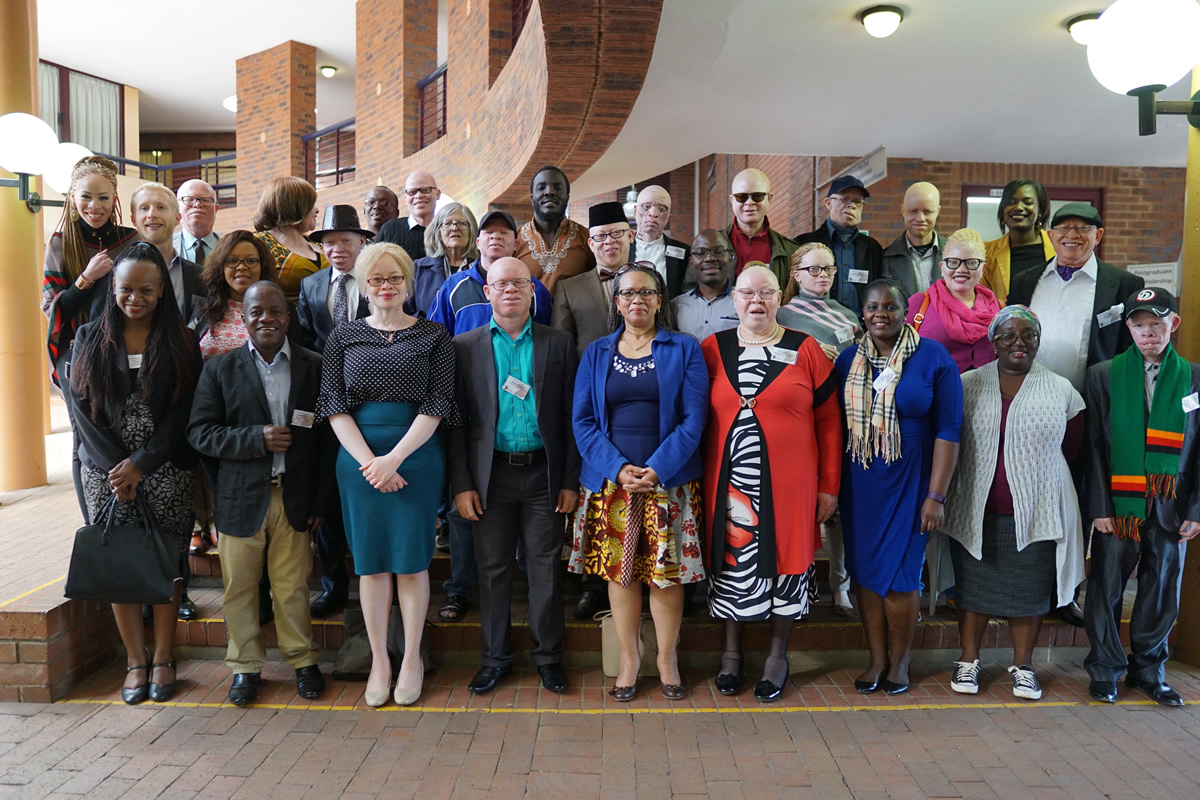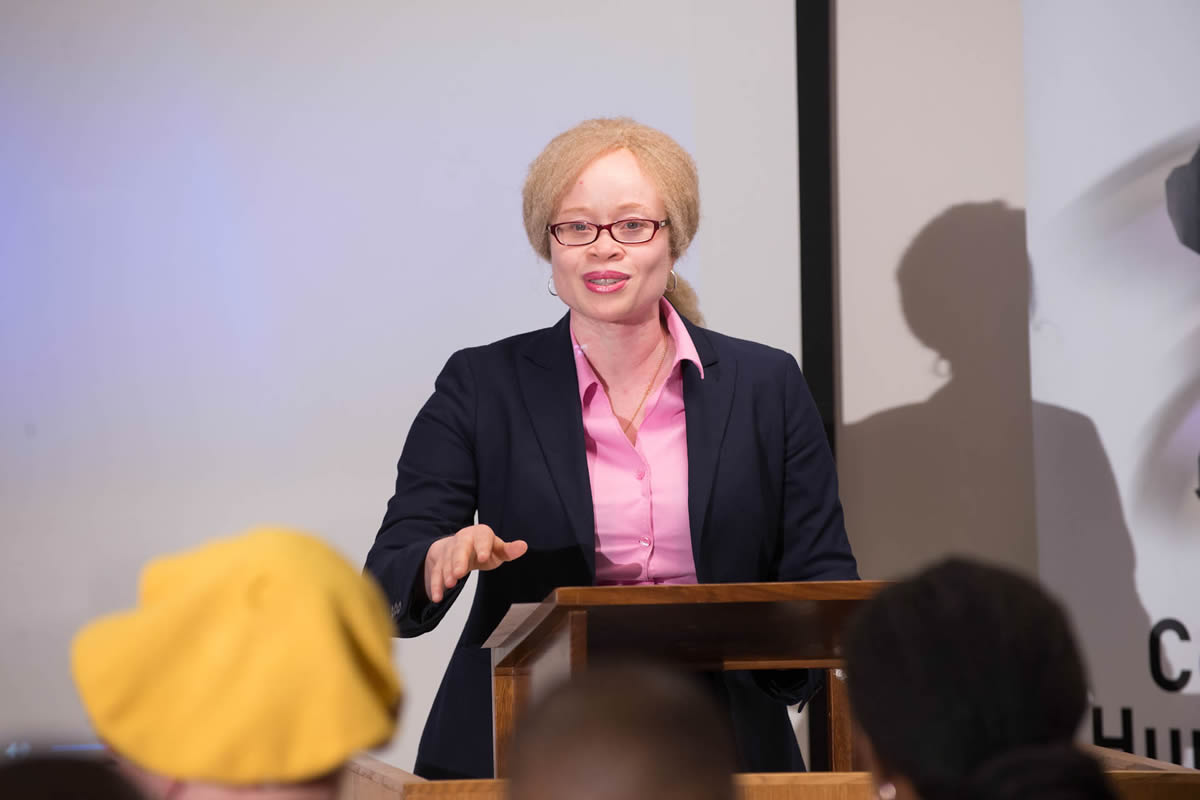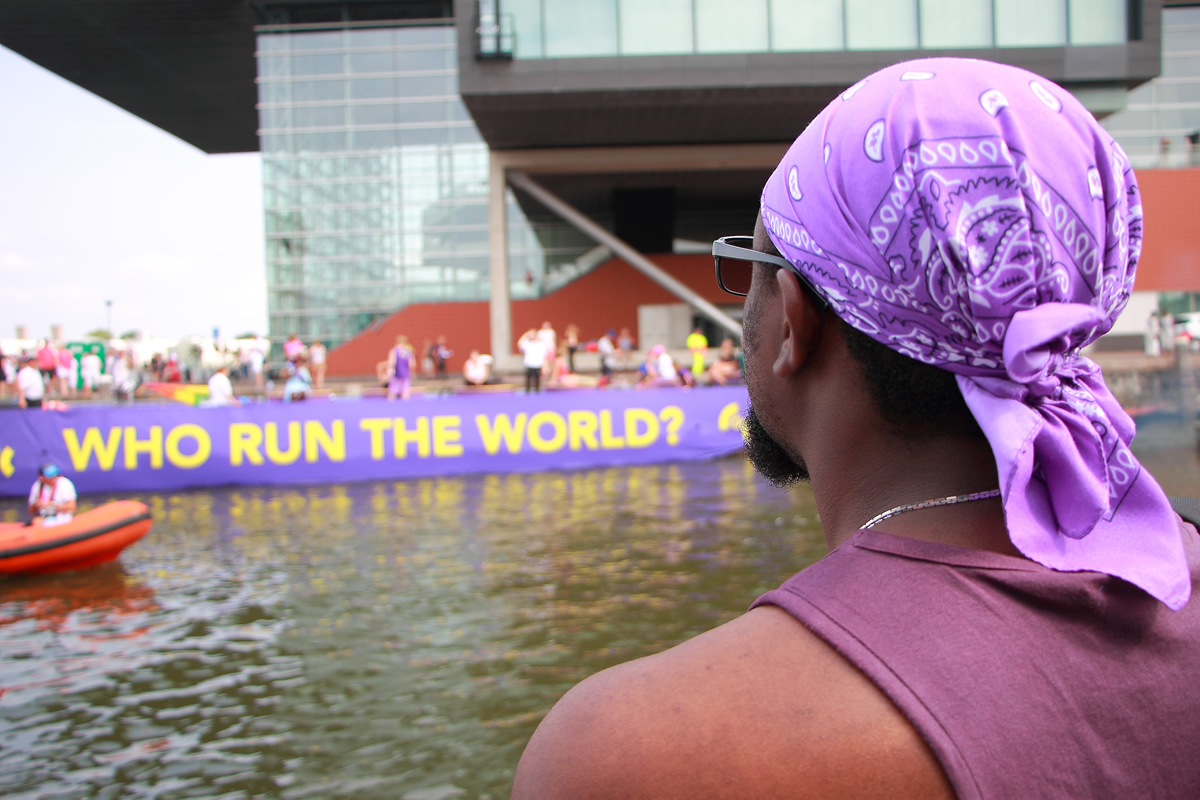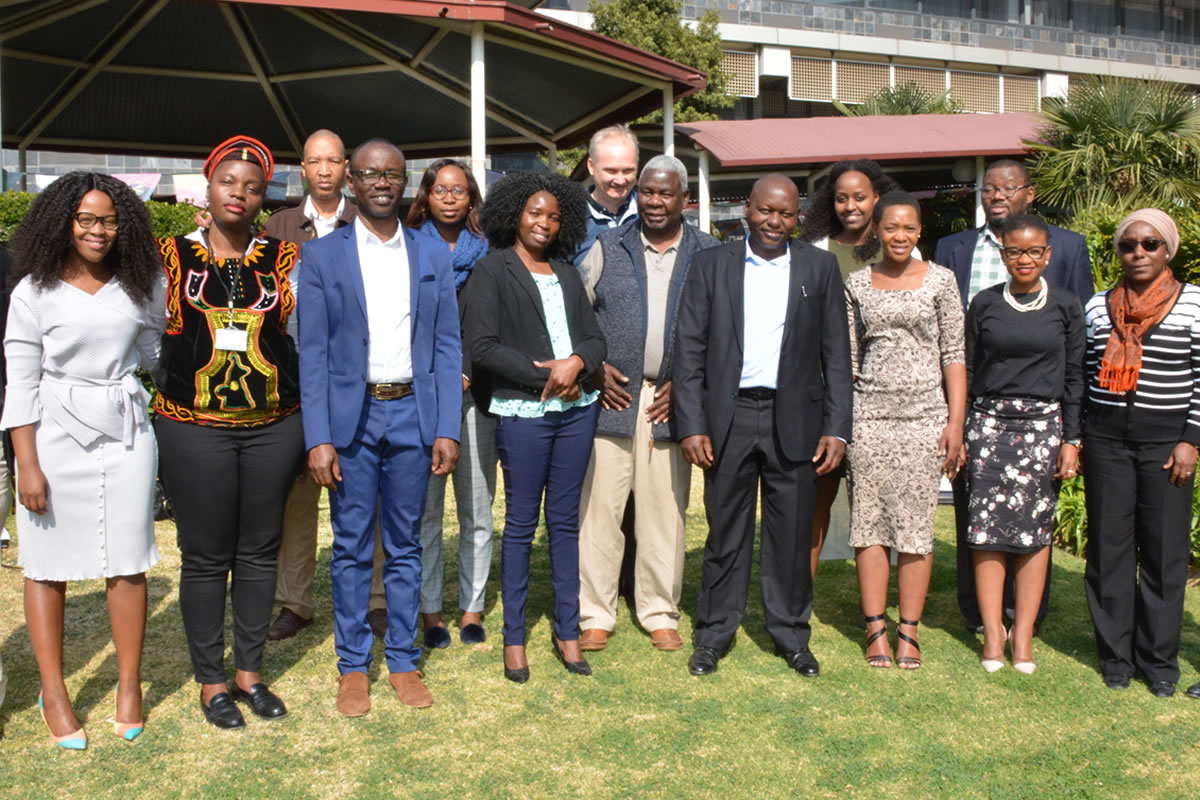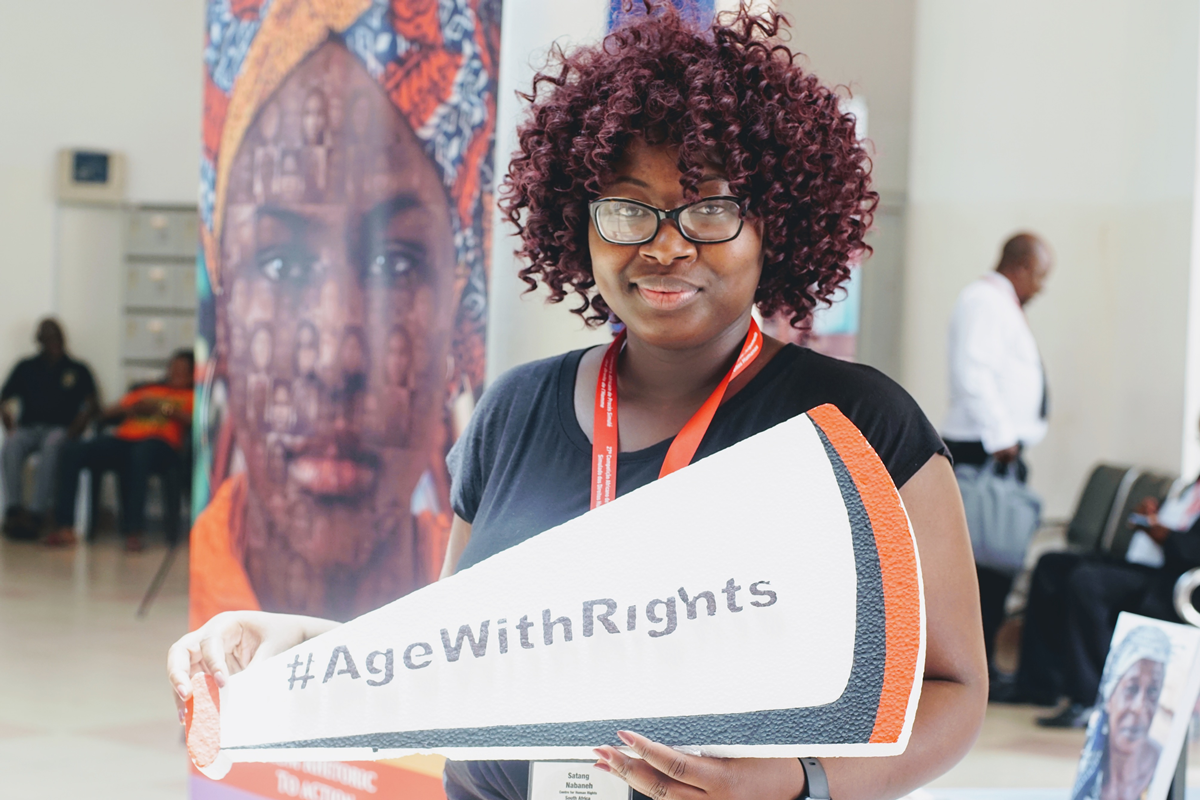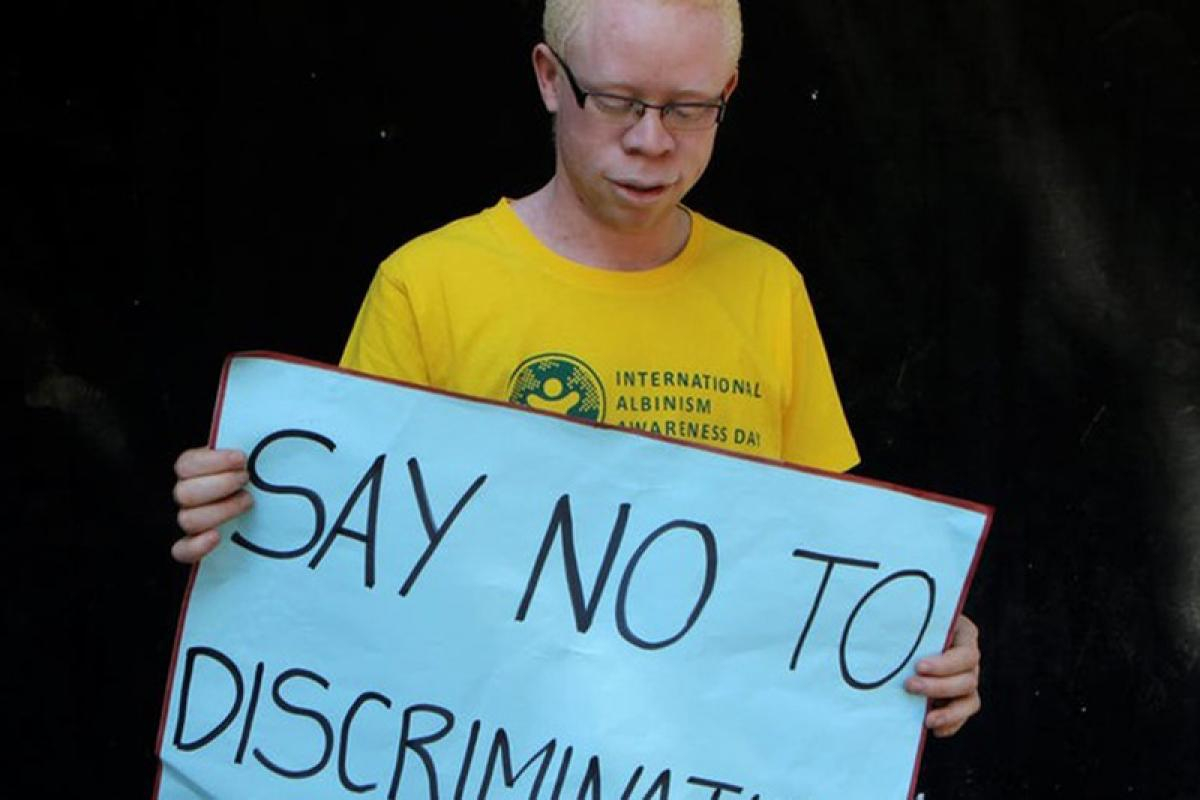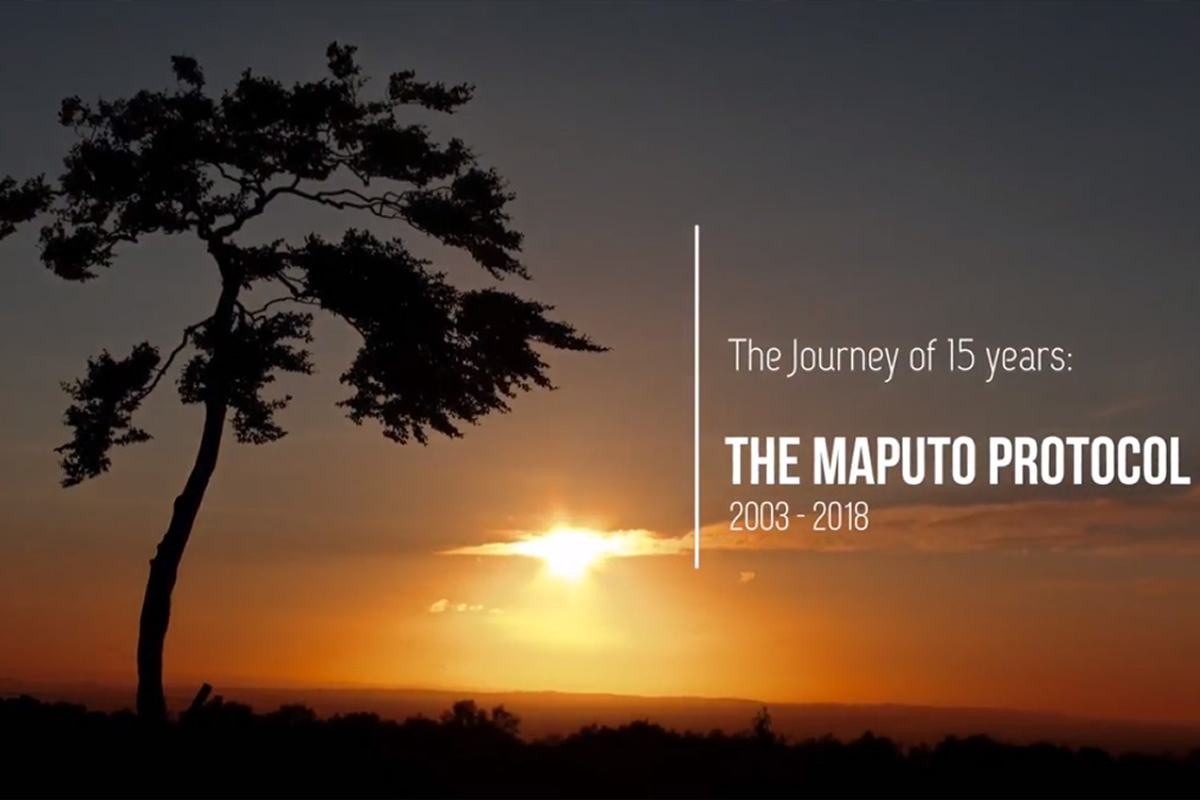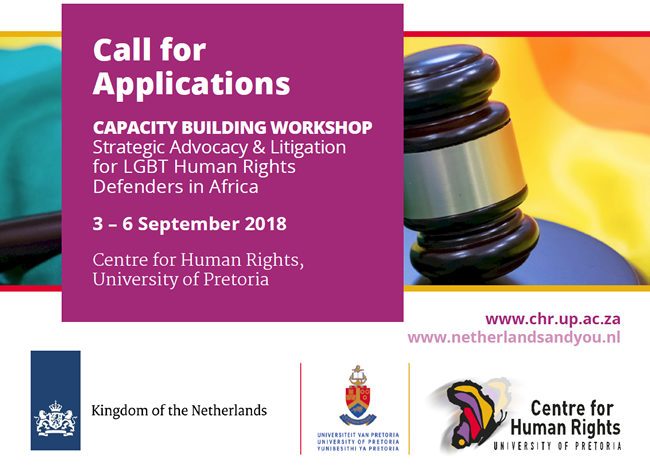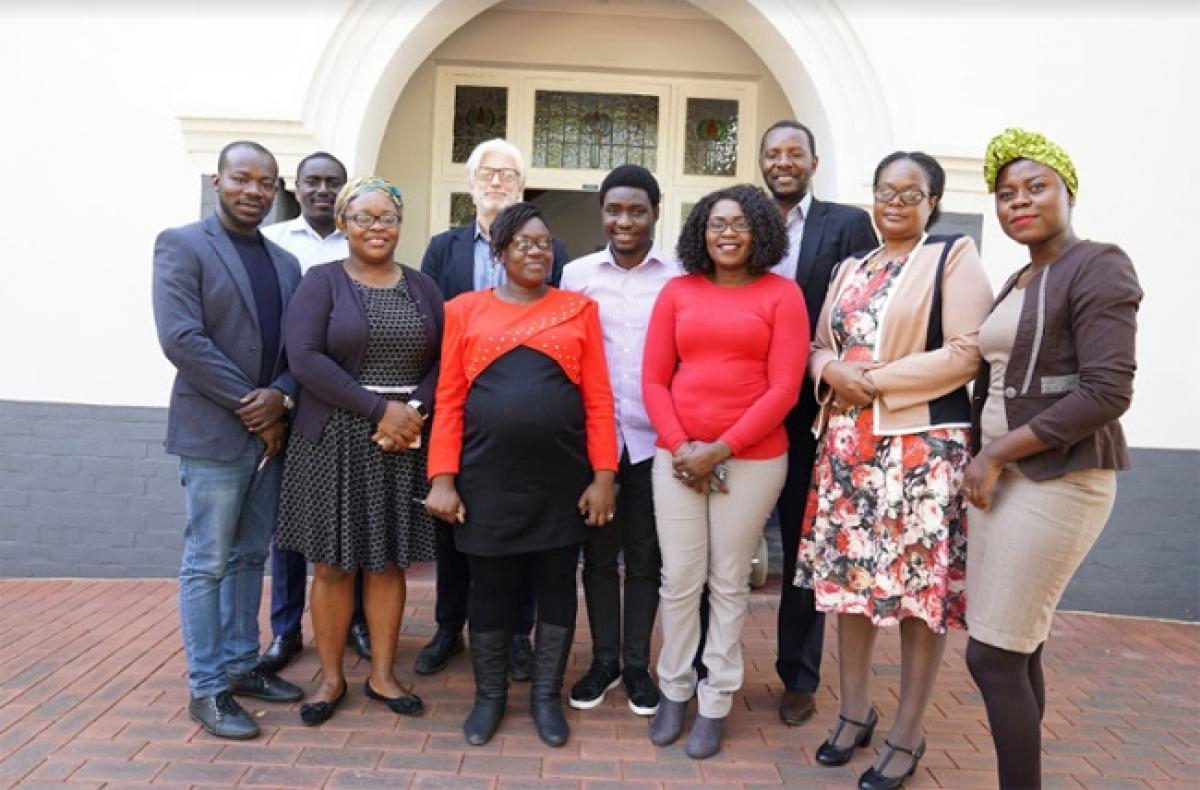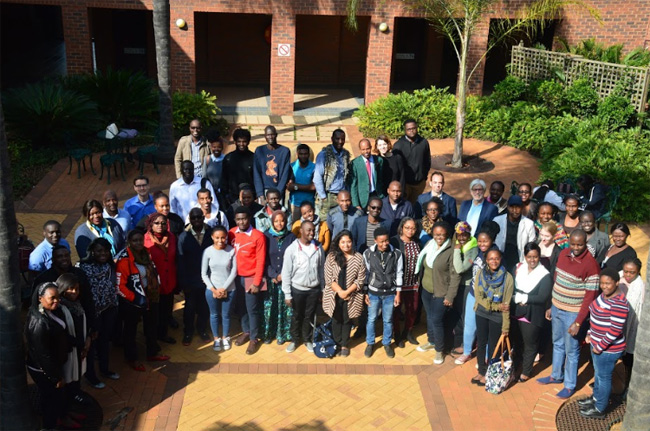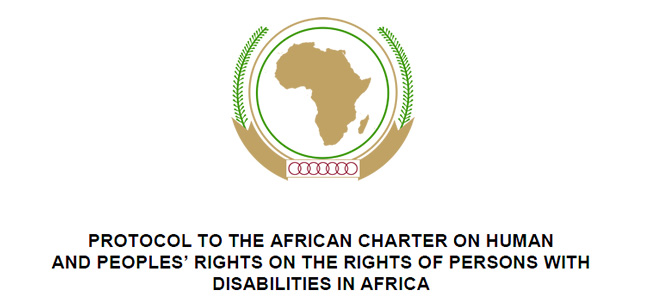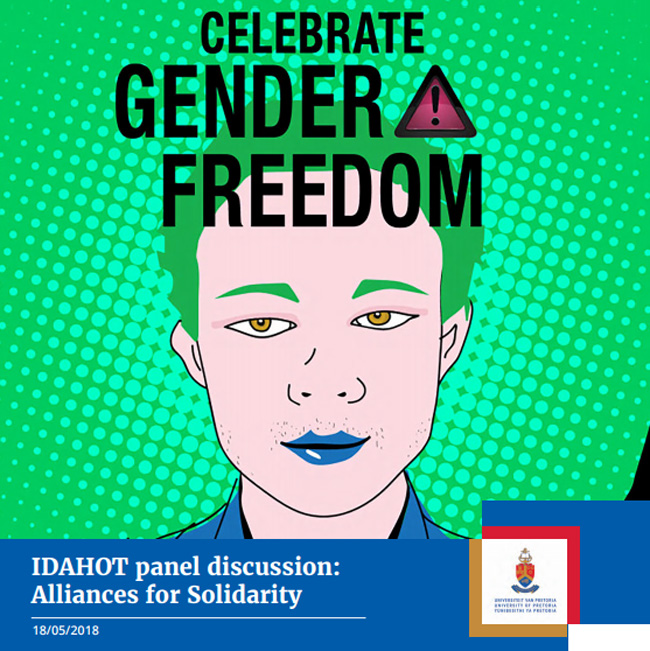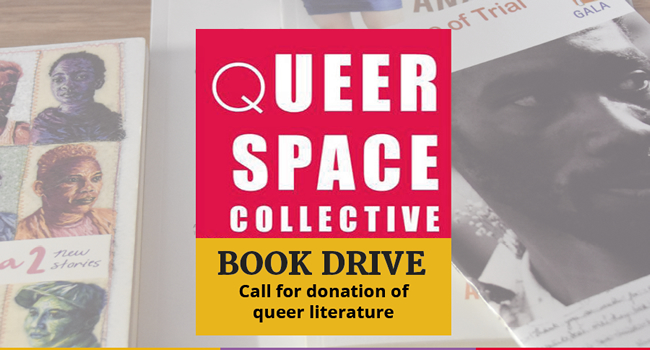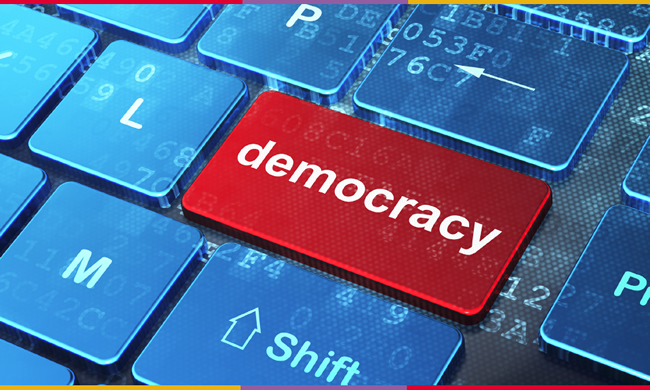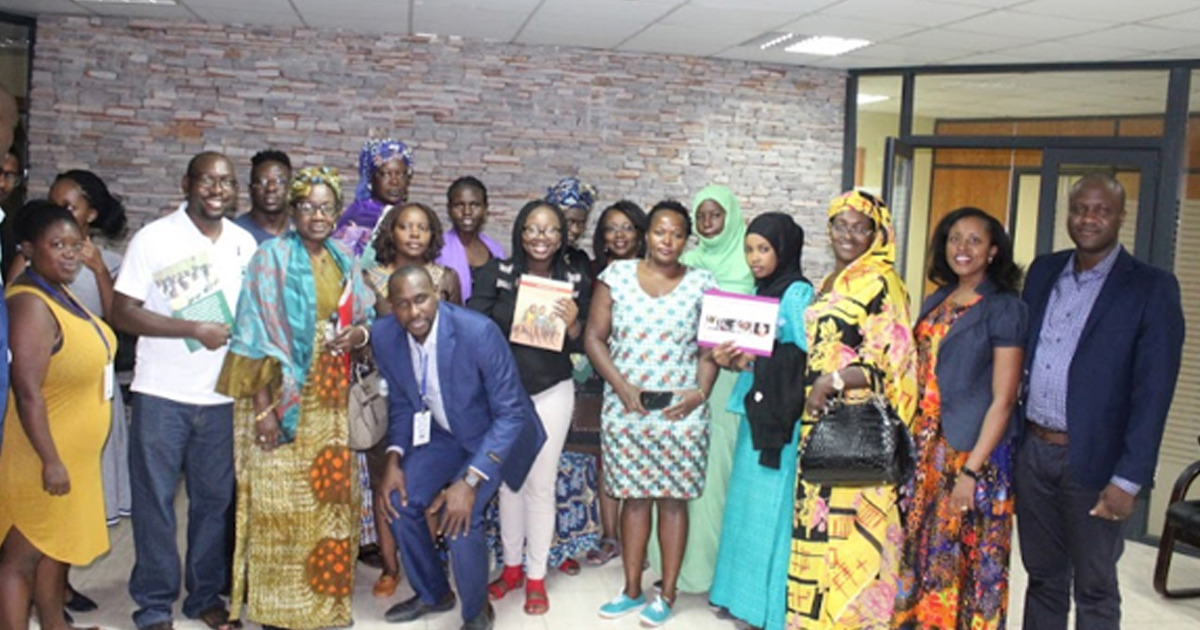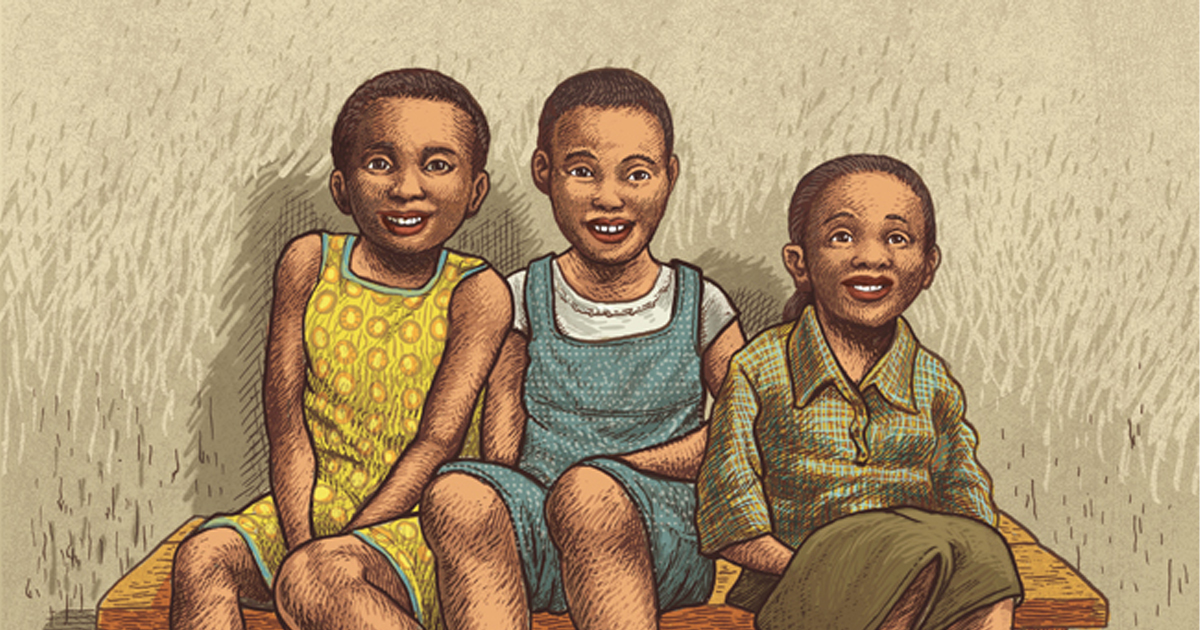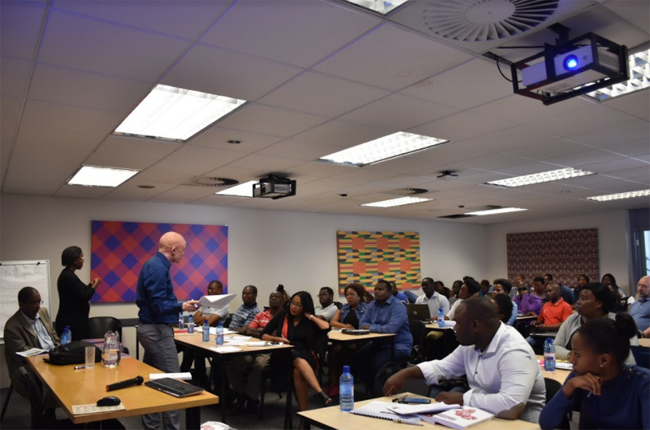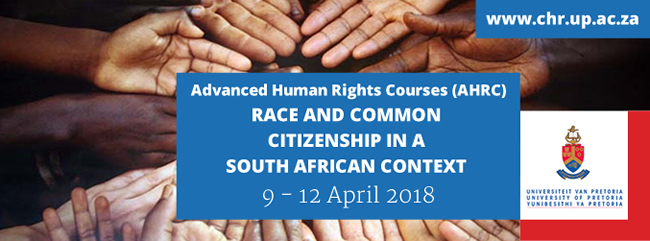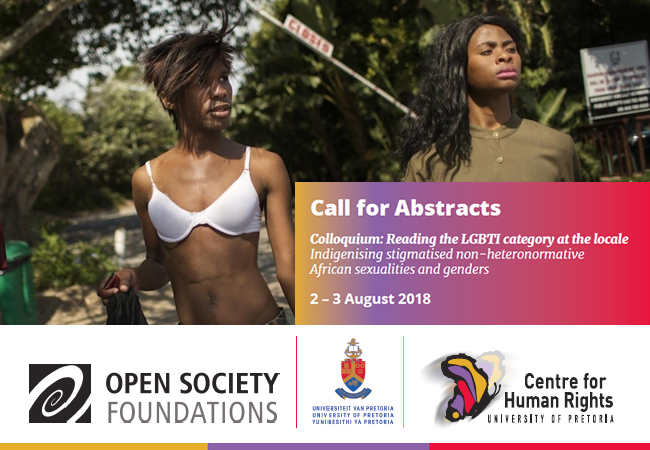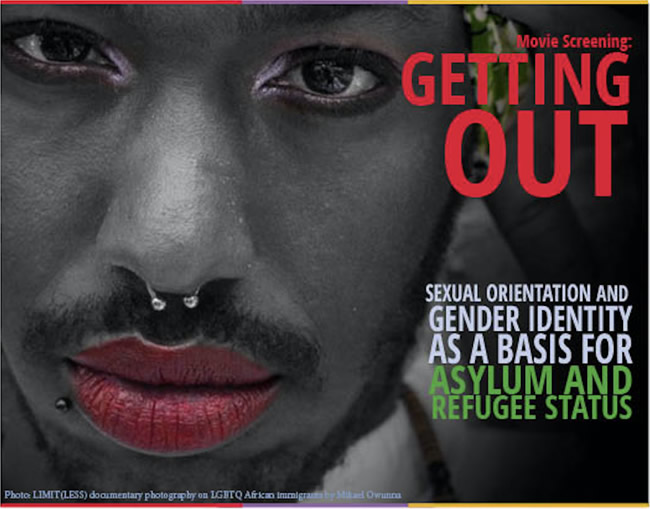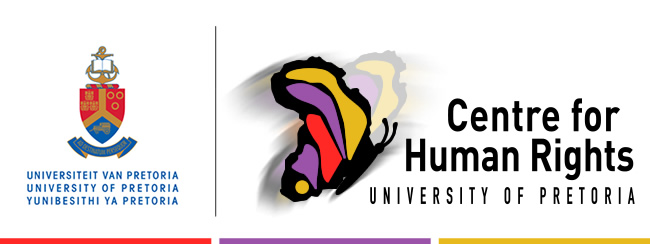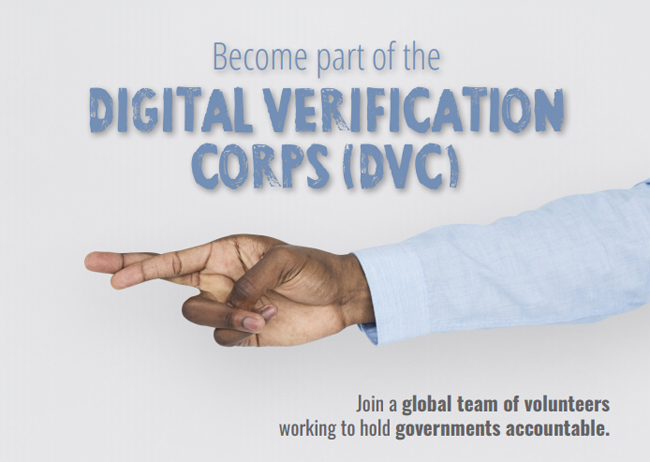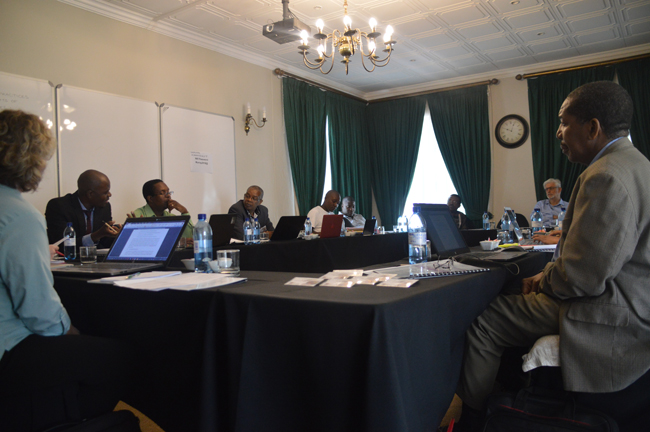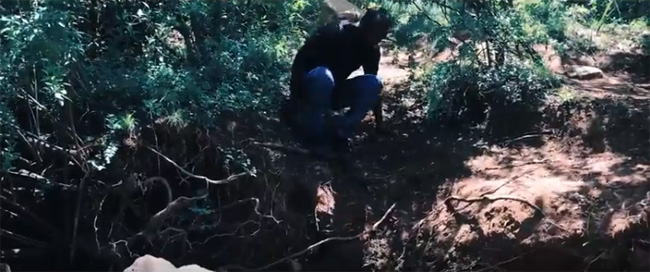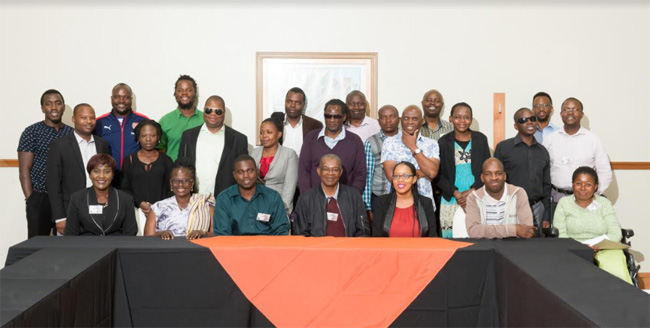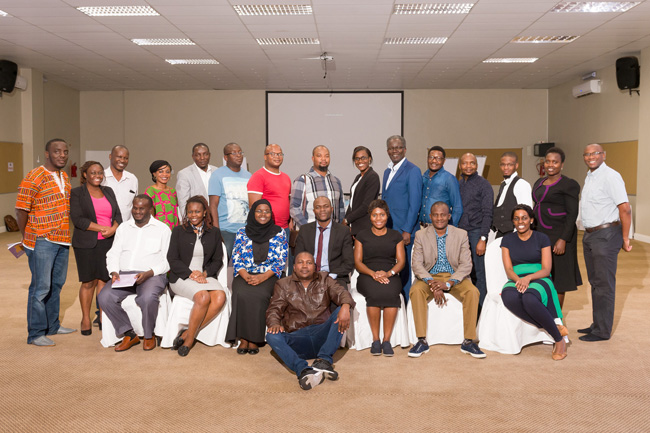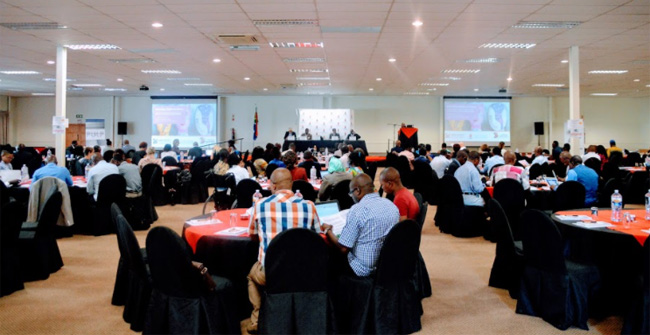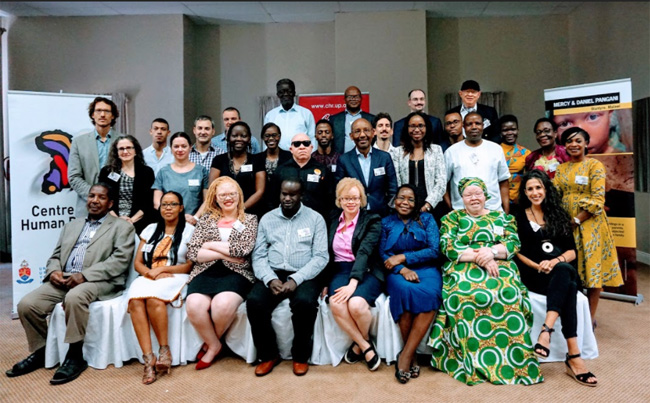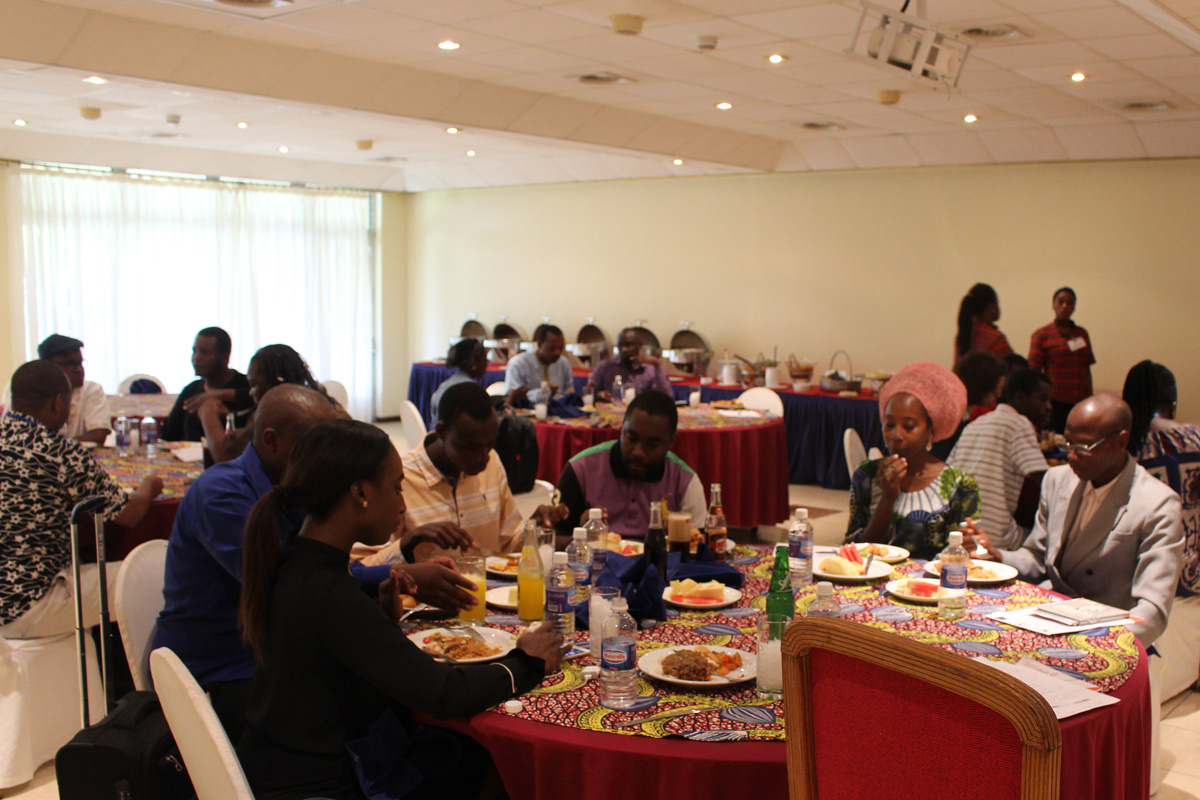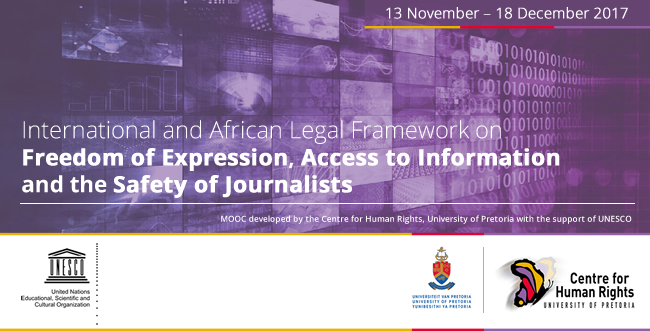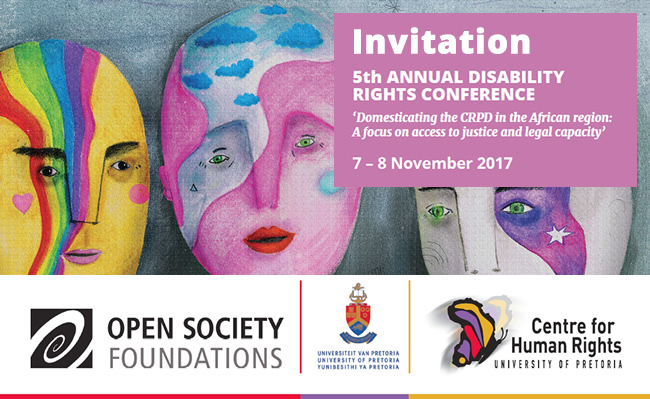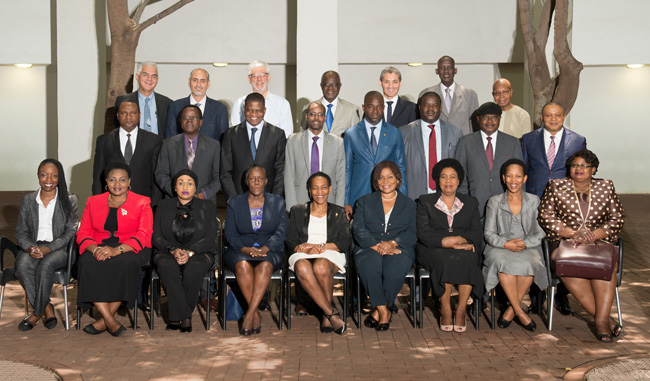Centre for Human Rights hosts a training workshop on access to justice for persons with disabilities
- Details
On 10 and 11 September 2019, the Centre for Human Rights, University of Pretoria, hosted a two-day training workshop on access to justice for persons with disabilities. The training workshop was convened under the title ‘Ensuring access to justice for persons with disabilities: Training for justice personnel on providing accommodations in the criminal justice system’. The workshop forms part of a wider project on access to justice, which the Centre will be implementing in South Africa, Zambia, Namibia and Botswana. Facilitators included experts on access to justice from the Centre and the Centre for Augmentative and Alternative Communication at the University of Pretoria. In attendance were police officers, prosecutors, magistrates, officials from the Department of Justice and Constitutional Development, as well as the Department of Women, Youth, and Persons with Disabilities.
- Details
(By Bonolo Makgale and Lydia Chibwe)
The month of August marked women's month in South Africa, it is important to check the progress that the country has made in terms of women’s representation in politics and governance.
Almost two decades into the 21st century, women are still not accorded a place of prominence in politics and governance, particularly in Africa. This article briefly reflects on women’s political representation at the regional level, within the African Union, and then looks critically at South Africa’s implementation of women’s rights, in particular examining whether there have been tangible and sustainable gains for women’s representation during the 2019 national and provincial elections.
- Details
On 6 August, 2019, the Democracy, Transparency and Digital Rights Unit at the Centre for Human Rights, University of Pretoria, in collaboration with the Open Society Foundations - Africa Regional Office (OSF-AFRO) attended a seating at the Pan-African Parliament (PAP) Committee on Justice and Human Rights to appraise the parliamentarians of the Guidelines on Access to Information and Elections in Africa. Further, the Centre sought to discuss the possibility of developing a Model Law on Access to Information and Elections under the auspices of the PAP, based on those Guidelines that the African Commission on Human and Peoples’ Rights adopted in 2017.
- Details
On 30 and 31 July, the Democracy, Transparency and Digital Rights Unit and the Disability Rights Unit attended a workshop organised by the Westminster Foundation for Democracy (WFD) on advancing the inclusion and participation of persons with disability in Mozambique. The workshop was attended by officials from the Ministry of Gender, Children and Social Action (MGCSA) and Office of the Ombudsman; the Deputy President of the National Assembly. In attendence were also representatives from civil society organisations, most of them working on disability issues including the Centre for Human Rights (University of Pretoria) Light of the World, Associação dos Deficientes Moçambicanos (ADEMO), Forum das Organizações Moçambicanas de Deficientes (FAMOD), UNICEF, academia and the media.
- Details
The Centre for Human Rights, Faculty of Law, University of Pretoria, with the support of the Embassy of the Kingdom of the Netherlands, cordially invites you to apply for the Capacity Building Workshop on Strategic Advocacy and Litigation targeted at the promotion and protection of the human rights of lesbian, gay, bisexual, transgender and intersex persons in Africa.
- Details
On 11 and 12 July 2019, the Democracy, Transparency and Digital Rights Unit at the Centre for Human Rights, University of Pretoria, participated in the first regional consultation of the revision of the Declaration of Principles on Freedom of Expression in Africa. The regional consultation meeting, covering only Lusophone countries in Africa, was held in Maputo and was organised by the Mozambique chapter of the Media Institute of Southern Africa (MISA).
- Details
In June 2017, Mauritius ratified the Protocol to the African Charter on Human and Peoples’ Rights on the Rights of Women in Africa (Maputo Protocol). In accordance with Article 26 (1) of the Maputo Protocol, the country has to submit its initial report at the 65th Session of the African Commission in October 2019.
- Details
The Centre for Human Rights, University of Pretoria, in partnership with the Pan-African Parliament (PAP), aims to foster closer collaboration between and among civil society organisations (CSOs) on PAP with a view to advancing and promoting the mandate of the continental Parliament. This partnership further aims to sensitise CSOs on the workings of the PAP and promote active and constructive citizen and civil society engagement with the PAP.
- Details
On 17 July 2019, the Centre for Human Rights, University of Pretoria (UP), in conjunction with the Simon Nkoli Collective, the Faculty of Humanities (UP), the Department of Sociology (UP) and the Centre for Sexualities, AIDS and Gender (UP), launched an exhibition showcasing the political activism of the late anti-apartheid, AIDS and LGBT struggle icon and activist Simon Nkoli.
- Details
Forced sterilisation and the status of women in society
In conversation with Ms Saoyo Tabitha Griffith
- Details
The Centre for Human Rights hosted the Advanced Human Rights Course on Business and Human Rights in Africa from 1 to 5 July 2019. The course was organised by the International Development Law Unit (IDLU), in collaboration with the Advanced Human Rights Courses (AHRC).
The course was attended by students on the Human Rights and Democratisation in Africa (HDRA) and International Trade and investment Law in Africa (TILA) programme. Other participants included PhD candidates, human rights activists and academics.
- Details
The Simon Nkoli Collective is a partnership with the Dean’s Office - Faculty of Humanities, Centre for Sexualities, AIDS and Gender (CSA&G), Centre for Human Rights (CHR), and the Sociology Department. The Collective’s aim is to use this exhibition to open debates on transformation, social justice and ideas of memory 25 years into democracy. Moreover, the exhibition is also a celebration of the Faculty of Humanities Centenary through which Simon Nkoli’s memory is evoked as a site for reflecting on Black queer resilience. The desire to inhabit the past through Simon’s journey is to map this existence within the contradictions of (in)equality.
- Details
Dear Uncle Binyavanga
It is the evening of Friday 28 June 2019. The Hatfield campus is shawled through with silence and night. A few story tellers and story lovers, cutting across race, creed, desires, gender and generations, are seated in a well-padded lounge listening to the first of your six part talk: We must free our imagination. It is a deeply disturbing talk because it is personal, political and resists thematic focus. Sir Pierre and I have listened to that first part together and we decided only a few days earlier that it would suit this evening’s closed meeting being held in honour of you.
- Details
Liberia is one of the poorest countries in the world, and its economy is extremely underdeveloped, largely due to the First Liberian Civil War in 1989-96. The World Bank’s recent information on the poverty rate in Liberia indicates that around 63% of the country lives on less than $1.90 per day. The alarming poverty rate in Liberia cripples growth and exacerbates other issues such as poor infrastructure, inadequate human and financial resources which are ubiquitous in the country. These challenges affect the delivery of essential services such as health, education, and other developmental programmes. In addition, the lack of both financial and human resources has hampered the country’s ability to meet its reporting obligations to the African Commission on Human and Peoples Rights (African Commission).
- Details
Securing family and women’s rights through an African response
In conversation with Prof Fareda Banda
Centre and OSISA host seminar and photo exhibition to celebrate International Albinism Awareness Day
- Details
On 13 June 2019 the Disability Rights Unit and the Advocacy Unit at the Centre for Human Rights, University of Pretoria, in partnership with the Open Society Initiative for Southern Africa (OSISA), celebrated International Albinism Awareness Day.
- Details
On 6 June 2019, the Centre for Human Rights, University of Pretoria, held an advocacy meeting on the ratification of the Protocol to the African Charter on Human and Peoples Rights on the Rights of Older Persons in Africa (Older Persons Protocol) in Liberia. The event was held in collaboration with HelpAge International, the Global Alliance, the Ministry of Justice and the Ministry of Gender to sensitise Liberia on the Older Persons Protocol and urge them to ratify it. The meeting was held at the Golden Key Hotel, Monrovia. This forms part of the Centre’s ongoing #AgeWithRights campaign to enhance the protection of older persons, focusing specifically on the rights of older women.
- Details
The Women's Rights Unit at the Centre for Human Rights, University of Pretoria, coordinated a 4-day state reporting workshop from 26 to 30 May 2019 in the Kingdom of Eswatini. The aim of the workshop was to draft the State Party Report to the African Commission on Human and Peoples Rights (African Commission). The report is in two parts, with part A focusing on the African Charter on Human and Peoples’ Rights (African Charter) and part B on the Protocol to the African Charter on Human and Peoples’ Rights on the Rights of Women in Africa (Maputo Protocol). The meeting was hosted by the Ministry of Justice in Mambane, Eswatini in collaboration with the Centre for Human Rights.
- Details
The High Court of Botswana has, in a landmark ruling and a unanimous decision by the bench declared Section 164 and 165 of the Botswana Penal Code that previously criminalised same-sex sexual acts, as unconstitutional. Botswana joins Angola, Mozambique, Seychelles, and South Africa as members of the Southern African Development Community (SADC) to have decriminalised same-sex sexual acts, a progressive outlook for this region. The Botswana decision comes not so long after Kenyan judges upheld similar provisions in the Kenyan Penal Code criminalising same-sex sexual acts, a sad contrast.
- Details
Join the Centre for Human Rights at RightsCon Tunis 2019 to discuss the feasibility of developing a digital rights model law for Africa. The conversation looks to focus on the challenges and the likely success of developing region-specific legislation on digital rights. It looks to work on having member states work towards rights-respecting legal policy solutions for new and emerging technologies in Africa from a regional perspective.
- Details
The Centre for Human Rights (the Centre), University of Pretoria, calls on the South African government to enhance the protection for older persons; and to ratify the Protocol to the African Charter on Human and Peoples’ Rights on the Rights of Older Persons in Africa (Protocol on Older Persons).
- Details
Acknowledging and understanding intersex
In conversation with Ronie Zuze
- Details
The Democracy, Transparency and Digital Rights Unit of the Centre for Human Rights (the Centre), University of Pretoria, hosted an African Day Celebration on 23 May 2019. The aim of the event was to celebrate the diversity of Africa and what it means to be African. The event further aimed to facilitate a conversation on Pan-Africanism and how South Africans as a people, can stand in solidarity with African migrants on the injustices and inhuman experiences of xenophobia in South Africa.
- Details
Intellectual disabilities as an unjustified barrier to accessing justice
In conversation with Dr Elizabeth Kamundia
- Details
The Centre for Human Rights, University of Pretoria, is deeply concerned about the reported blocking of social media by the government of Eritrea to curb an impending demonstration ahead of the country’s Independence Day commemorations. Eritrea is due to celebrate its 26th Independence Day on 24 May 2019.
- Details
On Monday 13 May 2019, the Centre for Human Rights, University of Pretoria, hosted participants on the Young African Leaders Initiative (YALI). Approximately fifty youth leaders and two YALI facilitators attended the programme, representing a number of countries in Southern Africa, including Botswana, Eswatini, Kenya, Mozambique, Mozambique, Madagascar, Malawi, Namibia, South Africa and Zimbabwe. The Centre was represented by the Women’s Rights Unit (Ade Johnson and Lydia Chibwe), the SOGIESC Unit (Geoffrey Ogwaro), the Disability Rights Unit (Dianah Msipa) and the Communications and Marketing team (David Ikpo).
- Details
(By Satang Nabaneh)
Female Genital Mutilation (FGM) is a widespread and pervasive human rights violation experienced by women and girls. FGM refers to all procedures “involving partial or total removal of the external female genitalia or other injury to the female organs for non-medical reasons.”[1] It is estimated that more than 200 million women and girls have been cut in thirty countries across Africa, the Middle East, and Asia where FGM is concentrated. Another estimated 3 million girls are at risk of FGM annually.[2] The World Health Organization (WHO) has also estimated that 100 to 140 million women and girls worldwide are currently living with the consequences of FGM. It is mostly carried out on young girls at some point between infancy and the age of fifteen years old. In Africa, an estimated 92 million girls from ten years of age and above have undergone FGM.[3]
- Details
The Women's Rights Unit of the Centre for Human Rights, University of Pretoria, in collaboration with the Ministry of Gender Equality, Child Development and Family Welfare, Mauritius, organised and facilitated a national meeting on state reporting on the African Charter on Human and Peoples’ Rights (African Charter) and the Protocol to the African Charter on Human and Peoples' Rights on the Rights of Women in Africa (Maputo Protocol) for Mauritius. The workshop took place at the Holiday Inn Hotel in Port Louis, Mauritius from 6 to 9 May 2019.
- Details
The Centre for Human Rights is hosting the annual short course on the Judicial Enforcement of Socio-Economic Rights in Africa from 13 to 17 May 2019. The course is organised by the Advanced Human Rights Courses (AHRC).
This year the Centre is honoured to have 6 African judges attending the course on the judicial enforcement of socio-economic rights in Africa. The judges in attendance are:
- Justice Joan Eyi King (Ghana)
- Justice Musa Ssekaana (Uganda)
- Justice Moroke Alexis Mokhesi (Lesotho)
- Justice Girma Dechasa (Ethiopia)
- Justice Senbeta Abdeta Negasa (Ethiopia) and
- Justice Antonia Guvava (Zimbabwe).
- Details
The Centre for Human Rights, University of Pretoria, held a Civil Society Organisation (CSO) Forum on the sidelines of the Second Ordinary Session of the Fifth Parliament of the Pan-African Parliament (PAP) on 11 May 2019. Some of the organisations that were present at the forum include: Section 27, Lawyers for Human Rights, Open Society Initiative for Southern Africa, Mediation for Peace and Human Rights, Human Rights Institute of South Africa, Economic Justice Network, Mediation for Peace and Human Rights, Corruption Watch, Centre for Applied Legal Studies, Fredrich-Ebert-Stiftung, Lesotho Women’s Law Clinic, Media Institute of Southern Africa, Southern African Parliamentary Support Trust, Business and Human Rights Tanzania, Institute for Social and Economic Rights Uganda, AIDS Foundation of South Africa, Afrika Parliamentary Network and Under The Same Sun, Tanzania.
- Details
(By Prof Frans Viljoen)
Africans concerned about human rights are closely following a meeting of the African Commission on Human and Peoples’ Rights taking place in Egypt’s Sharm El-Sheikh.
The commission – the continent’s primary continental human rights body – is meeting in the shadow of a decision it took last year that’s raised questions about its reputation. The view among activists is that it yielded to political pressure from the African Union when it took away the observer status of the Coalition of African Lesbians. It had granted the organisation the status in 2015.
- Details
As the world commemorates World Press Freedom Day, it is sad to note that Africa is yet to fully enjoy press freedom as several developments curtail the enjoyment of press freedom provided under article 9 of the African Charter on Human and Peoples’ Rights (the Charter). The continued presence of defamation, secrecy, insult laws and the overly stringent regulation of the internet which impede freedom of speech are causes for concern.
- Details
The Centre for Human Rights, University of Pretoria is seeking to recruit an experienced consultant with knowledge of human rights, particularly women’s rights and familiarity with the African Human Rights framework. The consultant is expected to develop a State Party report to the African Commission on Human and People’s Rights (African Commission), which comprises Part A on the African Charter on Human and People’s Rights (African Charter) and Part B on the Protocol to the African Charter on Human and Peoples’ Rights on the Rights of Women in Africa (Maputo Protocol) for Liberia.
- Details
The African Commission on Human and Peoples’ Rights’ Special Rapporteur on Freedom of Expression and Access to Information in Africa has launched the public consultation process of revising the 2002 Declaration of Principles on Freedom of Expression in Africa (the Declaration), during the African Commission’s 64th Ordinary Session in Sharm el-Sheikh, Egypt.
- Details
The Centre for Human Rights, University of Pretoria, participated in a conference on ensuring free and fair elections in Africa with a particular focus on the role of commissions, media and courts. The conference was organised by the South African Institute for Advanced Constitutional, Public, Human Rights and International Law (SAIFAC) in collaboration with the Department of Public Law, University of Johannesburg at the historic Women’s Gaol, Constitutional Hill on 11 April 2019. With the South African general elections scheduled for 8 May 2019, the conference provided an opportune platform for sharing experiences from other African jurisdictions including Zimbabwe and Kenya.
- Details
On Sunday 28 April 2019, the Special Rapporteur on the Rights of Women in Africa (SRRWA), Commissioner Lucy Asaugbor hosted a panel discussion on State Reporting Obligations and Guidelines to Reporting under the Maputo Protocol which the Centre participated in during the 64th ordinary session of the African Commission on Human and Peoples' Rights which is currently been held in Sharm El Sheikh, Egypt from 24 April to 14 May 2019.
Commissioner Asaugbor noted that only a handful of states parties have actually fulfilled their reporting obligations. In particular, and dishearteningly, only 13 out of the 40 states parties which include Angola, Burkina Faso, Democratic Republic of Congo, The Gambia, Lesotho, Malawi, Mauritania, Namibia, Nigeria, Rwanda, Senegal, South Africa and Togo have included a section on the Maputo Protocol in their state reports. She acknowledged and commended The Gambia and Lesotho being the latest states parties to fulfil this obligation. She noted the need to popularise the Reporting Guideline on the Maputo Protocol adopted by the Commission in 2009, as well as, the importance of the state reporting process in which crucial information is received for giving an overview of the status of women and girls in Africa
- Details
The Centre for Human Rights, University of Pretoria, in collaboration with the Eswatini Ministry of Justice and Constitutional Affairs, organised a state party reporting workshop on the African Charter on Human and Peoples’ Rights (African Charter) and the Protocol to the African Charter on Human and Peoples’ Rights on the Rights of Women in Africa (Maputo Protocol). The workshop was held in Eswatini from the 15 to 17 April 2019.
- Details
The Centre for Human Rights, University of Pretoria, participated in a consultative meeting with United Nations (UN) Special Rapporteur Clément Voule, in Nairobi, Kenya on 21 and 22 February 2019. The meeting was organised by the International Center for Not-for-Profit Law (ICNL), the Collaboration on International ICT Policy for East and Southern Africa (CIPESA) and the Kenyan Civil Society Reference Group. Civil society organisations from Benin, Burundi, Cameroon, the Democratic Republic of the Congo, Ethiopia, The Gambia, Ghana, Kenya, Malawi, Nigeria, Rwanda, Sierra Leone, South Africa, Tanzania, Togo, Uganda, Zambia and Zimbabwe participated in the meeting. They deliberated on the rights to freedom of association and assembly in the digital age, identified threats to civic space in the digital era and proposed strategies to counter those threats. The meeting was part of the interactive consultations that the UN Special Rapporteur has been undertaking with stakeholder to contribute to his report on protecting freedoms of association and assembly in the digital era.
- Details
On 21 March 2019, the Centre for Human Rights, University of Pretoria, participated in the Media and Elections Regional Meeting (Southern Africa) which was organised by the Media Alliance of Zimbabwe in Johannesburg. The meeting was aimed at sharing lessons and experiences of the media’s role during elections in Southern Africa, with a view to strengthening advocacy for media freedom, access to information and freedom of expression in the region. To gain a critical understanding of the recently adopted Southern Africa Development Community Parliamentary Forum (SADC PF) Model Law on Elections, the meeting was attended by representatives from the media and civil society organisations from Malawi, Swaziland, South Africa, Mozambique, Botswana, and Zimbabwe.
- Details
The Special Rapporteur on Freedom of Expression and Access to Information in Africa, Commissioner Lawrence Mute, undertook an advocacy visit to Nigeria from 24 to 27 September 2018 to raise awareness on article 9 of the African Charter on Human and Peoples’ Rights which establishes the right to freedom of expression and access to information. Specifically, the Special Rapporteur sought to evaluate the implementation of the Freedom of Information Act (FOIA) that Nigeria adopted in 2011. He met relevant stakeholders in the access to information sector to understand the circumstances and challenges around the implementation of Nigeria’s Freedom of Information Act. Subsequent to this visit, the Special Rapporteur prepared an Advisory Paper and compiled recommendations on how the government and other stakeholders in Nigeria can fully implement the freedom of information law.
- Details
Engaging the African Commission on sexuality matters
Conversation with Mr Berry Nibogora
- Details
On 28 and 29 March 2019, the Centre for Human Rights, University of Pretoria, participated in the third technical drafting meeting of revising the Declaration on Principles of Freedom of Expression and Access to Information in Africa (the Declaration). The meeting, held in Mombasa, Kenya, was organised under the auspices of the Special Rapporteur on Freedom of Expression and Access to Information in Africa (Special Rapporteur). The Special Rapporteur is undertaking the initiative to revise the Declaration which was adopted by the African Commission on Human and Peoples’ Rights (African Commission) in 2002 against the backdrop of the African Commission Resolution 362, Resolution 350 and Resolution 222. The resolutions gave the Special Rapporteur the mandate to revise the Declaration, include access to information and internet related issues as they apply to article 9 of the Charter.
- Details
On 4 March 2019, the Disability Rights Unit of the Centre for Human Rights (Centre), University of Pretoria, in collaboration with the with the office of the UN Independent expert on the enjoyment of human rights by persons with albinism, hosted a workshop at the Pan-African Parliament (PAP) on the rights of persons with albinism in Africa.
- Details
(By Satang Nabaneh)
Around the world, 8 March is celebrated as International Women’s Day. It is a global day celebrating the achievements of women with a rallying call to action for accelerating gender parity.
- Details
On so many levels, the last week of February 2019 was a risky leap for the Queer Space Collective, comprising the Centre for Human Rights and the Centre for Sexualities AIDS and Gender, University of Pretoria. It was the maiden edition of the Invitation: Pride and Letters - Queer Literary Festival. The Pride and Letters ran hand in glove with the Advanced Human Rights Course: Sexual Minority Rights 2019, weaving its content through a more narrative and intimate approach than is the tradition. The three themes addressed in the course of the week were: queer exploration; queer resistance and queer celebration. These days have been chronicled in the week’s diary.
- Details
The Advanced Human Rights Courses (AHRC) and the SOGIESC Unit are currently hosting the annual short course on Sexual Minority Rights in Africa. The maiden edition of the Pride & Letters Queer Literary Festival forms part of the week-long programme.
- Details
The Women's Rights Unit at the Centre for Human Rights, University of Pretoria, is seeking to recruit 3 experienced consultants with knowledge of human rights, particularly women’s rights and familiarity with the African human rights framework. The consultants are expected to develop a State Party report to the African Commission on Human and People’s Rights (African Commission) on the African Charter on Human and Peoples’ Rights (African Charter) and the Protocol to the African Charter on Human and Peoples’ Rights on the Rights of Women in Africa (Maputo Protocol) for Eswatini, Mauritius and Liberia respectively.
- Details
(By Prof Frans Viljoen)
Angola has decriminalised consensual same-sex acts between adults in private.
An erstwhile Portuguese colony, Angola inherited an ancient colonial statute – dating back to 1886 – that criminalised “indecent acts” and persons habitually engaging in “acts against nature”. These formulations have widely been interpreted as a ban on homosexual conduct.
- Details
Civil society organisations working on gender-based violence (GBV) express concern over the slow pace at which the South African Presidency is addressing issues identified at the National Summit against Gender-Based Violence and Femicide.
- Details
The Centre for Human Rights (the Centre) congratulates the government, parliament and people of Angola, for the brave steps taken, through its judicial reform programme, towards the decriminalisation of ‘habitual unnatural vices’, into which consensual adult same-sex sexual conduct was read. The Centre also expresses its pleasure towards the criminalisation of crimes based on discrimination including prohibiting crimes based on discrimination based on sexual orientation. To further galvanise the reforms, employment and service discrimination based on sexual orientation is also now illegal. These are major achievements towards respecting and promoting the rights of all citizens of Angola including sexual and gender minorities.
- Details
The Centre for Human Rights, University of Pretoria (the Centre) is deeply concerned by the reported ongoing human rights violations in our immediate northern neighbour, taking the form of excessive use of force and restrictions on the free flow of information. We urge the South African government to offer itself as a facilitator to assist in seeking a solution in the interest of Zimbabwe’s people.
- Details
On 29 November 2018, The Centre for Human Rights, Media Institute for Southern Africa and Zimbabwe Lawyers for Human Rights organized a workshop in Harare, Zimbabwe, aimed at reflecting on Zimbabwe’s 2018 elections. This was in the context of access to information , freedom of expression and digital rights against the backdrop of the normative standards adopted by the African Commission on Human and Peoples’ Rights such as the Model Law on Access to Information in Africa and the Guidelines on Access to Information and Elections in Africa. The workshop was attended by representatives from the media, media organisations, political parties, election monitors and civil society organisations including women, youth and disability organisations.
- Details
The Sexual Orientation, Gender Identity and Expression and Sex Characteristics (SOGIESC) Unit continues to celebrate LGBTIQ+ Africans who have bravely served and are still bravely serving their communities in various capacities worthy of note.
- Details
The Centre for Human Rights (the Centre) organised a panel discussion on access to information and elections in Africa during the African Commission on Human and Peoples’ Rights’ (African Commission) 63rd Ordinary Session in Banjul, The Gambia. The panel discussion was held on 28 October 2018, and was moderated by the Special Rapporteur on Freedom of Expression and Access to Information in Africa, Commissioner Lawrence Mute. The panel consisted of Maxwell Kadiri, of the Open Society Justice Initiative; Raouf Salami, of the ECOWAS Network of Electoral Commissions (ECONEC) and Joana Cortes, a senior official of the Gender Ministry of Angola. The discussion was aimed at popularizing and facilitating dialogue on the Guidelines on Access to Information and Elections in Africa (the Guidelines), which the African Commission adopted during the 61st Ordinary Session in November 2017.
- Details
The Women’s Rights Unit of the Centre for Human Rights was involved in various activities at the 63rd ordinary session of the African Commission on Human and Peoples' Rights which is currently been held in Banjul, The Gambia from 24 October to 7 November 2018. The session was preceded by the NGO Forum and 37th African Human Rights Book Fair, which took place from 20 to 22 October 2018.
- Details
The Democracy and Transparency Unit of the Centre hosted an East African Civil Society round-table forum in Kigali, Rwanda at the sidelines of a session of the Pan-African Parliament (PAP). The forum participants included academics, law students from Rwanda University and Kigali University, a representative from Rwanda Ministry of Justice and members of various civil society organisations in Rwanda, Uganda, Tanzania and Kenya.
- Details
On Friday, 19 October 2018, there was a one-day technical support meeting for stakeholders from Uganda. The meeting was organised jointly by the Ministry of Justice and Constitutional Affairs and the Centre for Human Rights. The meeting was held at the Protea hotel, Entebbe. Participants for this meeting were drawn from Government ministries, National Human Rights Commissions and civil society in Uganda. Participants were also members of a task team that had been set up for the purposes of drafting state reports on all the treaties that Uganda is party to. The meeting was earmarked specifically to offer technical support to Uganda's current draft report as part of the state's efforts to fulfil its reporting obligations under the African Charter and the Maputo Protocol to the African Commission.
- Details
From Tuesday, 16 October 2018 to Thursday, 18 October 2018, the Women's Rights Unit of the Centre for Human Rights organised and conducted a regional state reporting workshop on the African Charter on Human and Peoples Rights (African Charter) and the Protocol to the African Charter on Human and Peoples Rights on the Rights of Women in Africa (Maputo Protocol) for four African countries namely, Uganda, Kenya, Ethiopia and South Sudan. The workshop was organised and hosted in collaboration with the Ministry of Justice and Constitutional Affairs, in Uganda. It was held at the Protea hotel, Entebbe.
- Details
On 11 and 12 October 2018, the Centre for Human Rights, University of Pretoria in collaboration with the Special Rapporteur on Freedom of Expression and Access to Information in Africa (Special Rapporteur), Commissioner Lawrence Mute, organised a technical draft meeting of experts on the Revision of the Declaration of Principles on Freedom of Expression in Africa, in Mombasa, Kenya.
- Details
Due to the central role of access to information in promoting a healthy and well-functioning multi-party democracy, the African Commission’s Special Rapporteur on Freedom of Expression and Access to Information in Africa, Commissioner Lawrence Mute, undertook an advocacy visit to Nigeria from 24 to 27 September 2018 to raise awareness on article 9 of the African Charter on Human and Peoples’ Rights which establishes the right to freedom of expression and access to information.
- Details
On Saturday 29 September 2018 the annual SOWETO Pride was held at GOG Gardens in Soweto. Geoffrey Ogwaro and William Aseka from the SOGIE Unit of the Centre for Human Rights participated and took the opportunity to conduct informal information sessions with attendees and distribute brochures on the Equality Courts of South Africa. The SOGIE unit encourages persons discriminated against on the basis of their sexual orientation and/or gender identity to seek justice from the Equality Court as one of the uniquely different judicial institutions that tries to make access to justice easier for historically and socially marginalised groups. The Equality Courts are housed in most Magistrate Courts as well as some High Courts around South Africa. More information on Equality Courts can be accessed from the Department of Justice and Constitutional Development website http://www.justice.gov.za/EQCact/eqc_faq.html
- Details
Geoffrey Ogwaro
Centre for Human Rights, University of Pretoria
2 October 2018
Recently, as I was commuting on South Africa’s Gautrain, an urban passenger train transport system that connects several economic and residential hubs in the county’s cosmopolitan province of Gauteng, I came across a sign on the wall of the station that read: ‘The Gautrain celebrates diversity in South Africa and serves people of all races, nationalities, sexes, colours, religions, beliefs, genders, ages, sexual orientations, and disabilities. Valuing and respecting people’s differences on board the Gautrain is in the best interests of nation-building.’
- Details
Today - 1 October 2018, the Centre for Human Rights, joins others in commemorating the International Day of Older Persons. The theme of this year’s observance, “Celebrating Older Human Rights Champion,” points to the leading role of older persons in championing human rights. The International Day of Older Persons is representative of a global push to prioritise, promote and protect the rights of ageing populations across regions. Current global trend shows an increase in the overall number of people who are living beyond the age of sixty. The 2016 World Health Organization (WHO) Global Report on Ageing posits that between 2000 and 2050, the proportion of the world’s population that is 60 and above will double from 11 per cent to 22 per cent. By 2050, 2 billion of the world’s population will be 60 or older. Thus, it is critical that we focus on addressing the specific and unique needs of individuals as they grow older.
- Details
The Centre for Human Rights hosted the 2nd International Conference on the Right to Development, which took place from the 15 to 17 August 2018. The conference was jointly sponsored by the Centre for Human Rights, University of Pretoria, the American Society for International Law and the Thabo Mbeki African Leadership Institute, University of South Africa. The focus of this year’s theme: Insights into Policies and Practices on the Right to Development, provided participants the opportunity to explore the subject from a broad range of angles, including challenges and prospects for making the right to development a reality, the connection between the Sustainable Development Goals and the realisation of the right to development as well as regional and domestic experiences relating to implementing the right to development.
- Details
The Disability Rights Unit of the Centre for Human Rights in collaboration with the office of the UN Independent expert on the enjoyment of human rights by persons with albinism hosted a three-day capacity building workshop for frontline organisations working to advance the rights of persons with albinism in Botswana, Ghana, Kenya, Malawi, Nigeria, South Africa, Swaziland, Tanzania, Uganda, Zambia and Zimbabwe. The training which took place from 20-22 August 2018 at the University of Pretoria, was aimed at increasing the knowledge and understanding of human rights amoungst organisations working to advance the rights of persons with albinism in Africa.
- Details
The Centre for Human Rights, University of Pretoria, and the United Nations (UN) Independent Expert on the enjoyment of human rights by persons with albinism officially launched the Online Platform of the Regional Action Plan on Albinism in Africa (2017-2021) on Tuesday 21 August (available online at www.actiononalbinism.org). The launch featured a cocktail reception and a photo exhibition: ‘Shining Our Light to the World’ by Spanish artist and photojournalist Ana Yturralde. ‘Shining the light to the world’ is an exhibition consisting of realistic and striking depictions of the daily lives and the stories of persons with albinism in Africa.
- Details
An epistolary report on the Building Bridges Program, Amsterdam 2018
Dear Pink Africa,
We have to act. We have to act fast. Lives, our lives are on the line. I have never felt greater urgency than I feel now. I have just returned from Amsterdam and I brought you some words, some dreams.
I was selected to participate in the Building Bridges Program from 31 July to 5 August 2018. Annually, the program seeks to connect activists with inspiration, needs with support, questions with answers, doubt with confirmations and to bring together stories from across the sphere of the protection and promotion of human rights of sexual and gender minorities globally. This year’s theme was ‘LGBT and Religion and how to overcome by building bridges with allies’. I joined 11 other African, Middle Eastern and Northern African activists in the world’s most dynamic rainbow city, Amsterdam.
- Details
The Centre of Human Rights, University of Pretoria, in collaboration with the Pan-African Parliament (PAP), held a Civil Society Organisations’ Forum on the sidelines of committee sittings which focused on the theme ‘Effective Engagement with the Pan-African Parliament’. The one-day meeting, which was held on 8 August 2018, was attended by the First Vice-President of the PAP, Honorable Julius Masel; the PAP Acting Clerk Parliament, Mr Yusupha Jobe; the PAP Legal Counsel, Mr Clement Phebe Mavungu; the PAP Senior International Relations Officer, Mrs Lyn Chiwandamira; Professors and staff members from the Centre of Human Rights. The forum was attended by Gauteng-based civil society organisations (CSOs) including Oxfam South Africa, Southern African Parliamentary Support Trust (SAPST), the Open Society Initiative of Southern Africa (OSISA), Section 27, South African Institute of International Affairs (SAIIA), Centre of Applied Legal Studies (CALS), Freedom House and the French Embassy. The forum sought to establish a common approach to sustained and meaningful engagement by enabling participants to share and exchange best practices on how to achieve an effective and constructive civil society engagement platform with the PAP.
- Details
Alongside the activities of the 27th African Human Rights Moot Court, the Centre for Human Rights is engaging in advocacy to advance the rights of older persons, with a specific focus on older women, in Ghana. The Centre’s Women’s Rights Unit campaign, #AgeWithRights, in partnership with HelpAge International and the Moremi Initiative, hosted an advocacy meeting on 8 August to discuss Ghana’s ratification of the Protocol on the Rights of Older Persons.
- Details
The Centre for Human Rights - University of Pretoria (CHR), the Institute for Human Rights and Development in Africa (IHRDA), and the Legal and Human Rights Centre (LHRC) have sued the United Republic of Tanzania before the African Court on Human and Peoples’ Rights for its failure to ensure adequate protection of persons with albinism (PWAs).
The applicants filed the lawsuit on 25th July 2018, alleging that the State of Tanzania has failed to take sufficient measures to ward against the widespread persecution and discrimination perpetrated by the public against PWA.
- Details
Today Africa, at least parts of it, celebrates the legacy of Nelson Mandela. He was a ‘great’ anti-apartheid activist, lawyer and South Africa’s first post-apartheid president.
Here in South Africa, I have navigated through some multi-ethnic and multi-racial social spaces where the conversation of ‘Who is Nelson Mandela?’ came up. I have a growing sense of that there are mixed feelings about him, what he represents and the sustainability of his legacy. It is difficult to completely grasp the emotional context of the ‘phenomenon’ that is Nelson Mandela.
- Details
“Inequality can be done away with only by establishing a new society, where men and women will enjoy equal rights, resulting from an upheaval in the means of production and in all social relations. Thus, the status of women will improve only with the elimination of the system that exploits them….” Thomas Sankara
Since Sankara uttered these words, the African continent has made some strides towards eliminating the system that exploits and discriminates against women. One of these steps is the adoption of the Protocol to the African Charter on Human and Peoples’ Rights on the Rights of Women in Africa (Maputo Protocol) on 11 July 2003 in Maputo, Mozambique, it later came into force in 2005.
- Details
The Centre for Human Rights, Faculty of Law, University of Pretoria with the support of the Embassy of the Kingdom of the Netherlands, cordially invites you to apply for the Capacity Building Workshop on Strategic Advocacy & Litigation targeted at the promotion and protection of the human rights of lesbians, gay, bisexual, and transgender persons in Africa.
- Details
In a landmark acknowledgement of the importance of the normative elaboration of the obligation of Member States with respect to the right of access to information in electoral processes, the African Commission on Human and Peoples’ Rights (African Commission) adopted the Guidelines on Access to Information and Elections for Africa (the Guidelines) on 10 November 2017, during its 61st Ordinary Session, in Banjul, The Gambia. To celebrate this milestone, the Guidelines were officially launched during the recently concluded 62nd Ordinary Session of the African Commission, which took place from 25 April to 9 May 2018 in Nouakchott, Mauritania, in a session presided over by the Special Rapporteur on Freedom of Expression and Access to Information in Africa (Special Rapporteur), Commissioner Lawrence Mute.
- Details
One of the mandates of the Implementation Clinic at the Centre for Human Rights, University of Pretoria, is to engage with the national actors in African States towards the implementation of African human rights decisions. Having identified Zimbabwe as one of the focus countries for the year, the Centre in collaboration with some local partners in Zimbabwe are organising a national dialogue and capacity building workshop to enable the environment crucial to the implementation of human rights decisions. On 24 May 2018, the Centre hosted a planning meeting with representatives from the Zimbabwe Lawyers for Human Rights (ZLHR), Zimbabwe Human Rights NGO Forum (ZHRF) and the Zimbabwe Human Rights Commission (ZHRC).
- Details
The Centre for Human Rights, Faculty of Law, University of Pretoria in collaboration with Norwegian Ministry of Foreign Affairs presented its annual Advanced Human Rights Course on Judicial Enforcement of Socio-Economic Rights in Africa from 14 to 18 May 2018. The course brought together over 60 participants from across Africa and Europe, mainly representing members of judiciary, civil society, National Human Rights Institutions, policy makers, government officials and academia.
- Details
The Centre for Human Rights, Faculty of Law, University of Pretoria, welcomes the adoption by the African Union Heads of State of a treaty on the rights of person with disabilities, the Protocol to the African Charter on Human and Peoples’ Rights on the Rights of Persons with Disabilities (African Disability Rights Protocol), on 30 January 2018. Africa now has a continental binding legal document protecting the human rights of persons with disabilities. The adoption of the African Disability Rights Protocol marks an important step towards recognising the equal dignity of persons with disabilities on the continent.
- Details
Please join us for a panel discussion in celebration of the International Day Against Homophobia, Transphobia & Biphobia (IDAHOT). The theme for this year, Alliances for Solidarity, is a welcome reminder of the need for solidarity within the communities of sexual and gender minorities, as the rights of one specific group cannot be solidly secured if the rights of other groups are left unchallenged. ![]() Download this invitation
Download this invitation
- Details
The Queer Space Collective calls on you to participate in fostering the creation, telling, re-telling, archiving and accessibility of queer books and stories by donating used or brand new queer literature to the Queer Library for use by members of the University of Pretoria community.
- Details
The Centre for Human Rights, Faculty of Law, University of Pretoria, cordially invites you to a panel discussion on technology and democracy.![]() Download this invitation
Download this invitation
- Details
In commemorating the 15th anniversary of the Protocol to the African Charter on Human and Peoples Rights on the Rights of Women in Africa (Maputo Protocol), the Centre for Human Rights, University of Pretoria, is developing a photo exhibition and short video on the theme ‘Transwomen are women’. The exhibition and video will focus on the strength of Article 1(k) of the Maputo Protocol which provides that 'Women means persons of female gender, including girls'.
- Details
The Centre for Human Rights (the Centre) in partnership with Equality Now, Girls not Brides, Human Rights Watch and Plan International hosted a panel discussion on the recently adopted Joint General Comment to End Child Marriages and the Report on Child Marriage, commissioned by the African Commission on Human and People’s Rights (African Commission).
- Details
Bamako, Mali, 24 April 2018
Honourable Chairperson and members of the African Committee of Experts on the Rights and Welfare of the Child, I thank you for this opportunity to address you on the occasion of the 31st Ordinary Session of this honourable Committee. The Centre for Human Rights conveys its gratitude to the Committee for granting our application for observer status during the 30th Ordinary Session in Khartoum, Sudan in December 2017. We are pleased that granting us observer status will further facilitate our engagement with the Committee for the promotion and protection of children’s rights on the continent, especially through the full, effective and efficient implementation of the provisions of African Children’s Charter.
- Details
The Centre for Human Rights, University of Pretoria held a one-week intensive short course on Disability Rights in the African context from 12 to 16 March 2018. The course is part of a series of Advanced Human Rights Short Courses the Centre organises and offers to the members of the public. Over 60 participants from over 20 African countries enrolled and attended this year’s course. The participants included: persons with disabilities working in human rights, LLM/MPhil human rights students, Doctoral candidates working on disability rights, human rights activists, government officials, police officers, policy makers and distinguished Professors.
- Details
The Centre for Human Rights, University of Pretoria, will host a one-week intensive short course on Race and Common Citizenship in a South African context from 9 to 12 April 2018.
- Details
The Centre for Human Rights, University of Pretoria, is convening a colloquium on 2 - 3 August 2018 and is calling for abstracts on non-heteronormative African sexualities and genders.
The colloquium has the following main themes:
- reading the LGBTI category at the African locale; and
- indigenising stigmatised non-heteronormative African sexualities and genders.
It is anticipated that papers presented at the colloquium will be reworked by authors with a view to their consideration for publication as chapters in an edited volume.
- Details
The Centre for Human Rights, Faculty of Law, University of Pretoria cordially invites you to a Panel discussion - Sexual Orientation and Gender Identity as a basis for asylum and refugee status.
- Details
The Disability Rights Unit at the Centre for Human Rights, University of Pretoria wishes to invite applications for the following vacancy at the Centre for Human Rights (an academic department and a non-governmental organisation at the University):
Internship, Disability Rights Unit - (One post) (9 month contract appointment) - Centre for Human Rights
- Details
Join a global team of volunteers working to hold governments accountable. Learn skills that will enable you to authenticate social media posts, separating truth from lies.
- Details
On 29 and 30 January 2018, the Centre for Human Rights, Disability Rights Unit convened a two-day colloquium for emerging scholars in the disability rights field. In his welcoming address, Professor Frans Viljoen stated that the focus of the colloquium, was on developing theoretical and practical skills for academic writing in disability rights as they apply to the African region. Further explaining the rationale behind the colloquium Professor Charles Ngwena, said that the colloquium was aimed at providing emerging scholars in the disability rights field with a forum for developing a paper in progress into a publishable article for submission to African Disability Rights Yearbook (Yearbook).
- Details
The Advocacy Unit of the Centre for Human Rights has made a short film in response to the shocking slave trade of migrants recently uncovered through a CNN investigative report.
Through this video, we call on the international community to double its efforts in ensuring that the rights of migrants are protected.
- Details
On 9 November 2017, twenty three (23) alumni of the Disability Rights Scholarship Programme met at Saint George Hotel in Pretoria following the culmination of the 5th Annual African Disability Rights Conference. The purpose of the alumni meeting was to establish and form a platform for the alumni to network, share information about the scholarship programme, prospects for academic advancement and collaborate on issues pertaining to regional and country progress on disability rights.
- Details
The importance of inclusive education has been recognised globally as critically important for the advancement of the right to education. The retention and successful throughput of students with disabilities in higher education institutions is at a critical juncture. In Africa, the transformation of higher education systems so that they provide quality inclusive education for all students is in its infancy.Students with disabilities are for the greater part still not able to equally participate in higher education institutions as their abled bodied counterparts. The Disability Rights and Law Schools Project in Africa partner universities met in Pretoria to discuss the current state of inclusion in higher education with regards to students with disabilities.
- Details
Dr Samuel Kabue, a member of the United Nations Committee on the Rights of Persons with Disabilities (CRPD Committee), welcomed the Conference’s thematic focus, which is on legal capacity. He noted that the Committee has been grappling with the concept of ‘legal capacity’, and its practical application, especially in Africa. He lamented the fact that even for states that have ratified, the implementation of the CRPD is impeded by a lack of state reporting, a failure to accept individual complaints and failure to designate national monitoring mechanisms for the realization of the rights of persons with disabilities.
- Details
A group of representatives of organizations working on the protection of persons with albinism in Africa convened in Pretoria on Monday 6 November 2017 at the call of the United Nations Independent Expert on the Enjoyment of Human Rights by Persons with Albinism, Ms. Ikpwonosa Ero. Ms. Ero’s mandate as the Independent Expert was created in 2015 by the UN Human Rights Council, to address discrimination and stop the killings of people living with albinism.
- Details
On Saturday 4 November 2017, the Centre for Human Rights (Centre) in partnership with Iranti-org and SIPD -Uganda convened a panel discussion on intersex human rights in Banjul, The Gambia. The event came on the side-lines of the 61st ordinary session of the African Commission on Human and Peoples’ Rights (African Commission) which is taking place from 1-15 November. This was monumental considering that the African Commission is celebrating its 30 years anniversary and achievements ever-since it became operational 30 years ago.
- Details
The Centre for Human Rights, Faculty of Law, University of Pretoria and UNESCO developed a massive open online course (MOOC) on the International and African Legal Framework on Freedom of Expression, Access to Information and the Safety of Journalists. The MOOC, which runs from 13 November to 18 December 2017, is hosted on the Canvas Network platform. Enrollment is free of charge and after the successful completion of all the modules, participants will receive a certificate.
- Details
Only a few days to go! Files are packed, presentations rolled out and stakeholders from all across Africa are getting ready to attend the 5th Annual African Disability Rights Conference that will be held from 7 to 8 November 2017 at the Centre for Human Rights, University of Pretoria in South Africa. The array of participants include scholars, researchers, practitioners, human rights activists, advocates for law reform, persons with disabilities, civil society groups, lawyers, policymakers, and analysts.
- Details
The Centre for Human Rights in collaboration with the United Nations Educational Scientific and Cultural Organisation (UNESCO) held a three-day judicial training for judges from across Africa. The training which focused on freedom of expression, access to information and the safety of journalists took place from 23 to 25 October.
In attendance were senior judges from Cameroon, Ethiopia, the Gambia, Ghana, Guinea, Nigeria, Mauritania, Mozambique, South Africa, South Sudan, Tanzania, Uganda and Zambia. There was also a judge from the Economic Community of West African States (ECOWAS) Community of Court of Justice.
- Details
The Centre for Human Rights works for the improvement of the human rights of minorities - including sexual minorities - and other disadvantaged or marginalised persons or groups across the continent.
- Call for Applications: Research consultant on Extractive Industries, Environment and Human Rights
- Centre for Human Rights presents Advanced Human Rights Short Course on Indigenous Peoples’ Rights in Africa (25 - 29 September 2017)
- 26th African Human Rights Moot Court Competition Conference: The Maputo Protocol and Poverty Alleviation
- Pretoria News: Tuks legal eagle trio fly high on key UN bodies

